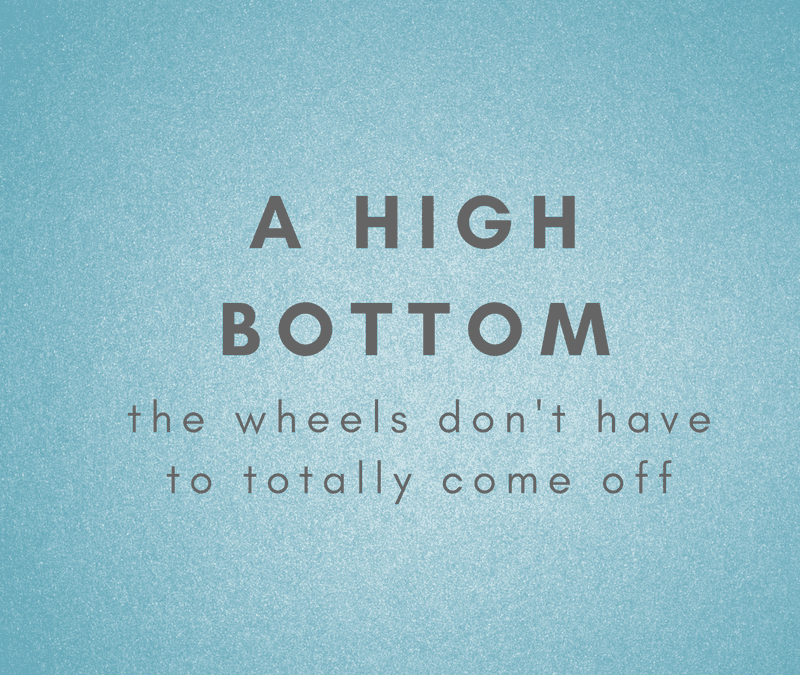
by Paul Churchill | Oct 23, 2017 | Blog, Early Sobriety, The Bottom, The First 24, The first Year
We all hear the stories of alcoholics who almost completely ruin their lives before getting sober. They are secretly chugging bottles of vodka, crashing cars, getting arrested, and continuously putting themselves into incredibly dangerous situations. I have addicts like this in my family, and I greatly sympathize with them. I am so proud of them when they finally do hit bottom and get sober. But do we have to experience such acute pain? Is there such a thing as a high bottom drunk?
But what about the alcoholics who have “high bottoms”? These are the people who, from an external view, seem to have a relatively healthy relationship with alcohol. Rather than continuing to speak in general terms, let me touch on my own relationship with alcohol and having a high bottom. I was a binge drinker from the age 17 until I was about 21. The first time I ever got drunk, I fell in love with what alcohol did to me. I went from being the shy and uncomfortable girl to being the witty and charismatic life of the party. Whenever I got drunk I fell in love with the people around me and kept the night going until I was the last person standing. Around age 21 I got my sh*t together, so to speak. I hit a rock bottom at this age, and it became apparent that I had to cut down on my drinking (if you are interested, I speak about some of my bottoms around this age on episode 99 of Recovery Elevator). I quit drinking for a month, and completely reevaluated my relationship with alcohol. Although at the time, I knew I was an addict, I convinced myself that I could continue drinking if I could implement moderation. I valued drinking so much that I forced myself to do this.
Surprisingly enough, I got really good at moderating alcohol. I credit a lot of this to the hangovers. I get incredibly bad hangovers after having only 3 or 4 drinks. The hangovers have become so bad, that as much as I love getting buzzed, even when I am 3 drinks in I often can’t justify having a fourth because I know too well how I will feel the next day. The bad hangovers have been enough to keep me in check with my drinking over the past few years.
I am 24 and although I spent two months at the start of this year sober, I have been continuously drinking for the past 3 years, until recently. During this time I have consistently worked, traveled around the world, paid all of my bills on time, and built and maintained some amazing friendships. I have been able to appear like your typical young adult. A lot of my friends have been in the advertising industry and we worked long hours during the week and spent our weekends partying on rooftops, often ending up at someone’s apartment where we would talk until 3 am about life! (you know the alcohol infused conversations that can miraculously jump from global warming to the illuminati to art, then to the Kardashians, and end up all the way back at the meaning of life?).
Even though everything seemed “fine”, I have continued to return back to this idea of sobriety. I don’t know how to describe it other than by saying there is a part of me that I keep deep inside that just knows I will live a better life sober. I am reminded of this come Sunday morning when I spend the day doing absolutely nothing other than nursing a hangover. I am reminded of this when I look in the mirror and see that my eyes have been drained of any spark they may have. I am reminded by this when I spend a few weeks sober, and notice that my body just starts to glow when I am not making it process alcohol. I am reminded of this when I wake up at 3 am and feel the dread and anxiety that comes after my wine buzz has faded. I am reminded of this when after a night out I awake and feel deeply unlovable. I am reminded of this when I realize I rely on alcohol to make me feel worthy of great relationships. I am reminded of this by all the subtle ways alcohol makes my life a bit darker.
Just as the ways drinking negatively affected my life were somewhat subtle, the ways sobriety impacts my life are also subtle. So far sobriety has not made me lose 20 pounds or get an amazing job or find an amazing life partner. For me sobriety looks like me spending 15 minutes every night stretching while listening to music I love. It’s being able to make plans on both weekend days because I no longer have to have one reserved for nursing a hangover. It’s allowing myself to sit with feelings like loneliness or sadness, without immediately trying to cover them up with a drunken night out. It’s finding the time to exercise 4-5 times a week, something I never had the energy to maintain while drinking. It’s money I’m saving. It’s going to bed knowing I will wake up and be myself, not the exhausted zombie alcohol makes me become.
As my days of sobriety tick by I start to flirt with the idea of drinking again. I justify this by reminding myself that I wasn’t an “out of control drunk”. I have a feeling that other people with high bottoms may do the same. All I can say is that in these moments, you must let these feelings come and go without acting on them. And then in the moments when you do feel good, really let yourself feel that and it will remind you why you are staying sober.
I am 24 days sober, and the reason why I stopped drinking this time is not because I hit a low. It’s because I am sick and tired of living a mediocre life. I am tired of being a “functional” alcoholic. I don’t want to go through life just simply functioning through it all- barely squeaking by. I want a life that is good, or possibly, maybe, even great. And I am fully aware that when I am drinking, I’m just not going to push for that. When I am drinking, I am fine settling for mediocre, as long as it means I can order another round.
I’ve been journaling a lot lately, and I recently wrote a love letter to my high bottom. I thanked it for allowing me to have to take responsibility for my sobriety. I am not choosing sobriety because things got so bad they couldn’t get any worse. I am not choosing sobriety to make a partner or my parents feel relieved. I am choosing sobriety because I believe it will lead to a better life. When you get sober at a high bottom, it means you are truly listening to yourself. You aren’t getting sober because the world is telling you to, it’s because you want to, and that is the fuel that will keep going.
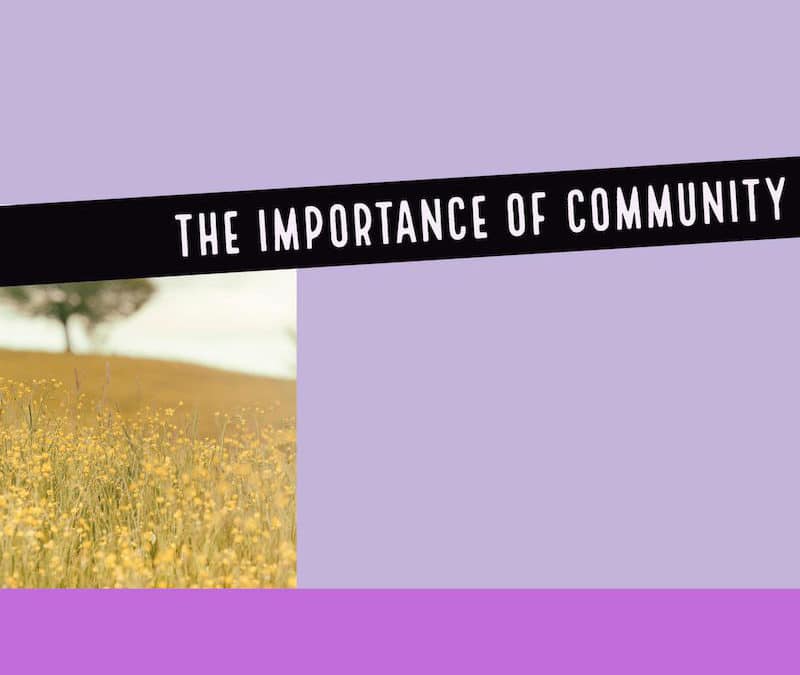
by Paul Churchill | Jun 29, 2017 | Blog, Resources, The first Year
When I got sober I felt more alone than I’ve ever been. My boyfriend had just broken up with me, I was living in a foreign country, and I was too ashamed and embarrassed to share with anyone what I was going through. I had a friend in Cancun who was sober and offered to take me to a 12-step meeting, but I was terrified to go. Not only that I was positive I wouldn’t understand the majority of what was said since it would have been in Spanish.
I spent the majority of my first year in recovery alone. I read a lot of books about addiction and I engaged with sober websites and blogs. I attempted to attend 12-step meetings online, but I didn’t connect with anyone in the groups because I didn’t understand what they were talking about and they kept telling me to go to face-to-face meetings. I wasn’t ready to hear them or to take their advice.
As time went on I was finally able to find community, through 12-step meetings here in Florida when I moved, and through my blog and the online recovery community.
Here are 5 reasons community in recovery is everything.
- Group support
There’s nothing more powerful than a group of people collectively healing. Sharing your story is powerful and it can give permission for others to do the same. In gatherings of 12-step meetings I heard my story in other people’s stories and I was surprised and relieved. I felt like I finally could identify with others who had the same struggles as me. Groups can also provide support, advice, and guidance as you walk the sober path.
- Isolation can be dangerous
When you’re alone, whether on purpose or by chance, your thoughts and demons can become overwhelming. You may feel crazy, like you’re not sure what you’re feeling is normal or not, and it can become easier to consider going back to drinking or using. When we’re in recovery we need to be informed about what we’re feeling and if it’s normal or needs special attention. Community support can help with this and create a group atmosphere where everyone shares their successes and setbacks.
- Creating a new lifestyle
A big part of recovery is creating a new lifestyle and daily schedule to follow. We have to get rid of a lot of our old ideas, behavioral patterns, and even some hobbies, in order to be steadfast in our recovery. Finding a new community of people who are also sober, can help you engage in new activities with people on the same path as you. Additionally, these people can help you navigate new situations or activities that you might not know how to approach and vice versa.
- Giving back helps keep you sober
For many of us, finding purpose in sobriety is the key to keeping us sober. You don’t just get sober and that’s it. It’s an ongoing, everyday process, with ups and downs along the way. You may have heard the phrase, “you have to give it away to keep it.” Passing on the message of recovery to others who need to hear it, not only makes us feel good, it can be what another person may need to hear to get sober themselves. Helping out in your community, volunteering to do service work, or just sharing your story of recovery on social media can help give back, and simultaneously keep you sober.
- Accountability and motivation
Being sober is easier when you’re around people who also want to be sober and are working towards similar goals. Having someone you can stay accountable to makes avoiding negative behaviors more manageable. It’s always good to have someone you can call when you need to discuss feelings, thoughts, or cravings you’re having. During active addiction, we don’t have a lot of accountability and sometimes it’s hard for us to trust others or have others trust us, rebuilding we types of healthy relationships is essential in a sober community.
The community has allowed me to connect on a human level with others who are in and seeking recovery online, and in person. It allows me to give back and to pass on the message of recovery. Community helps keep me sober, but most of allow engaging in community has given me purpose.
Written by: Kelly Fitzgerald with The Recovery Village
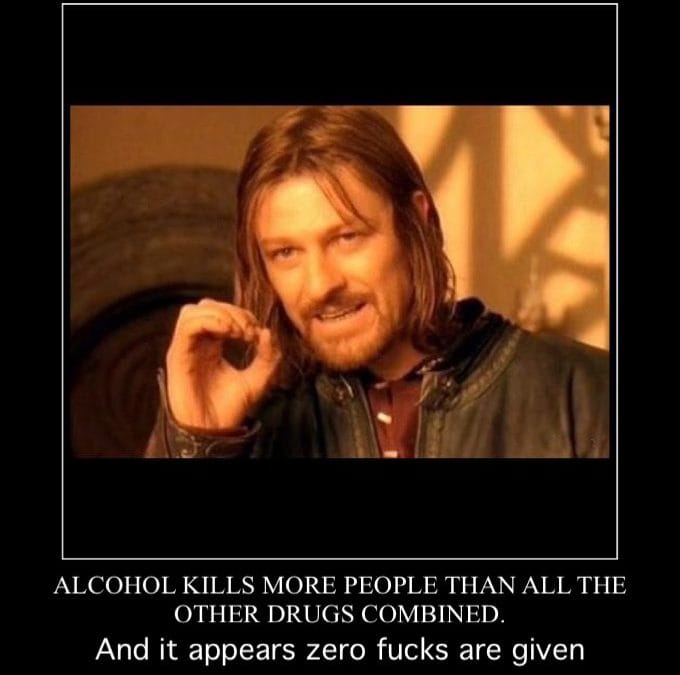
by Paul Churchill | Feb 12, 2017 | Blog, Sober Meme, The Bottom, The first Year
Sober Recovery Memes
One of my favorite things to do while traveling is create sober recovery memes. They are all related to my memories of drinking and creating these recovery memes is a great way to add humor to my recovery. I’ve created over 100 sober memes and plan to keep on making these recovery memes as long as I am sober. Well, if I do drink, which isn’t the plan, I’ll continue to make memes about how drinking sucks.
You can see that the rock star in my life is my best friend Ben who is a standard poodle. When drinking, I often skipped his meals, didn’t deliver on promises of taking him on walks and overall was a sub par dog owner. Now things are much different as these sober recovery memes indicate.
Humor in recovery is essential and sober memes is a great way for me to express my creativity and smile. Sure there were tough times in the past when I was drinking, but looking back on these drunken moments and letting go is a big part of my recovery.
Be sure to add plenty of laughter to your recovery and don’t take yourself too seriously.
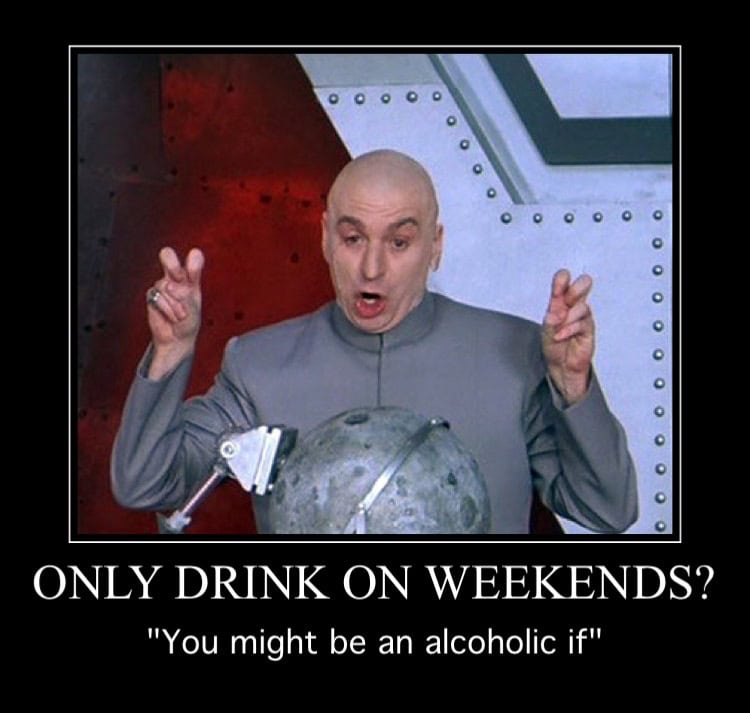
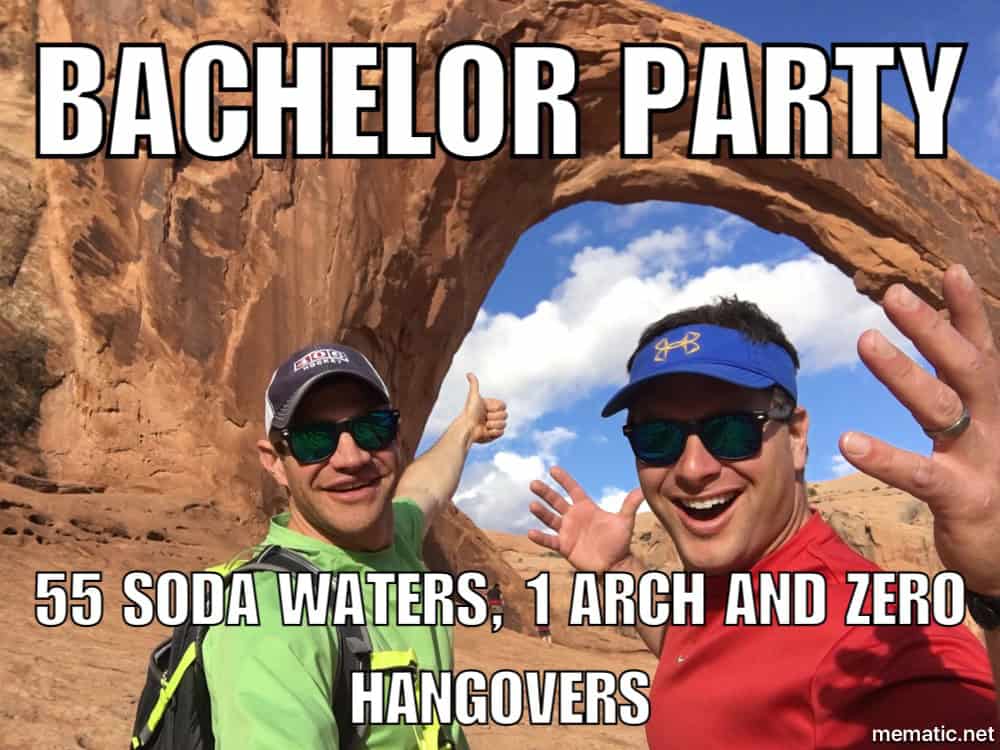
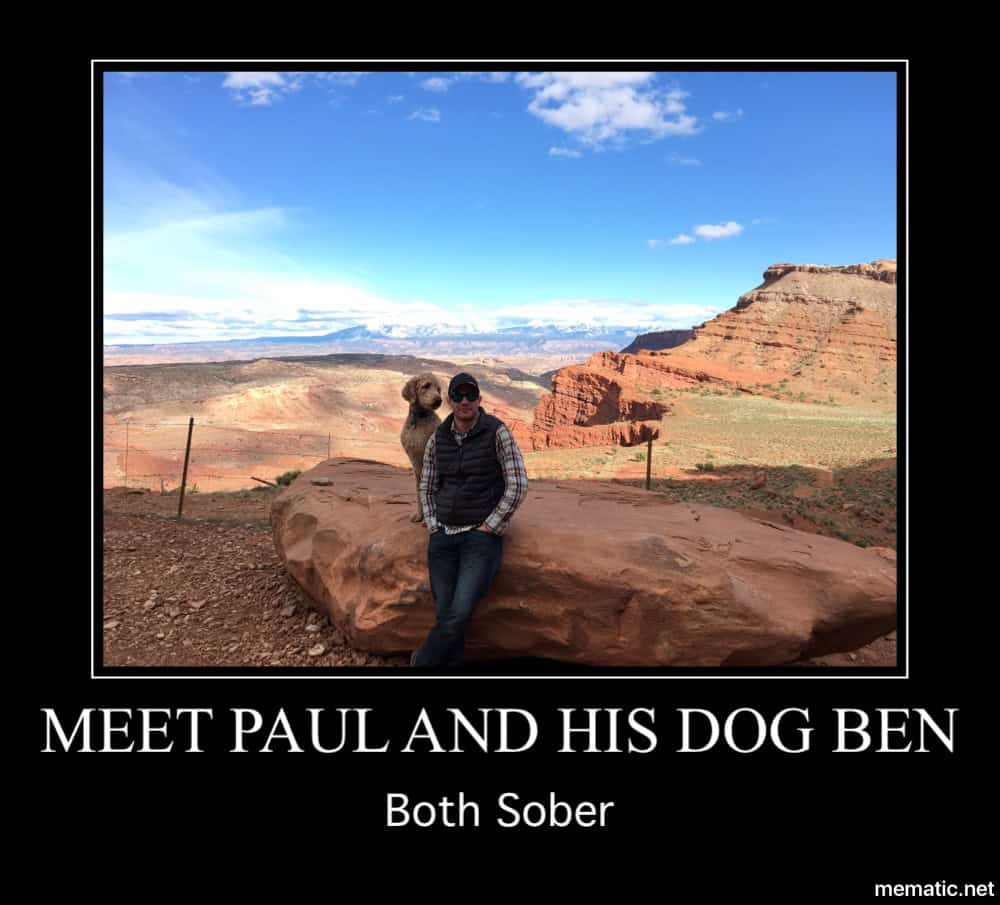
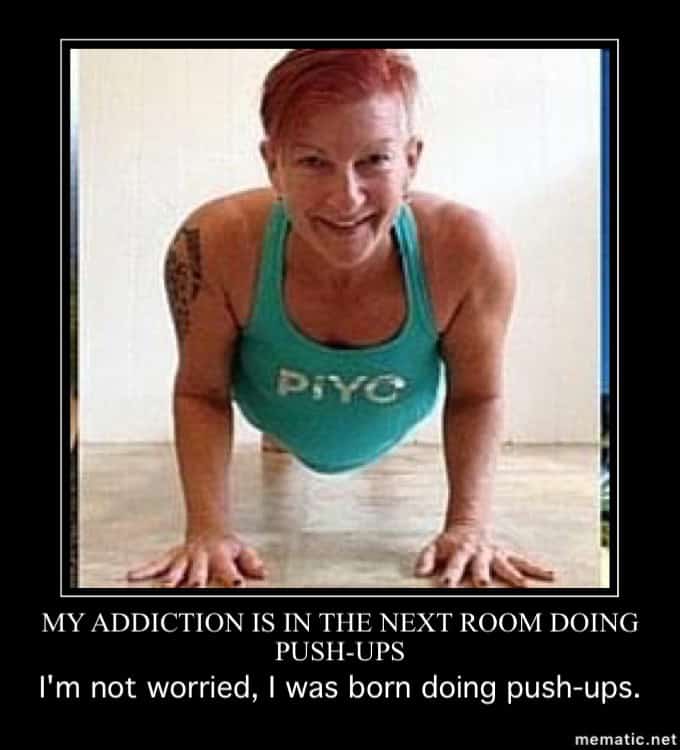
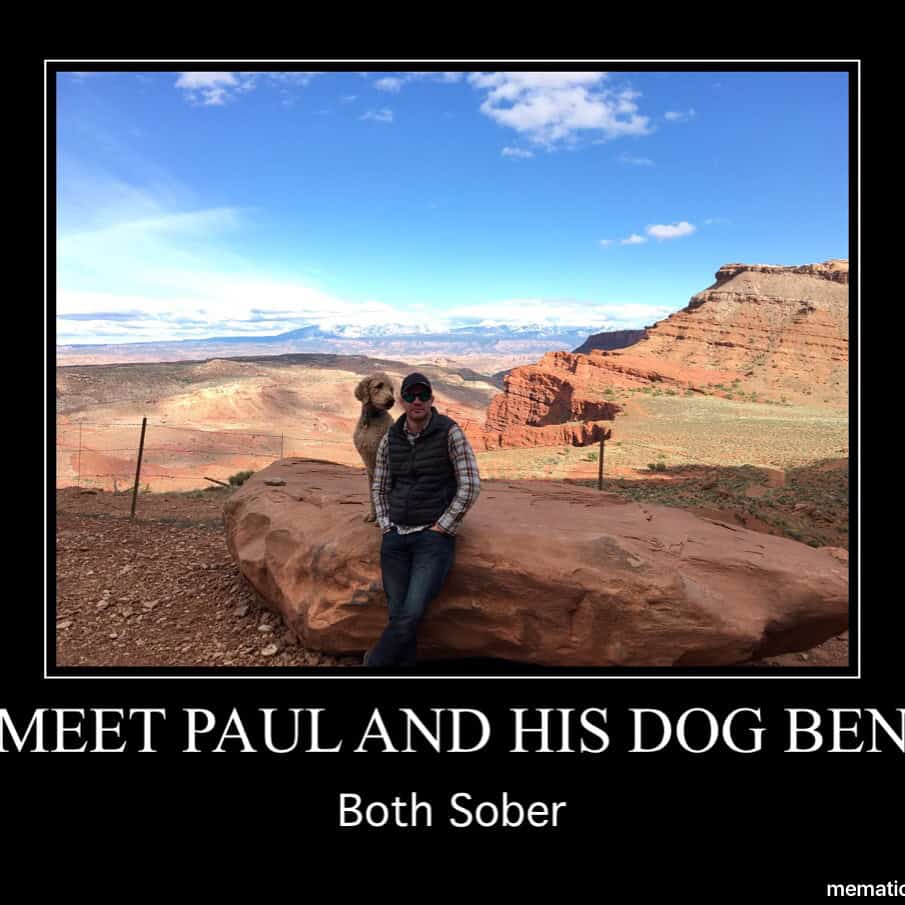
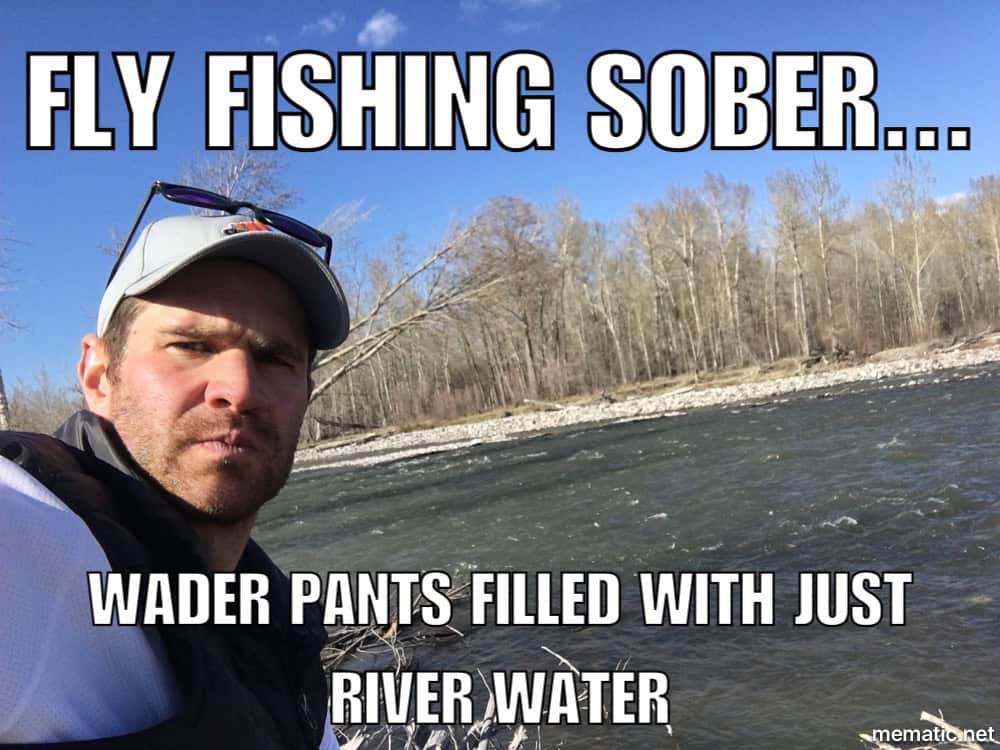
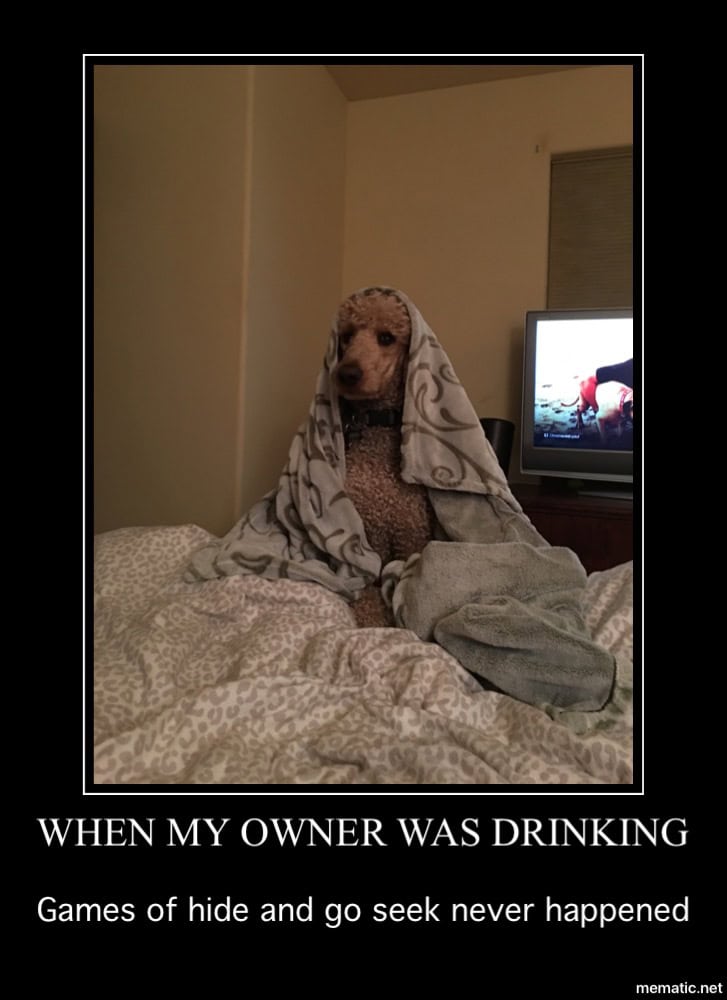
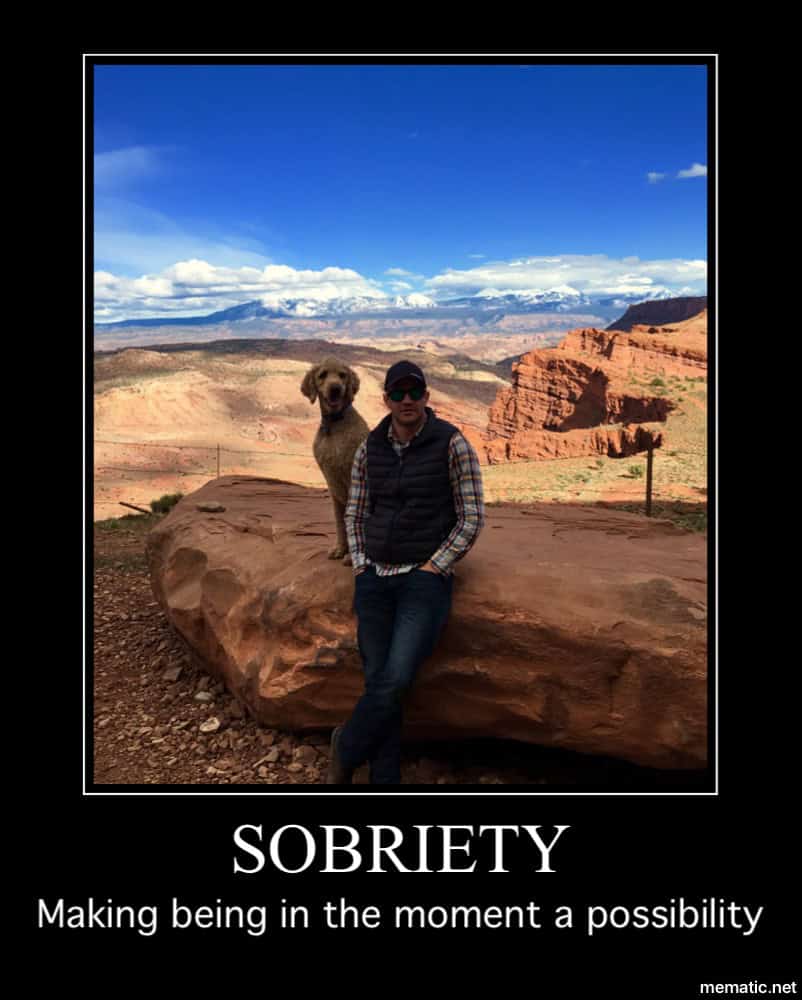
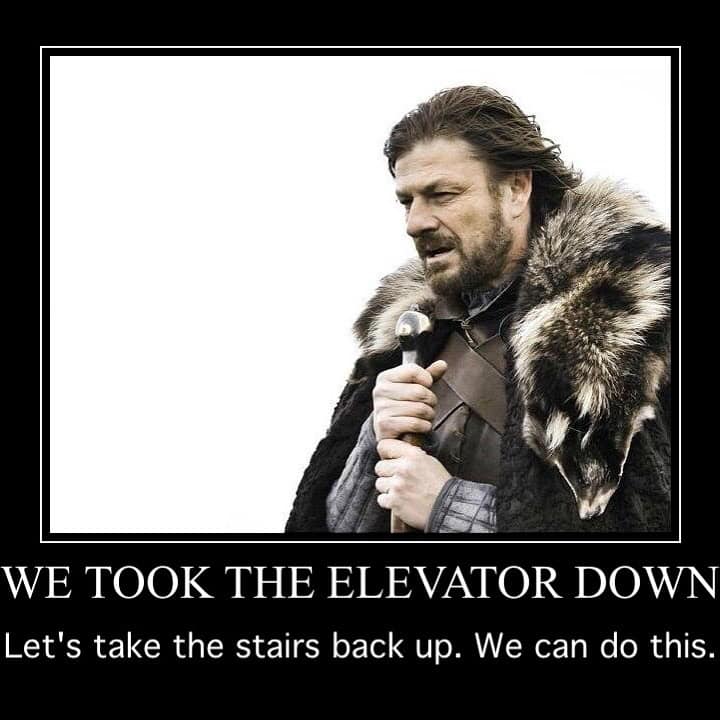
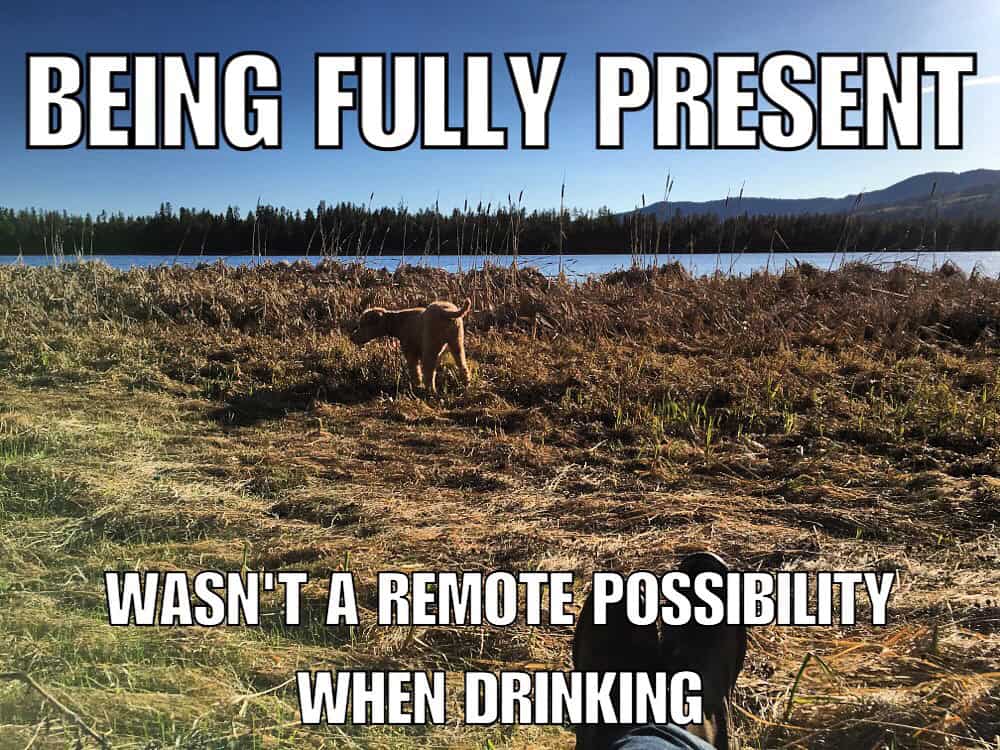
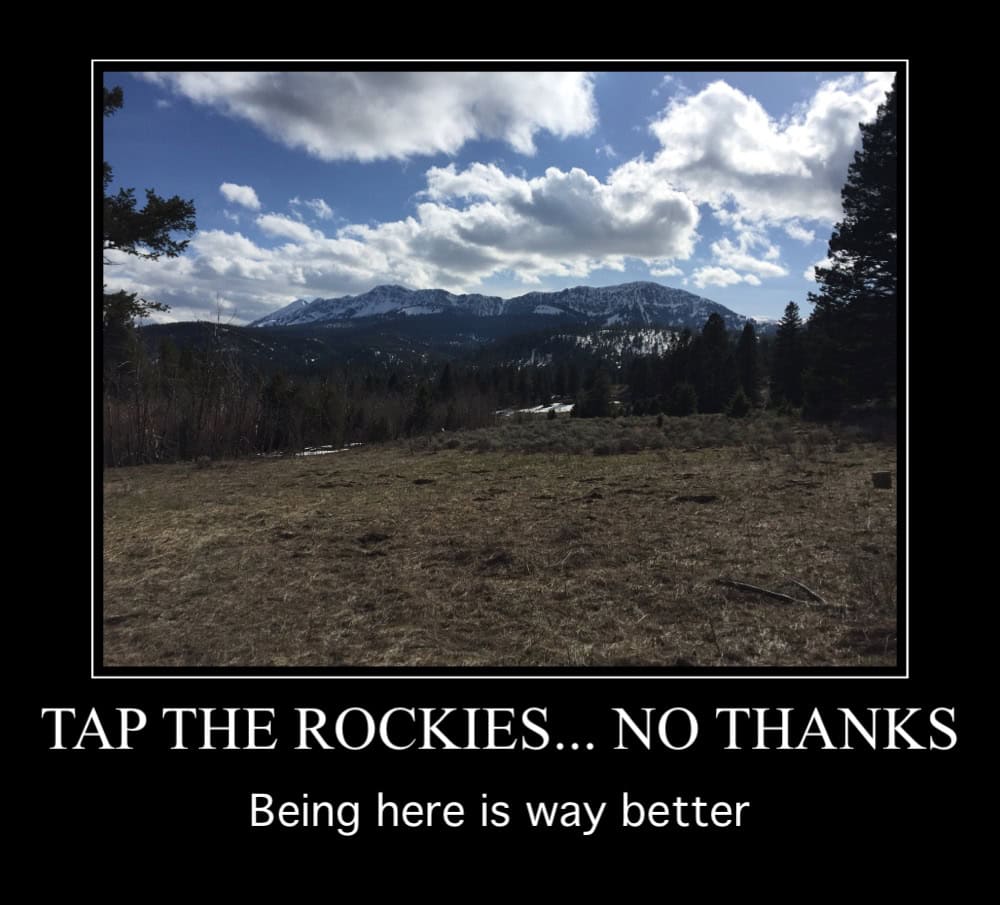
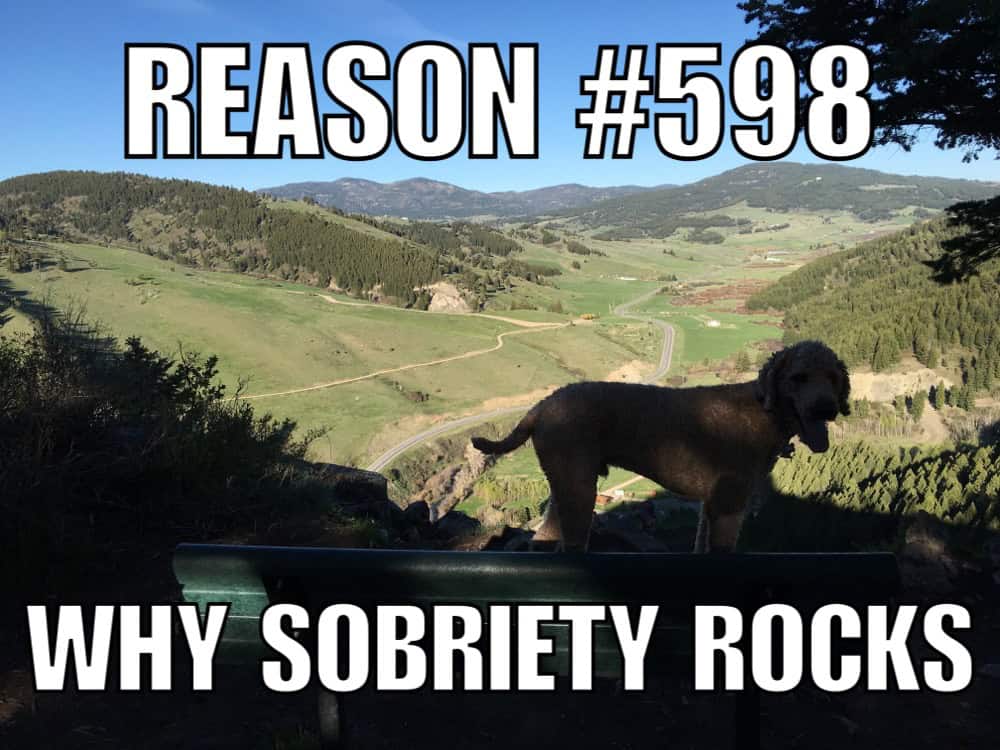

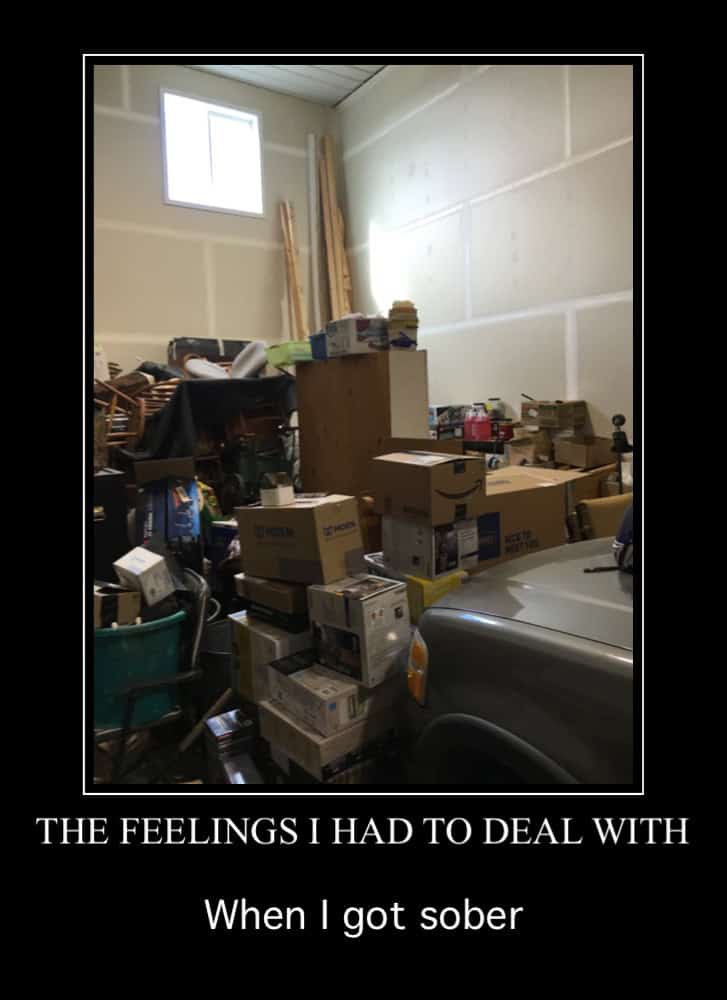
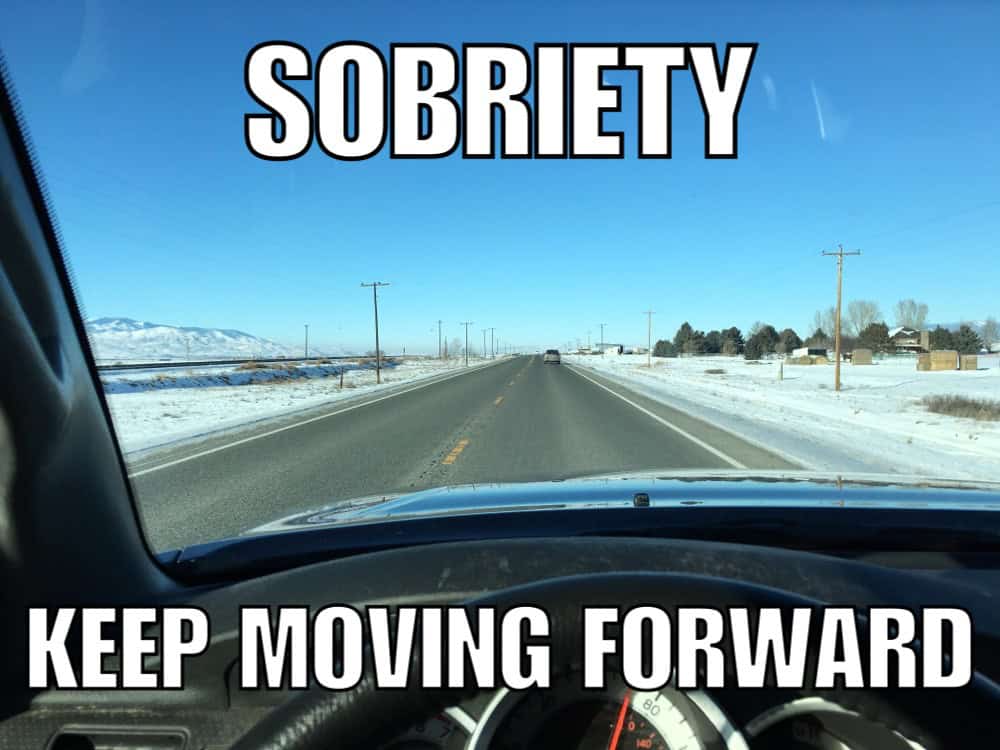
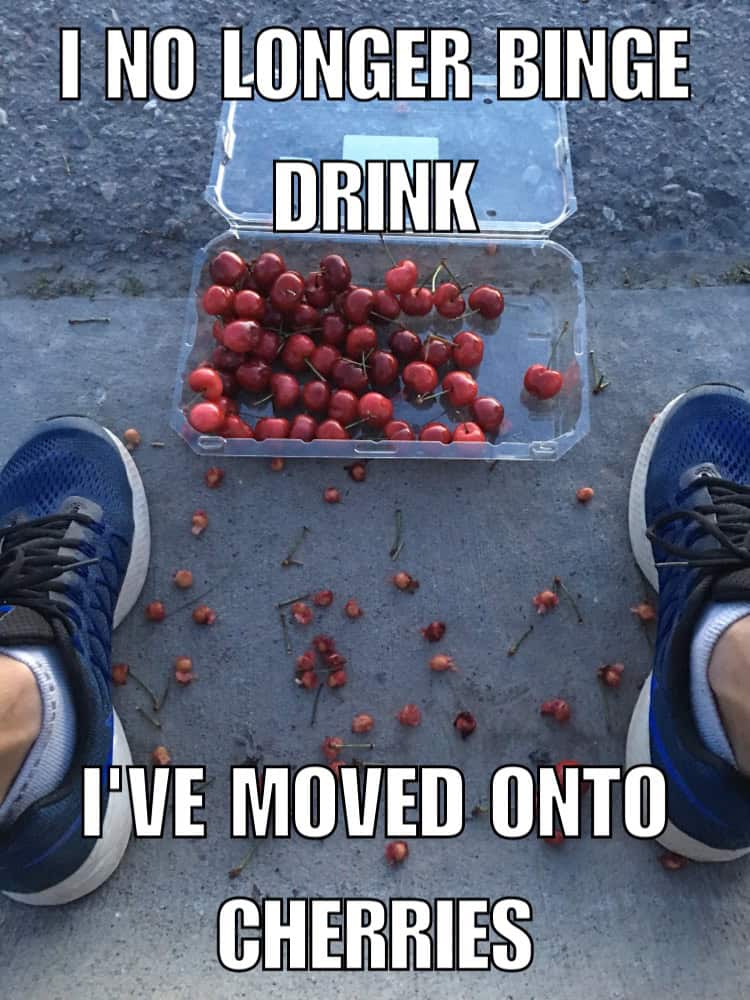
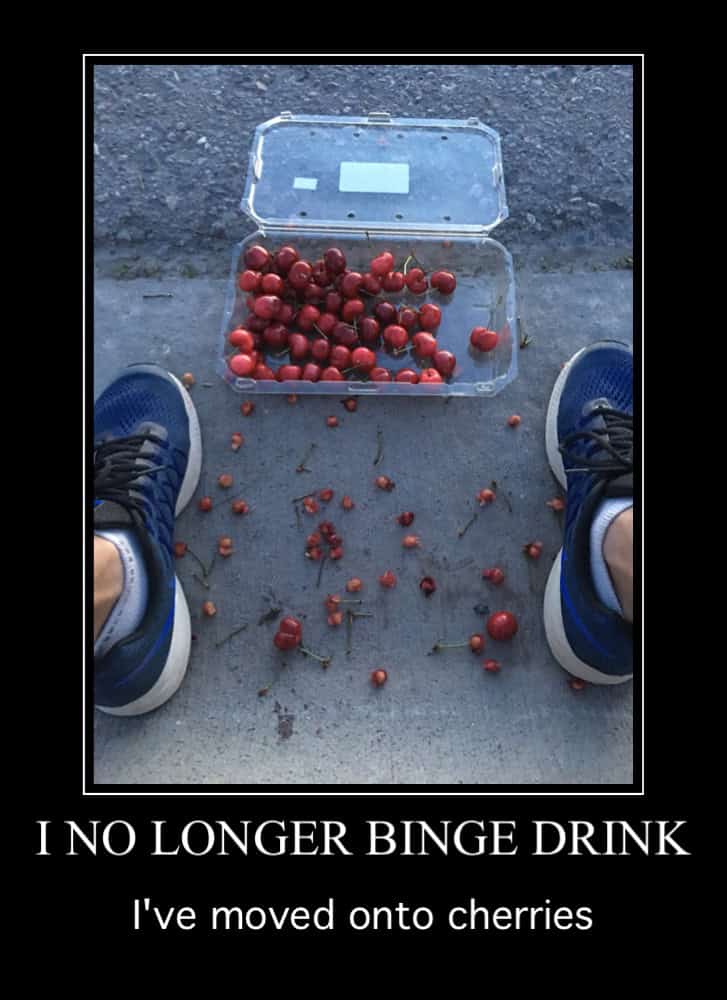
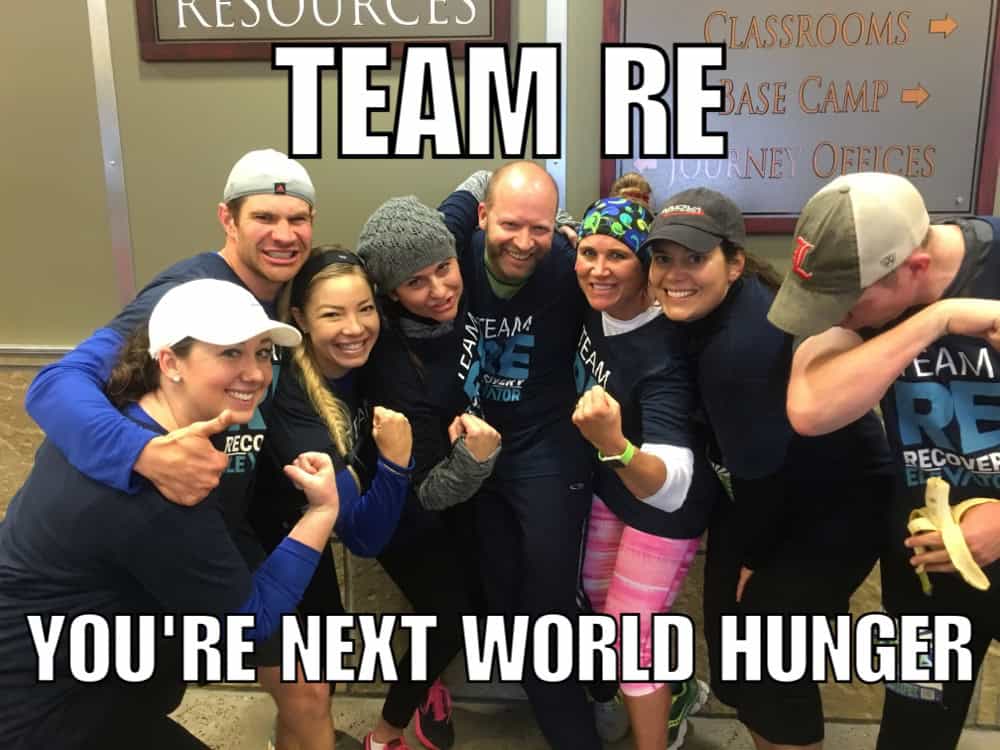
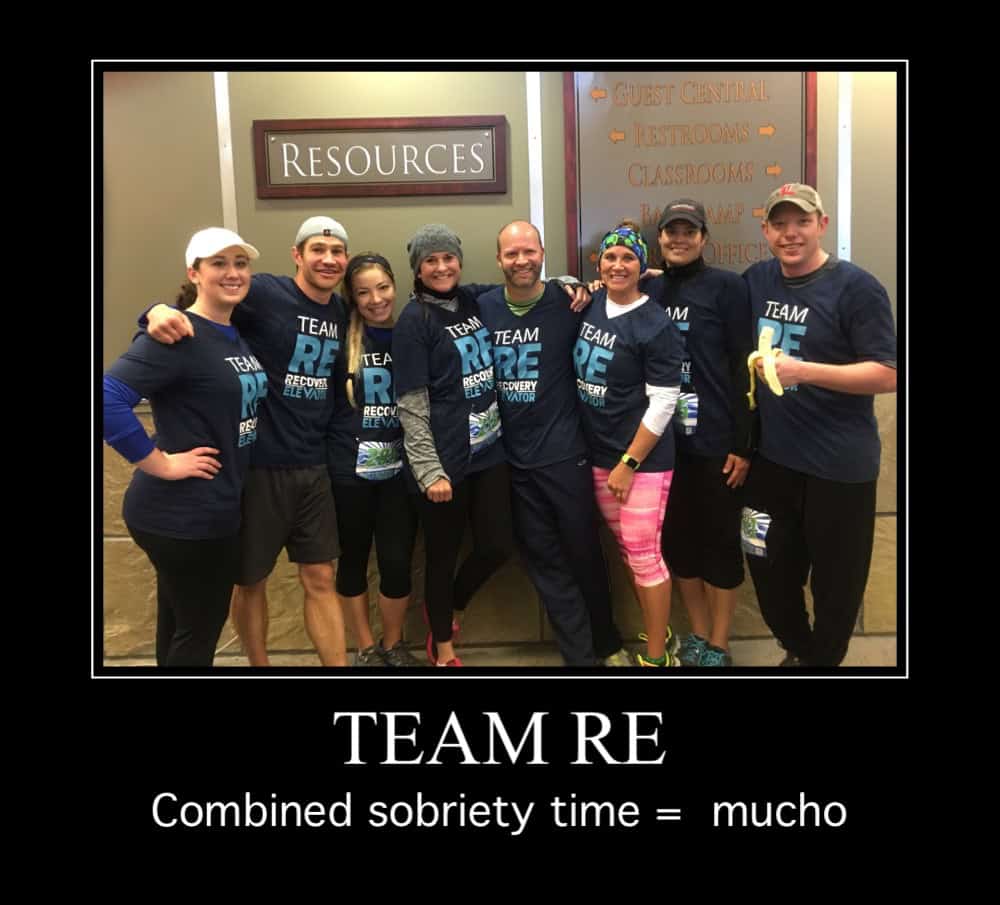
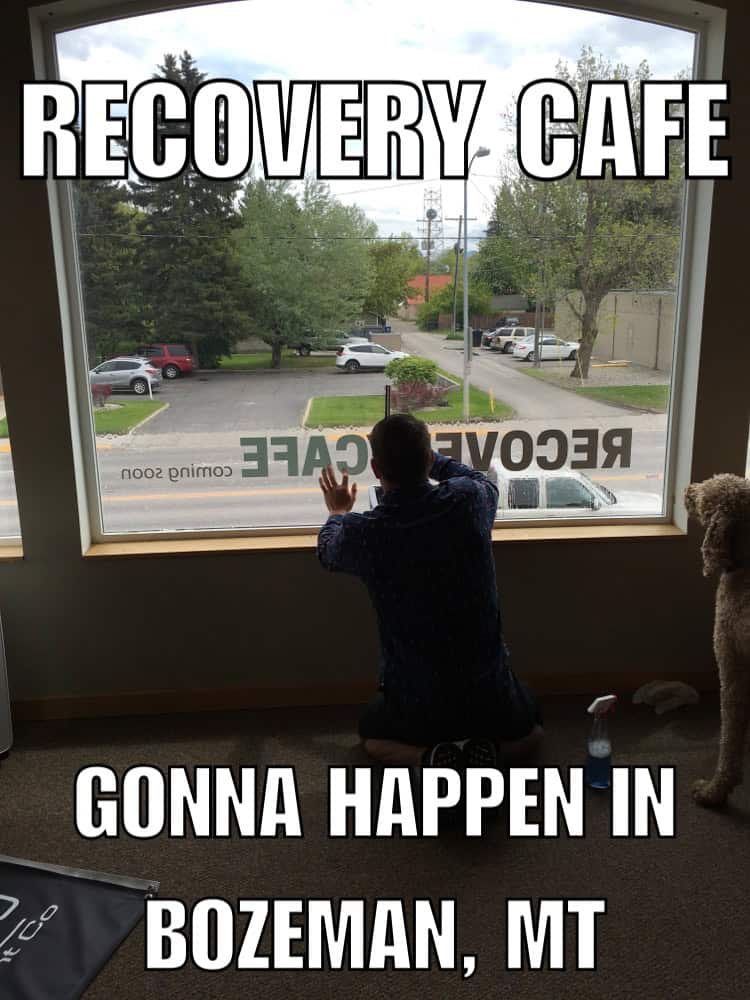
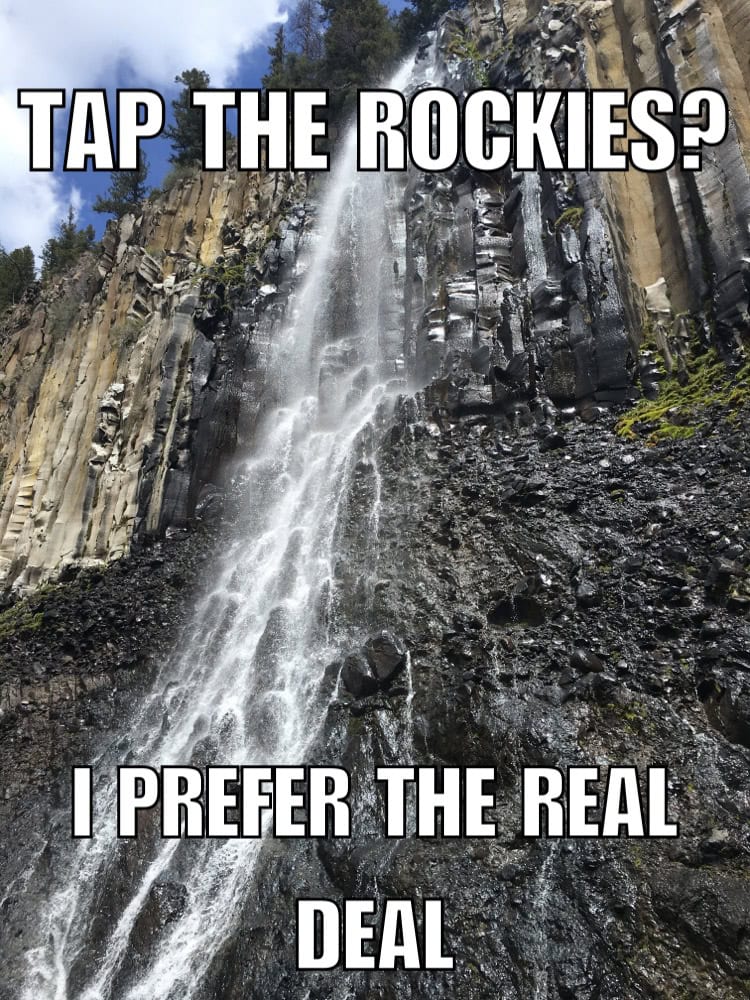
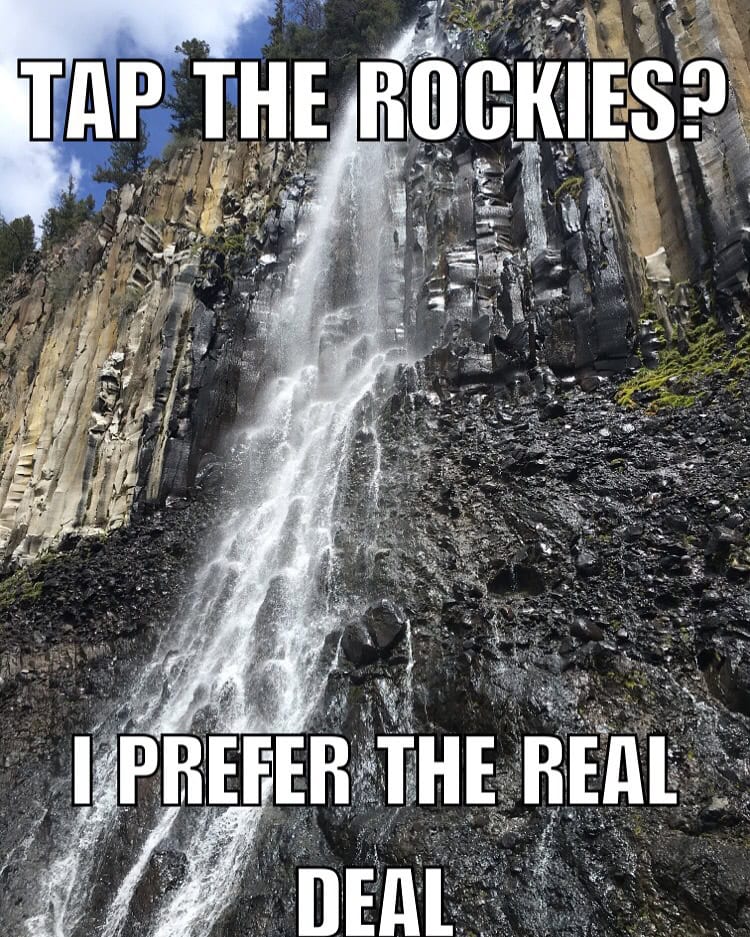
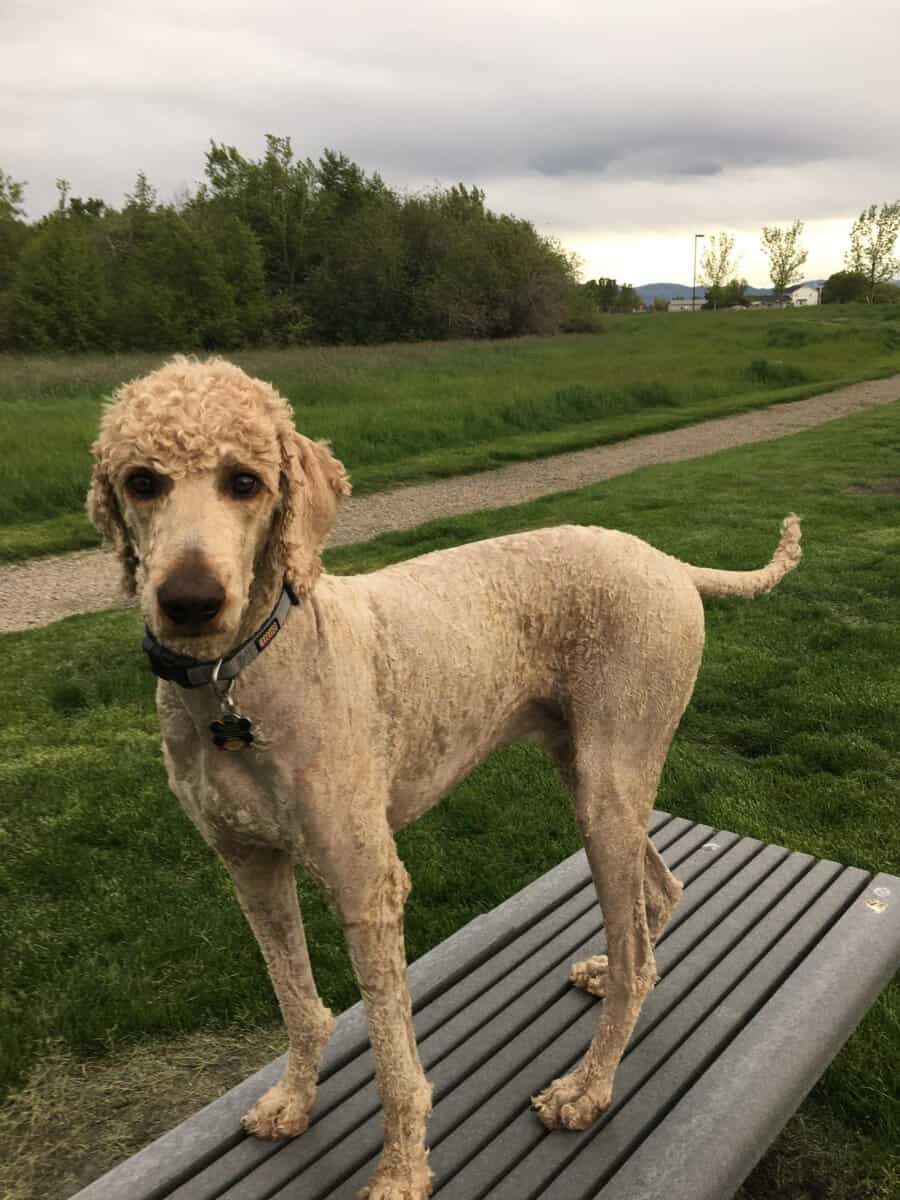
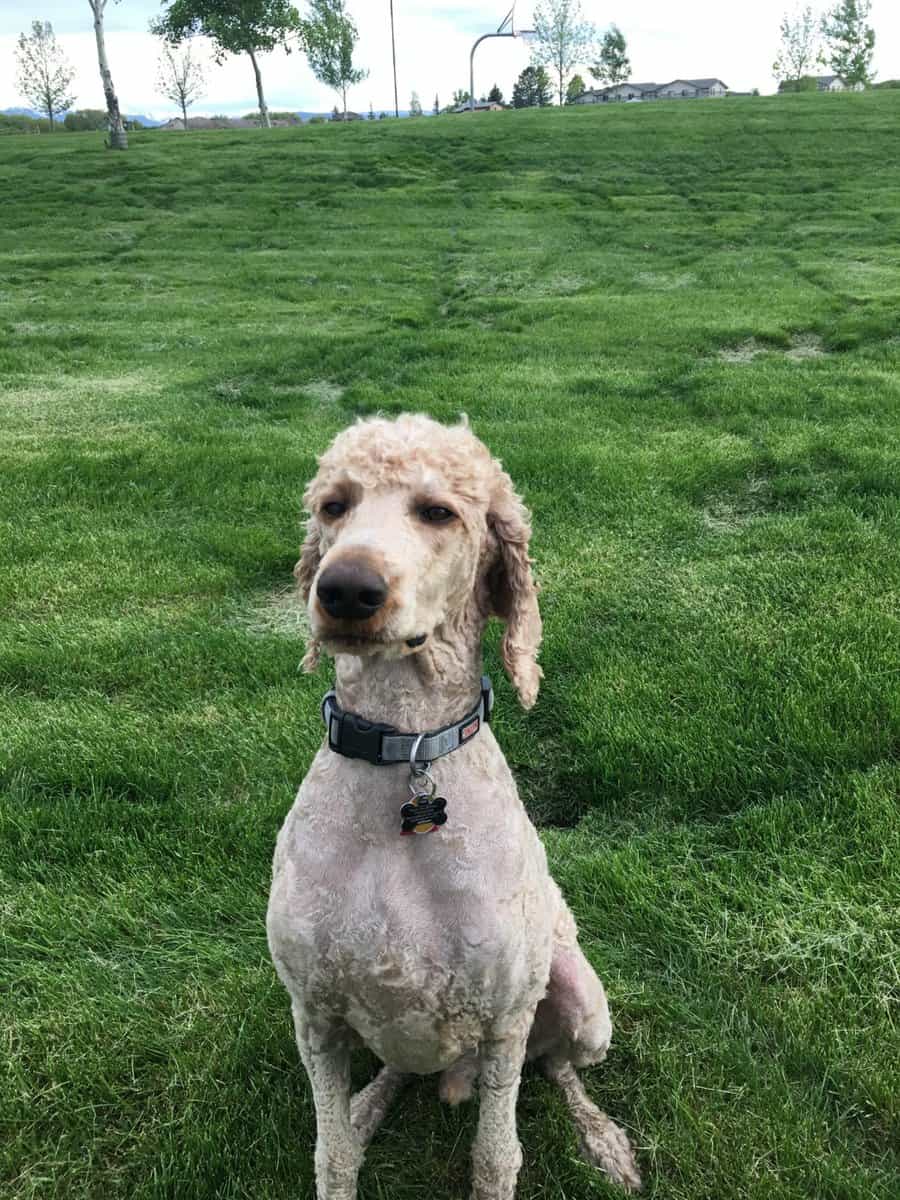
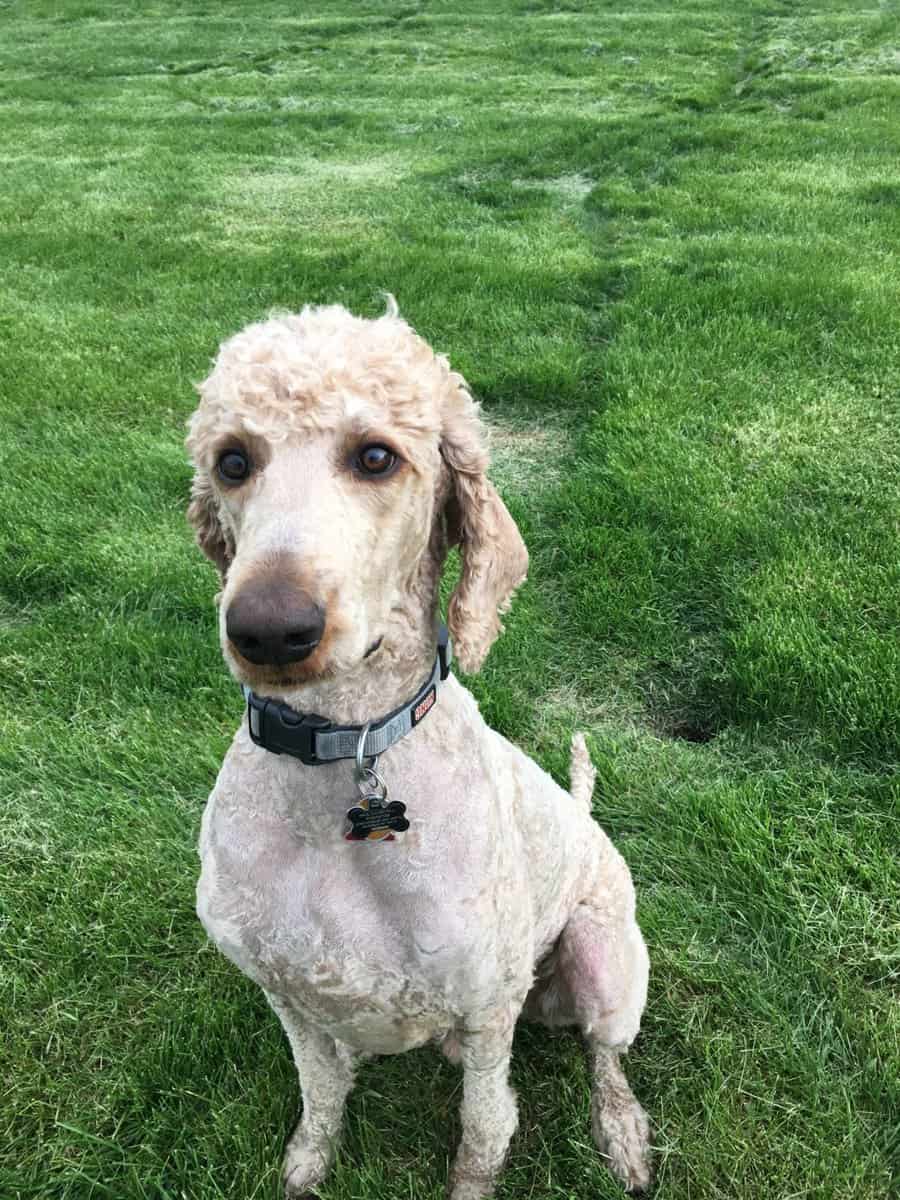
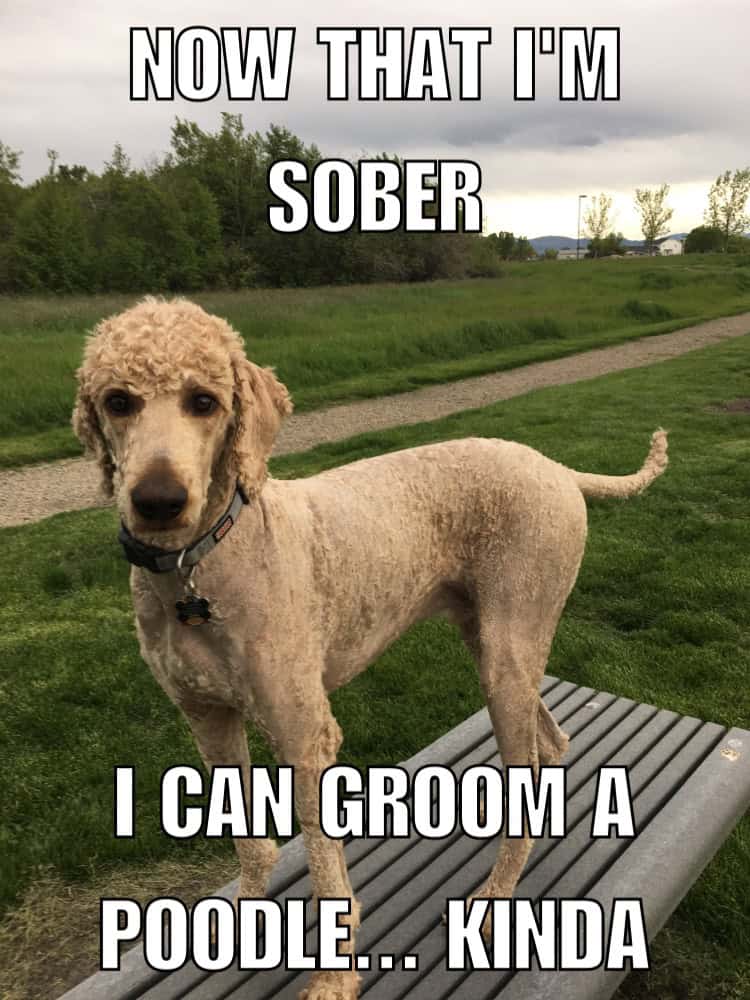
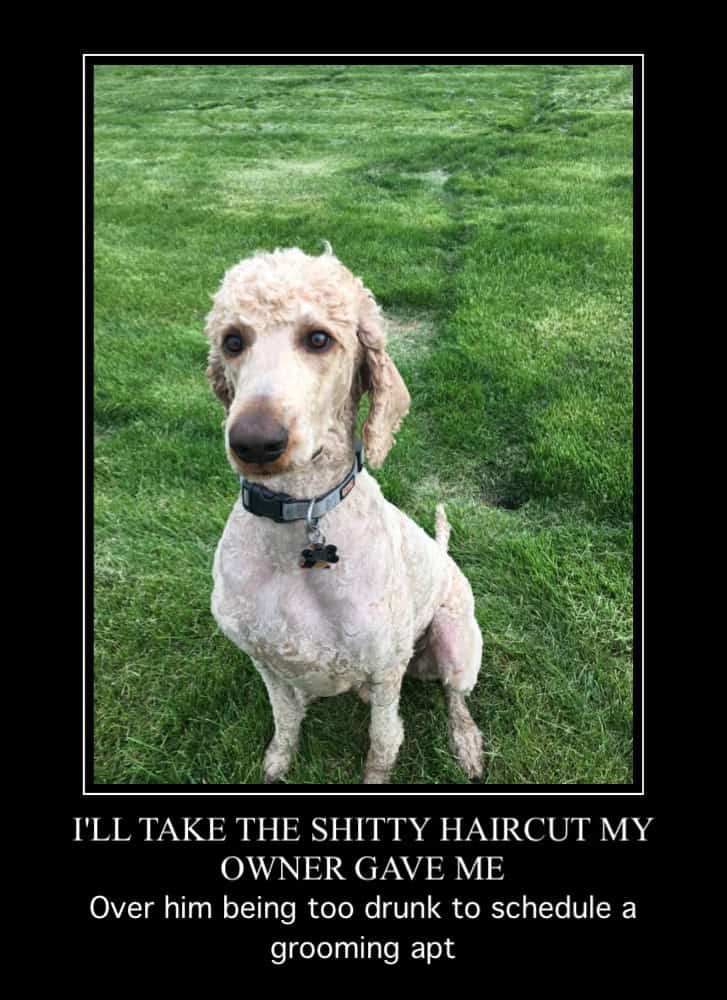


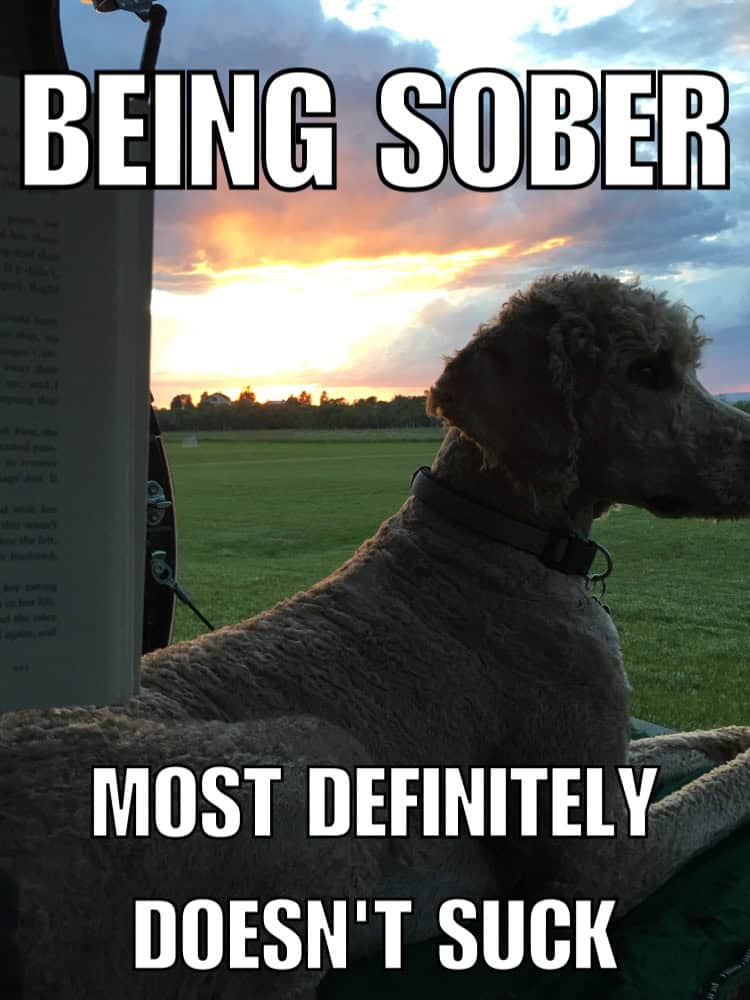
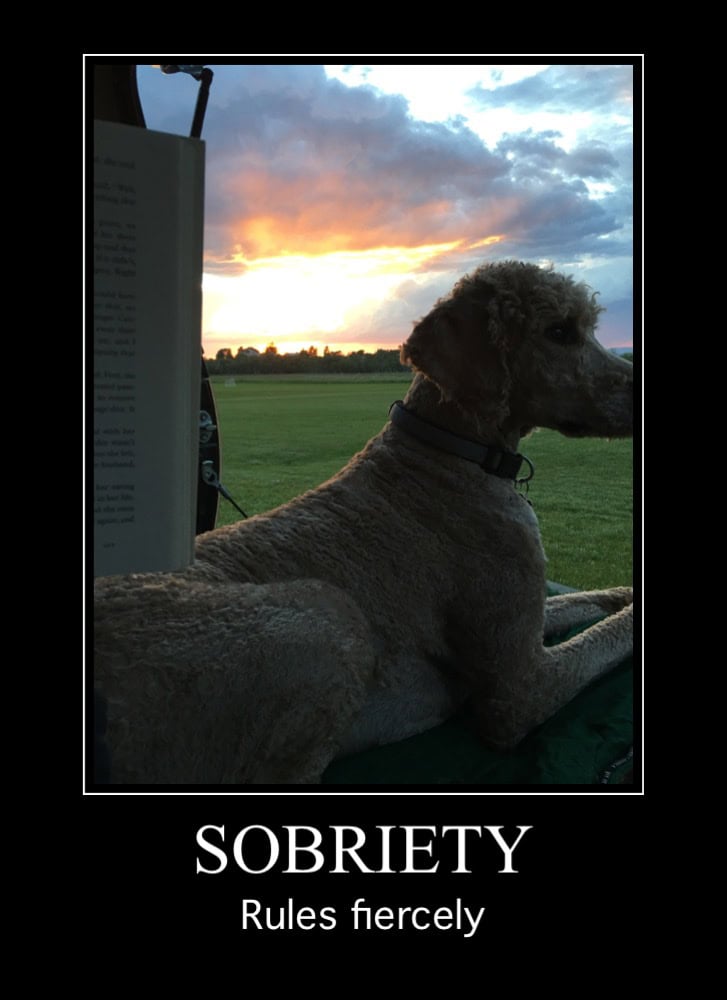
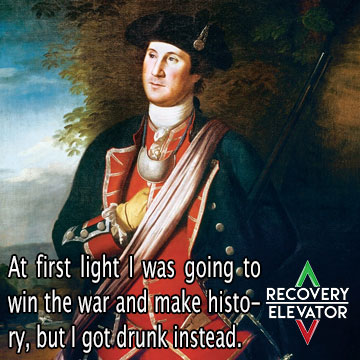
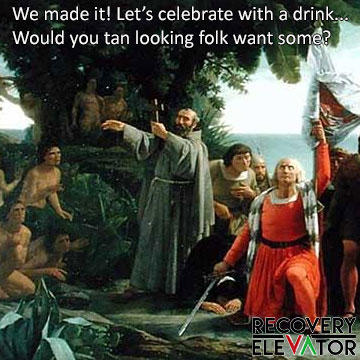
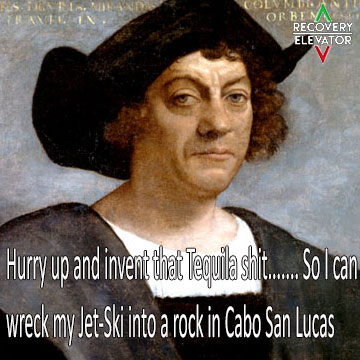
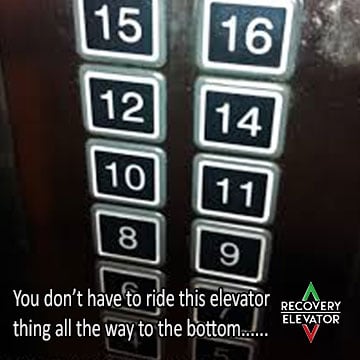
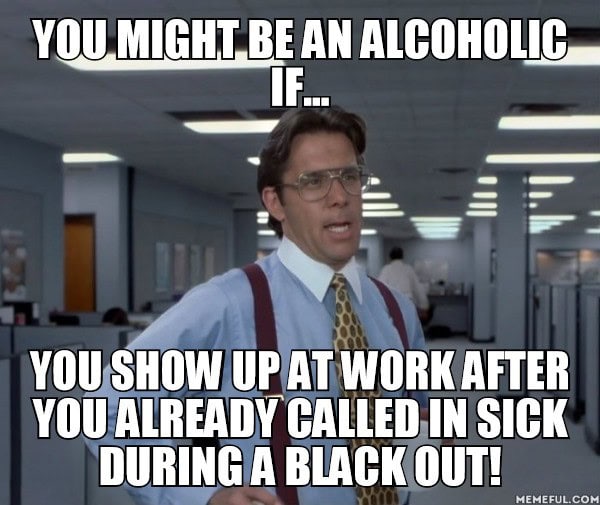

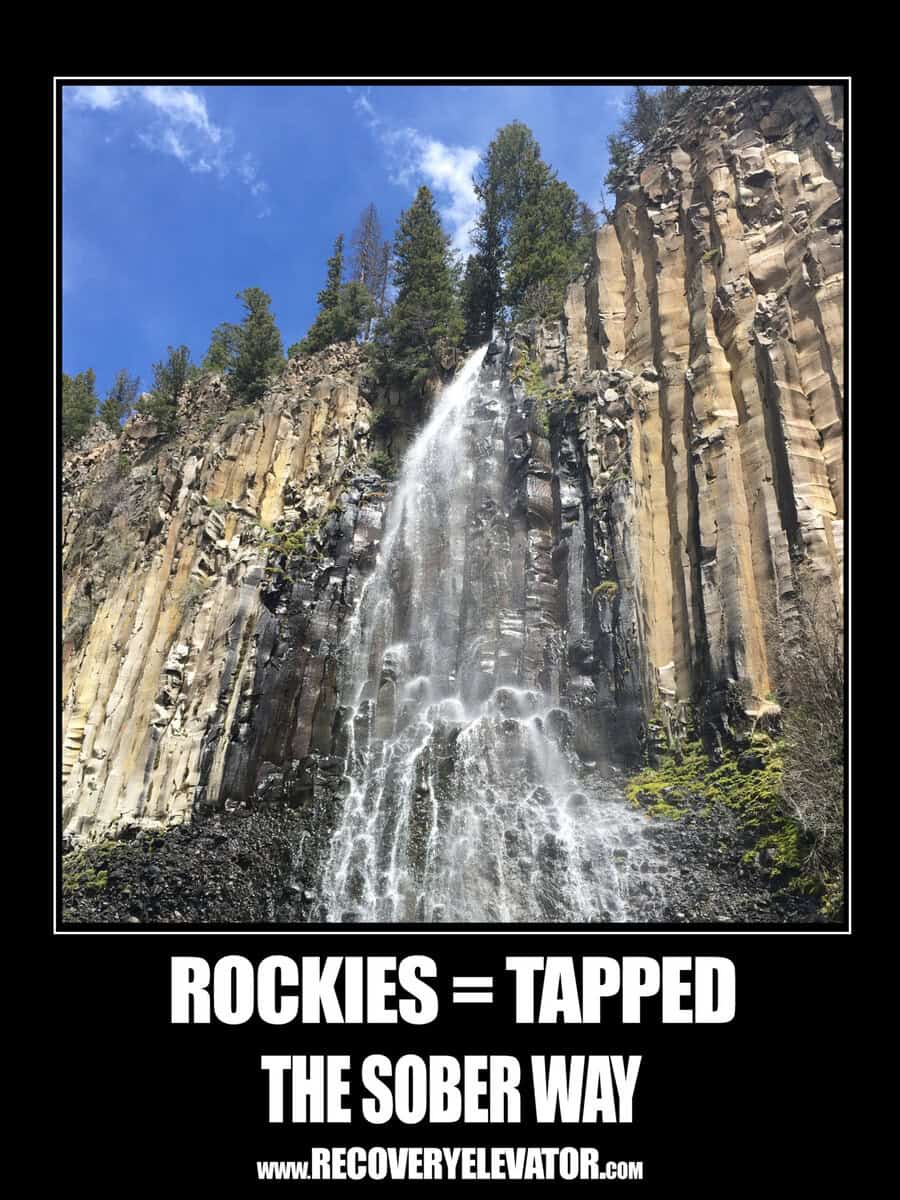
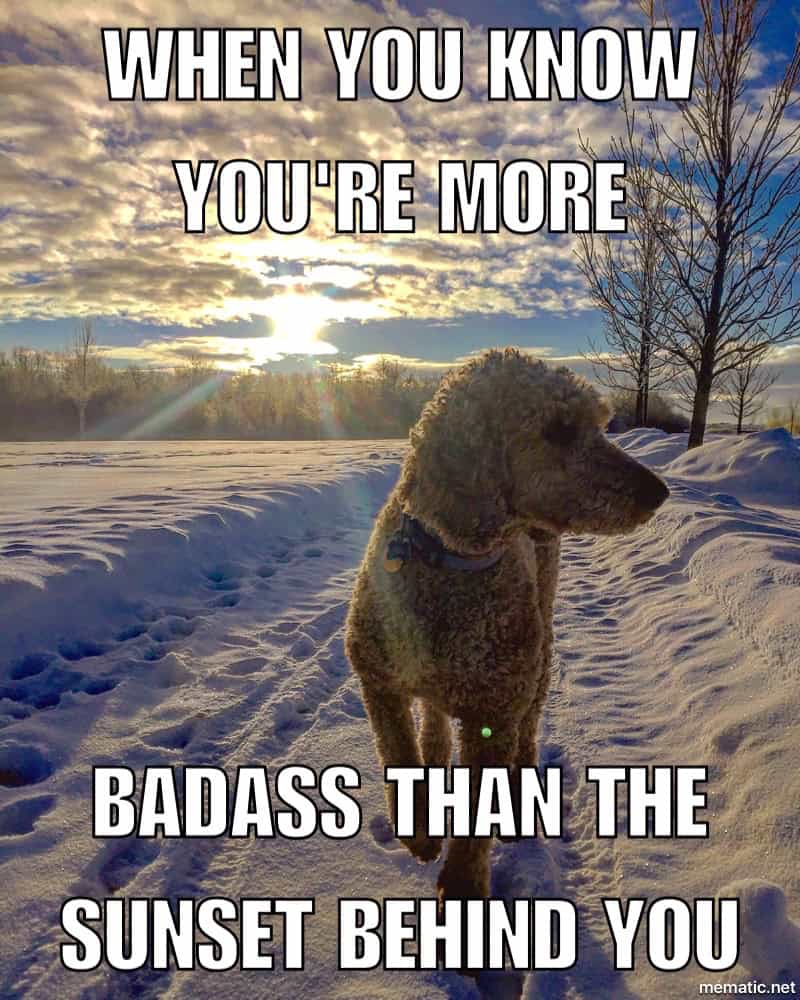
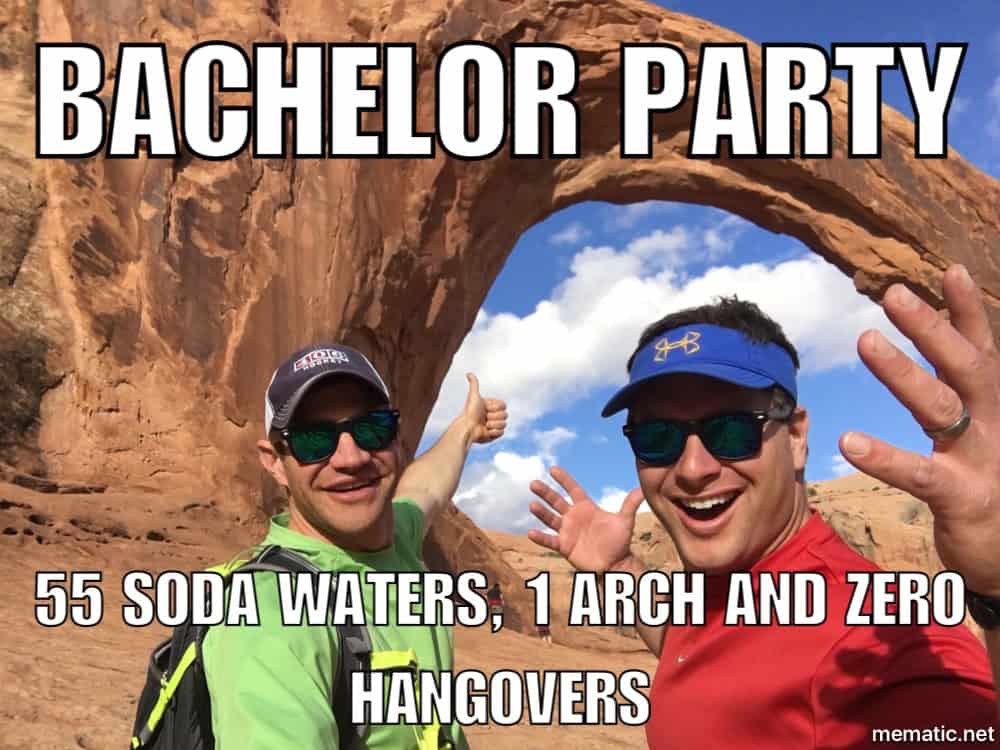
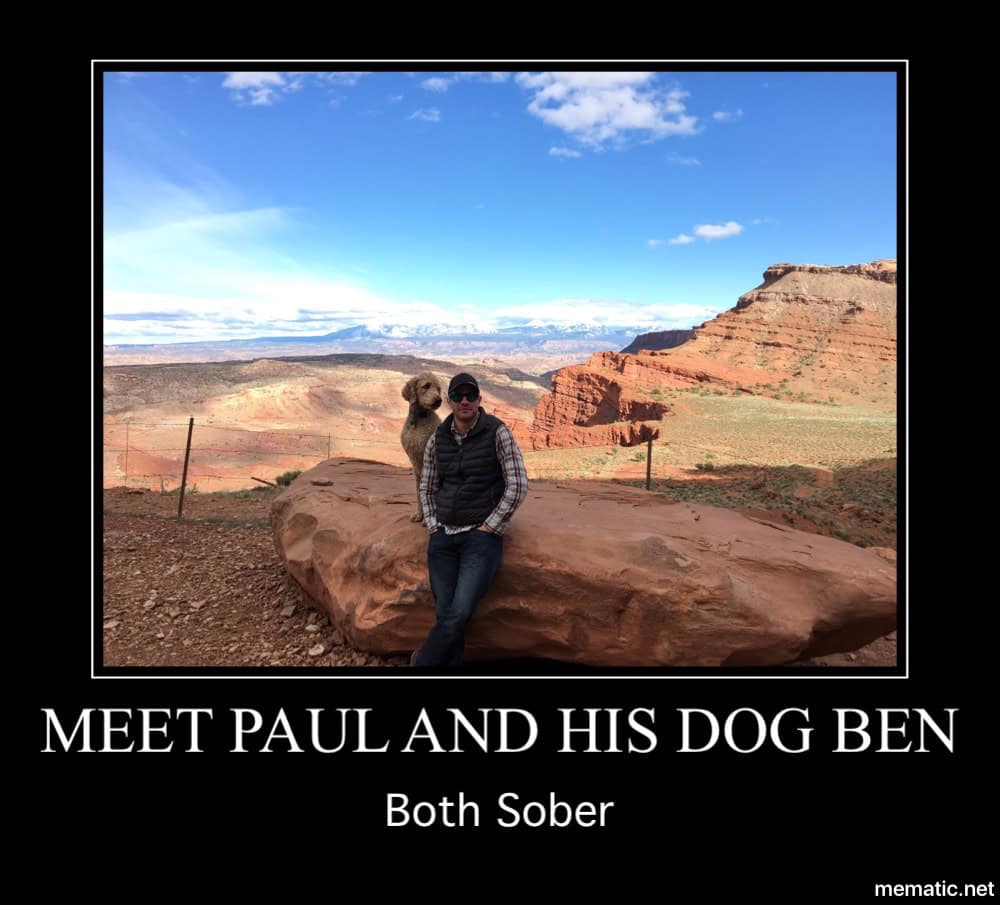
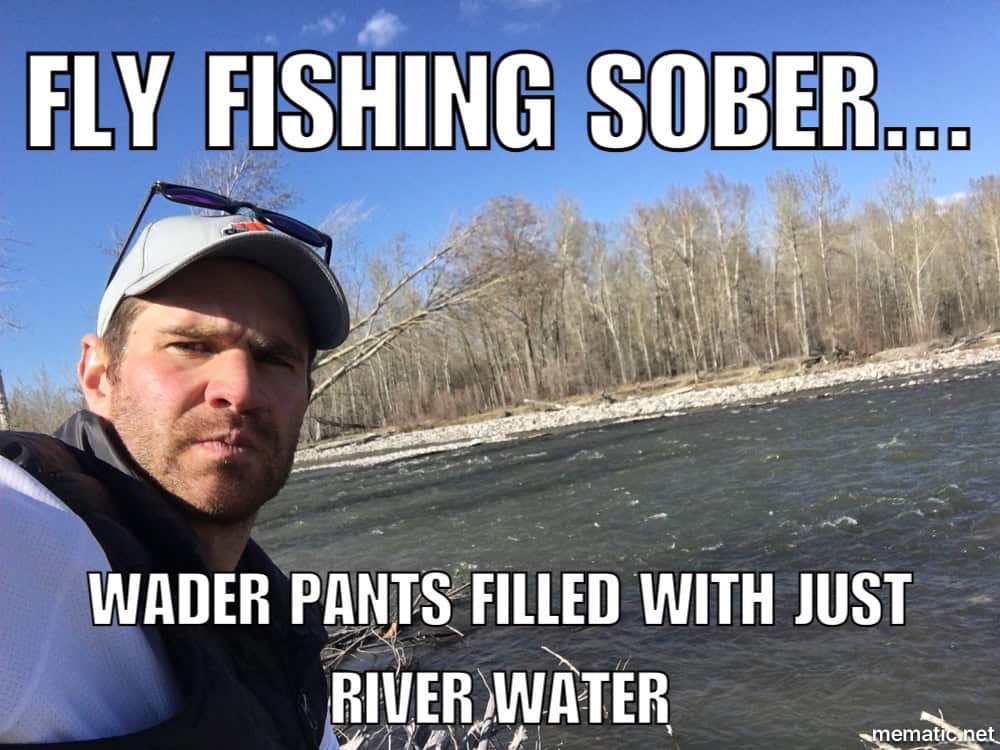
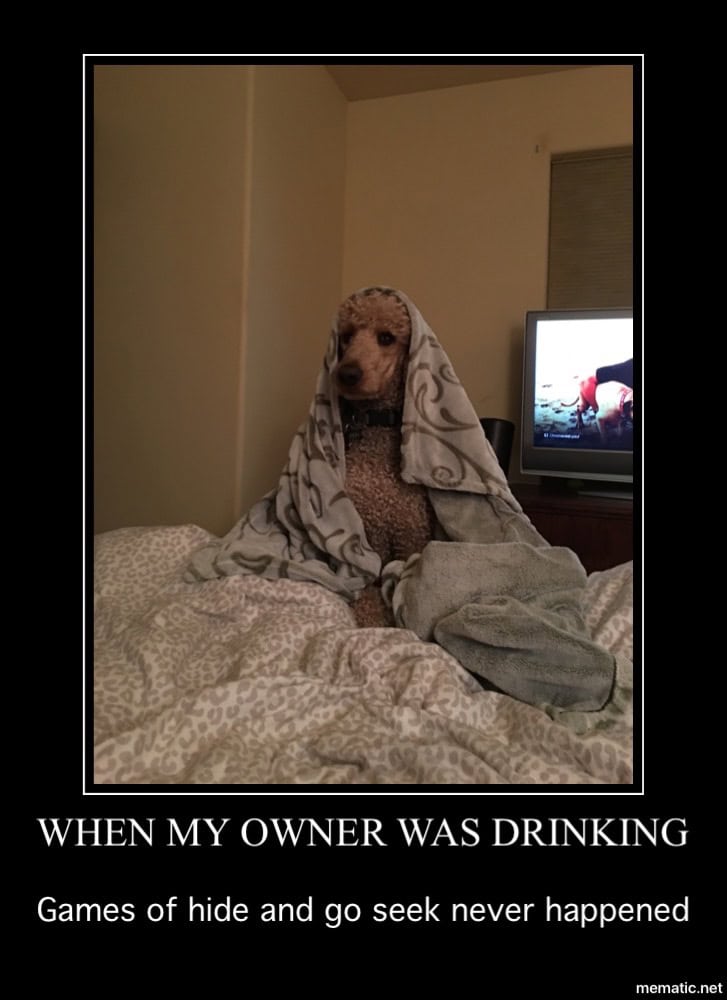
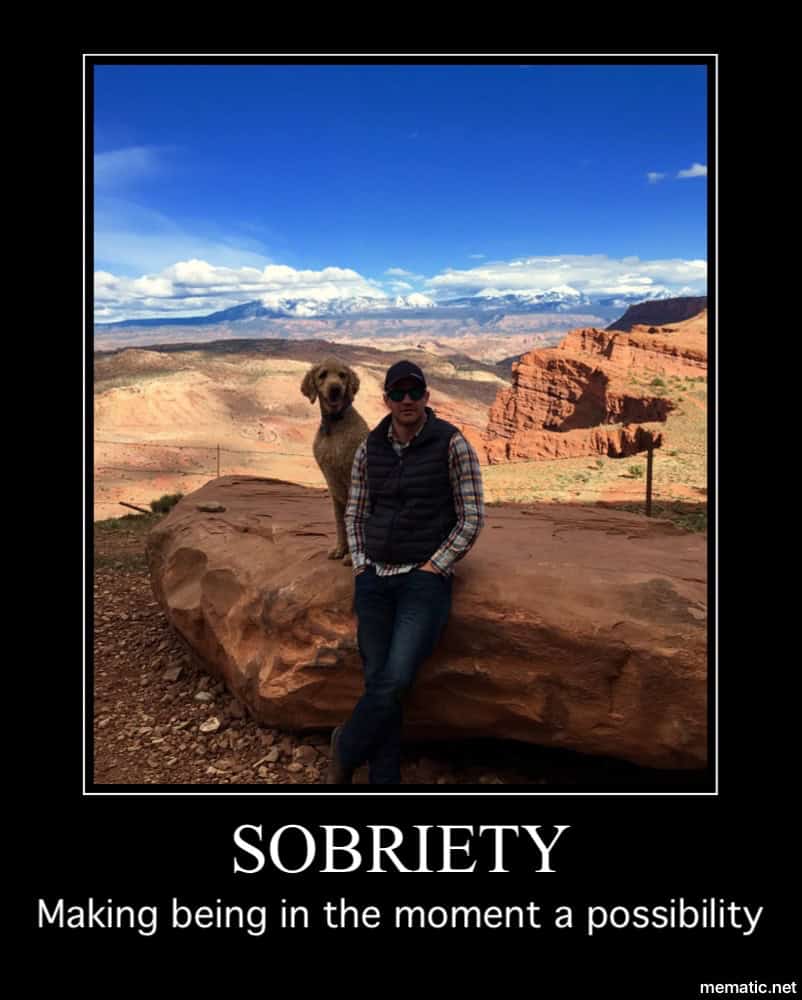
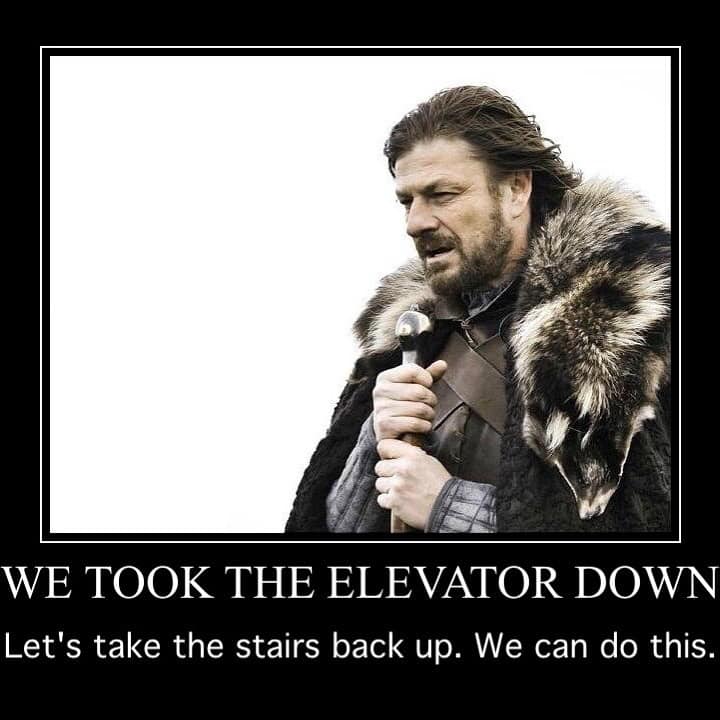
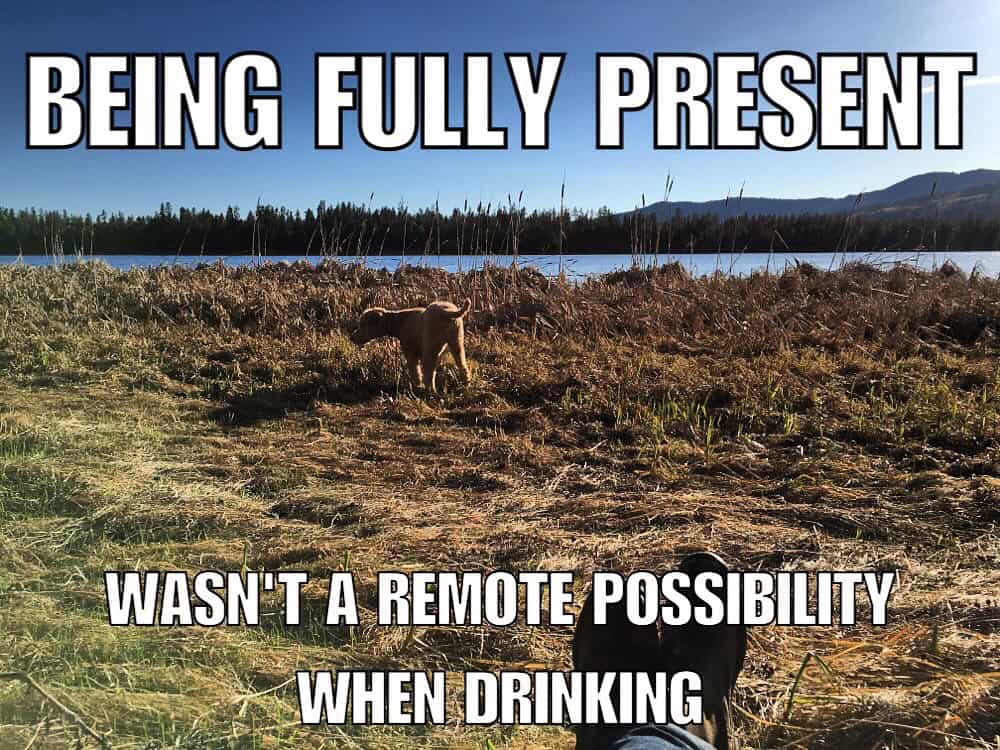
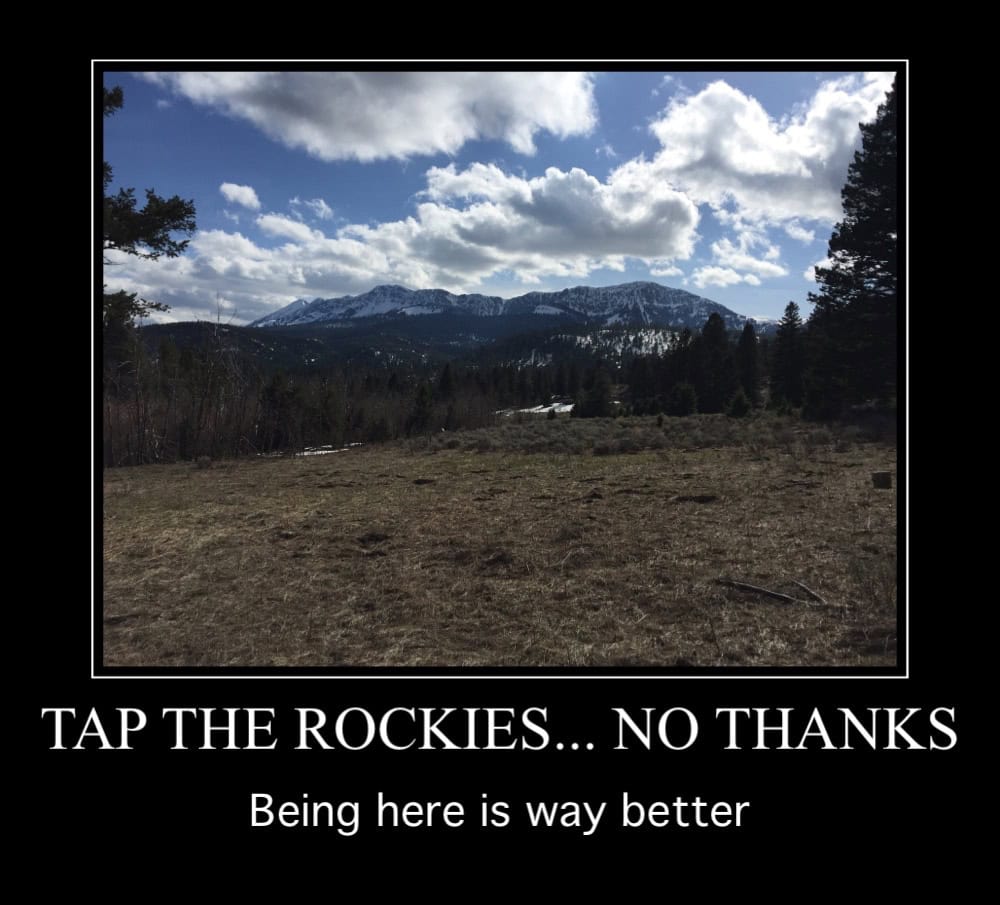
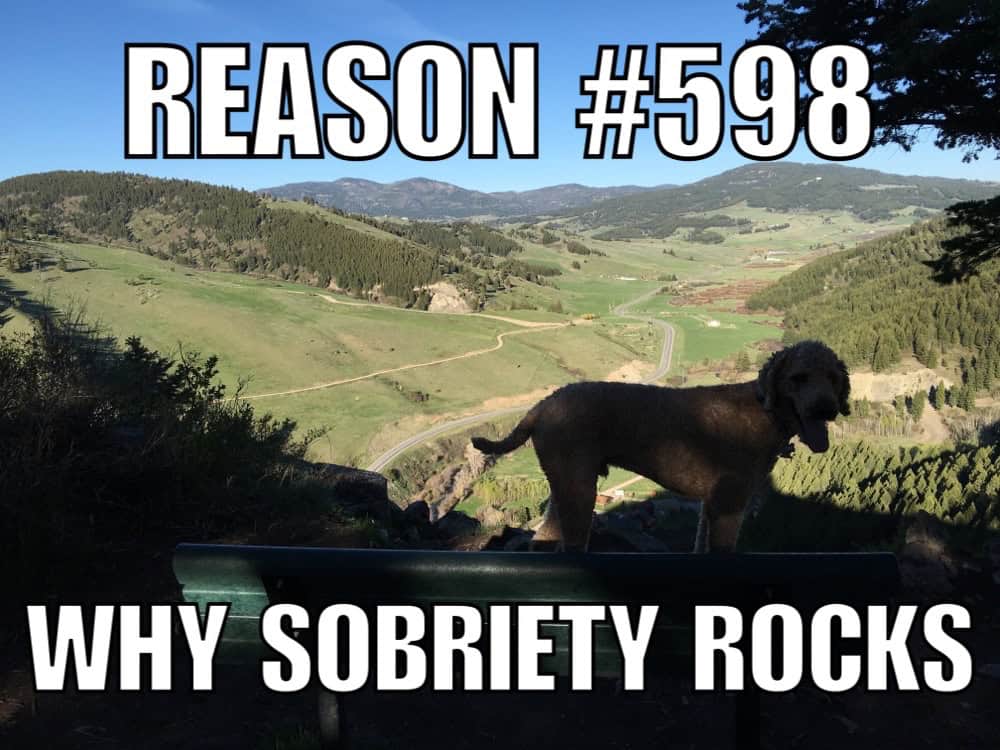
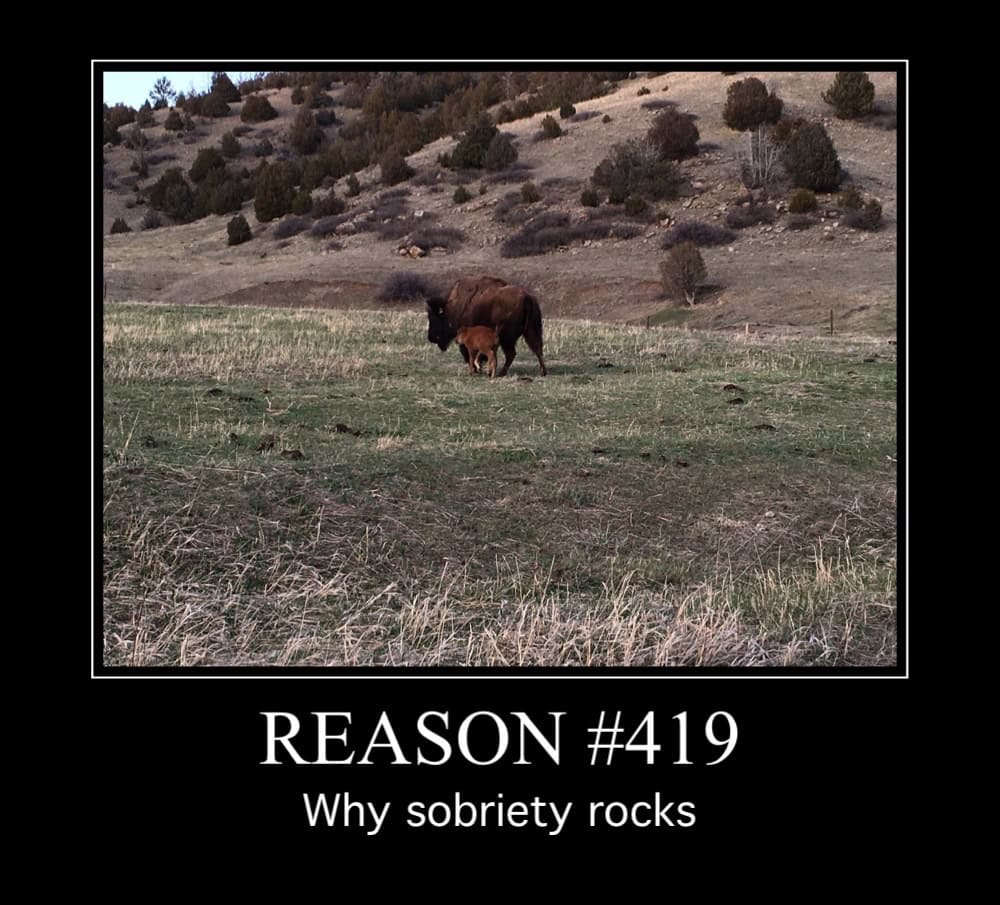
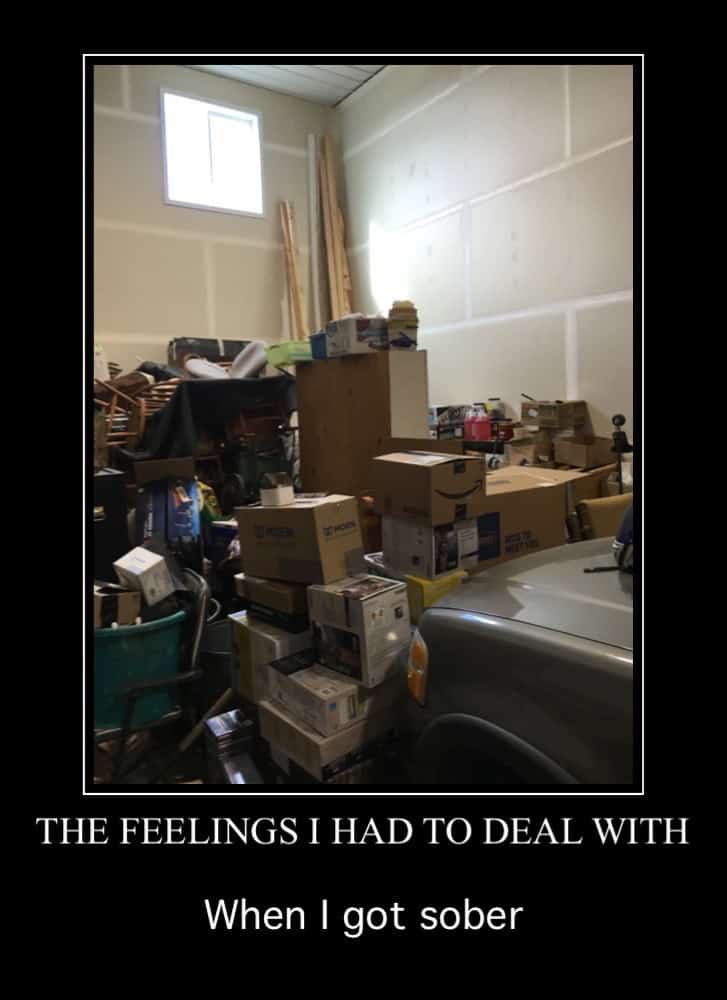
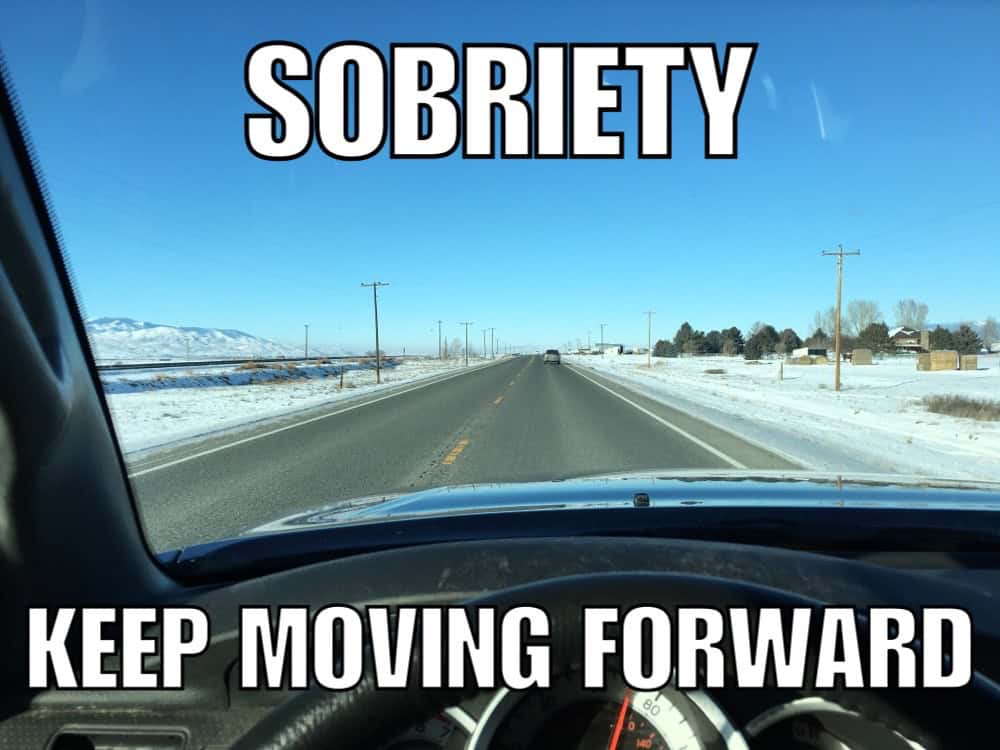
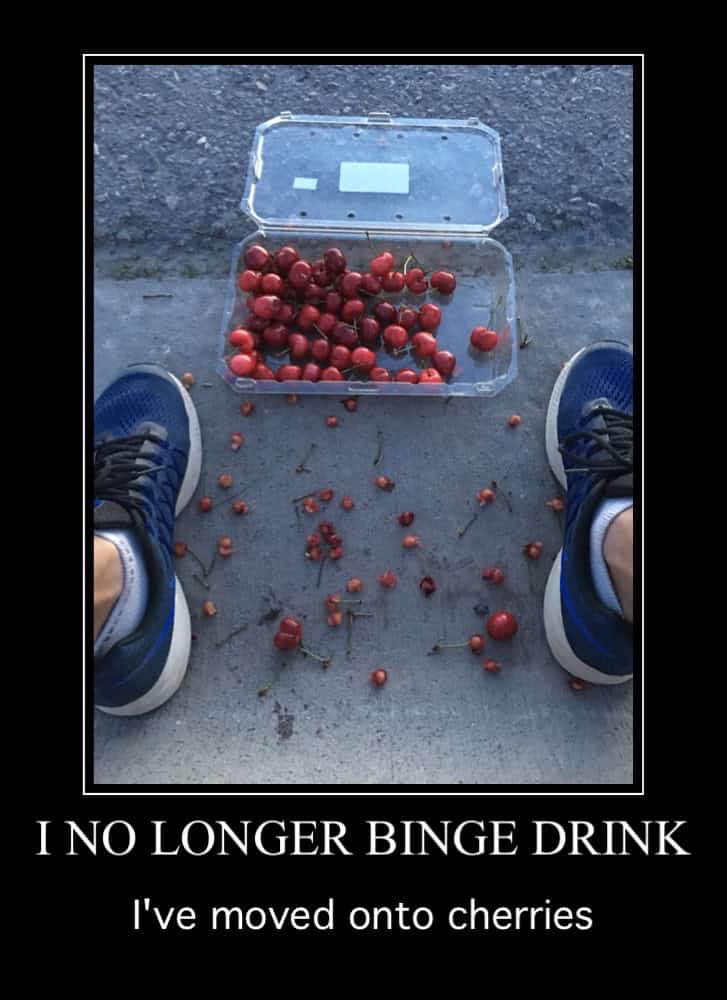
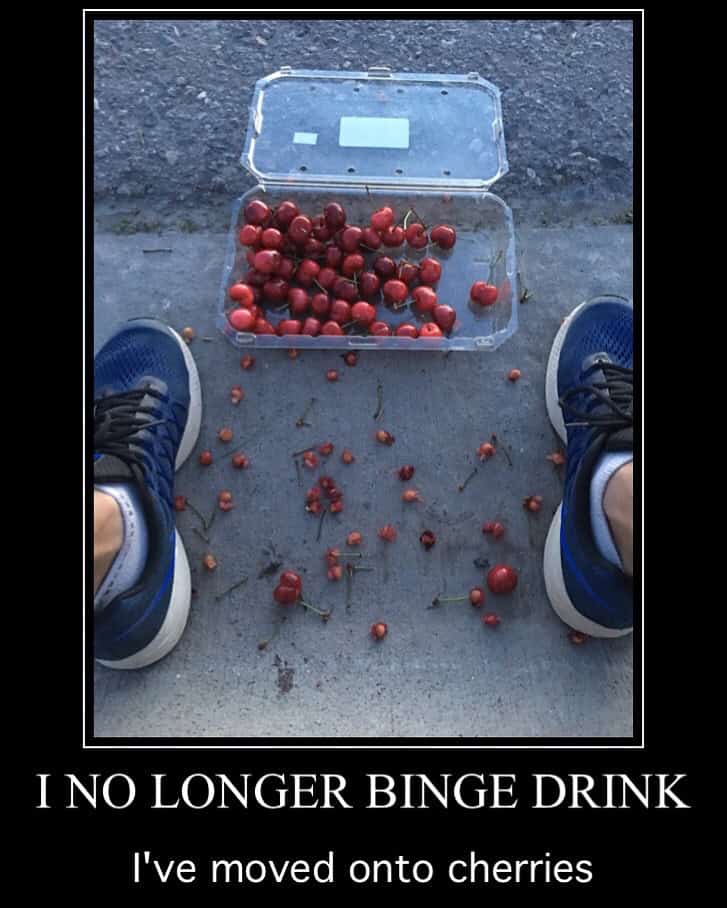
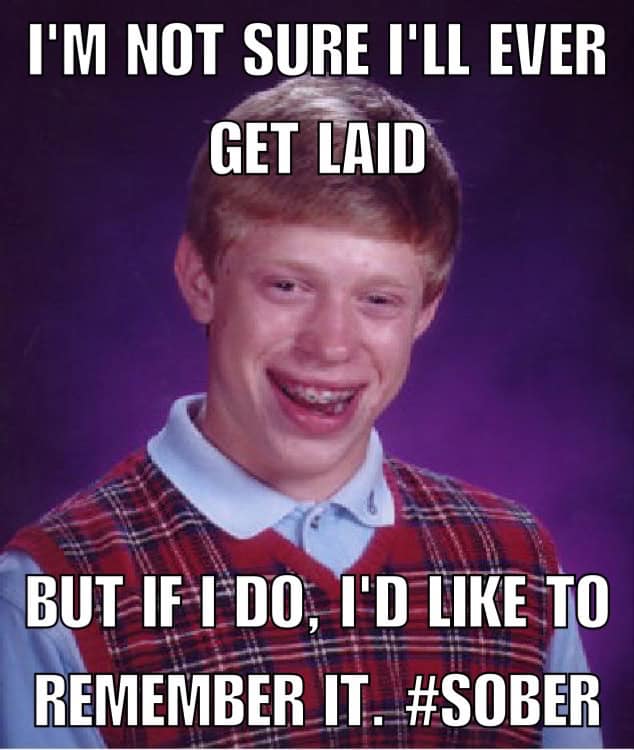
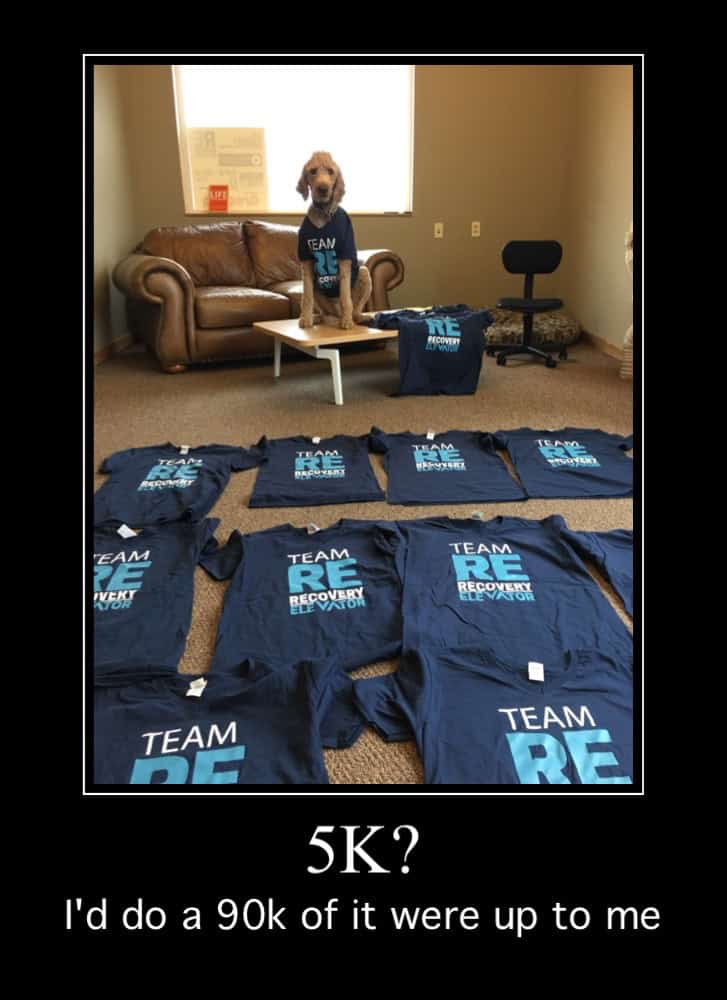
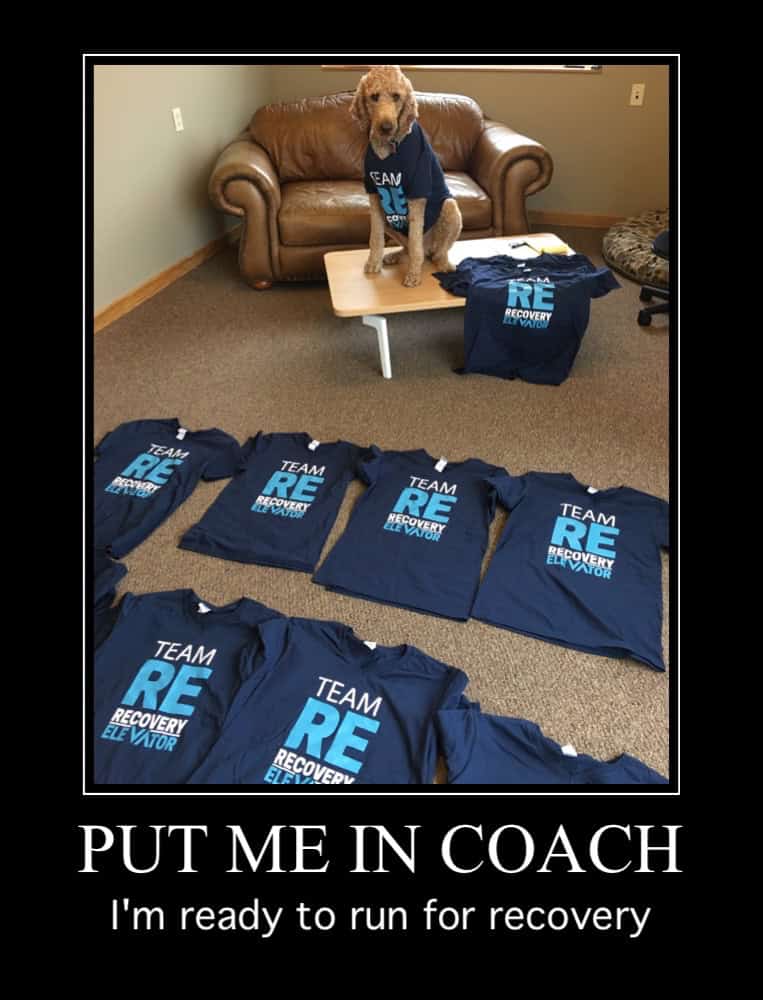
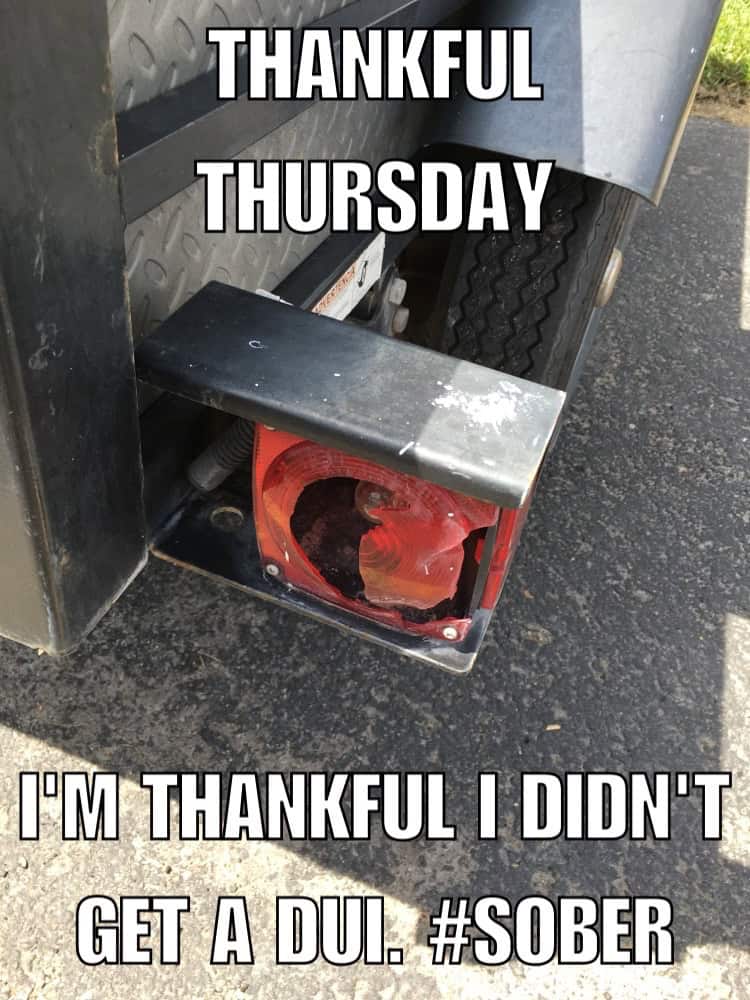
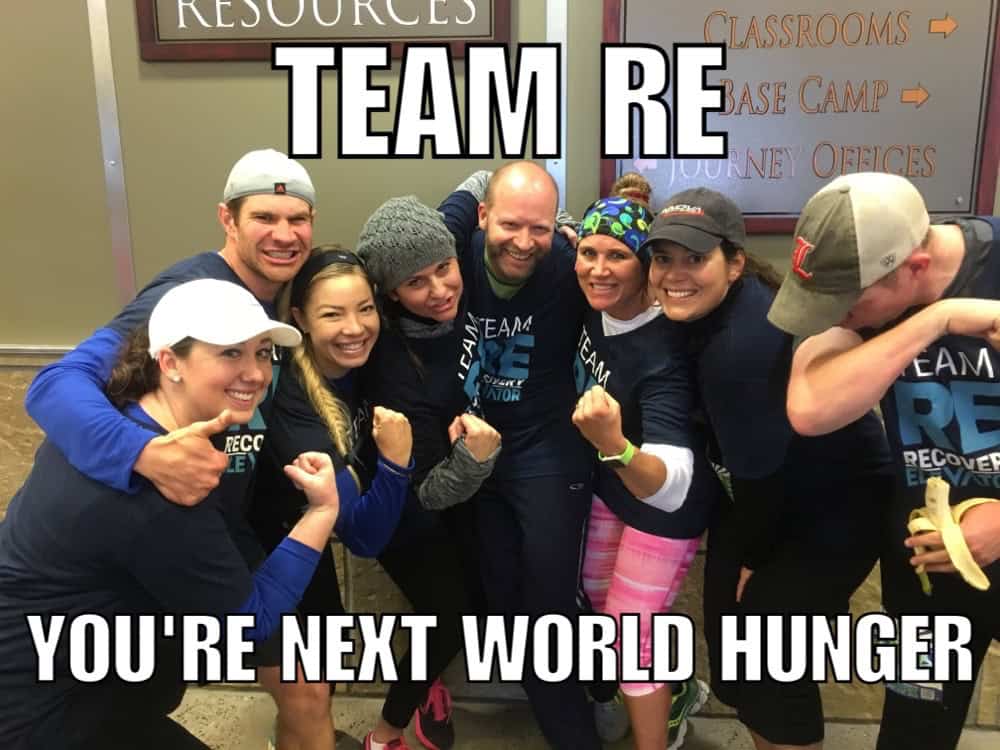
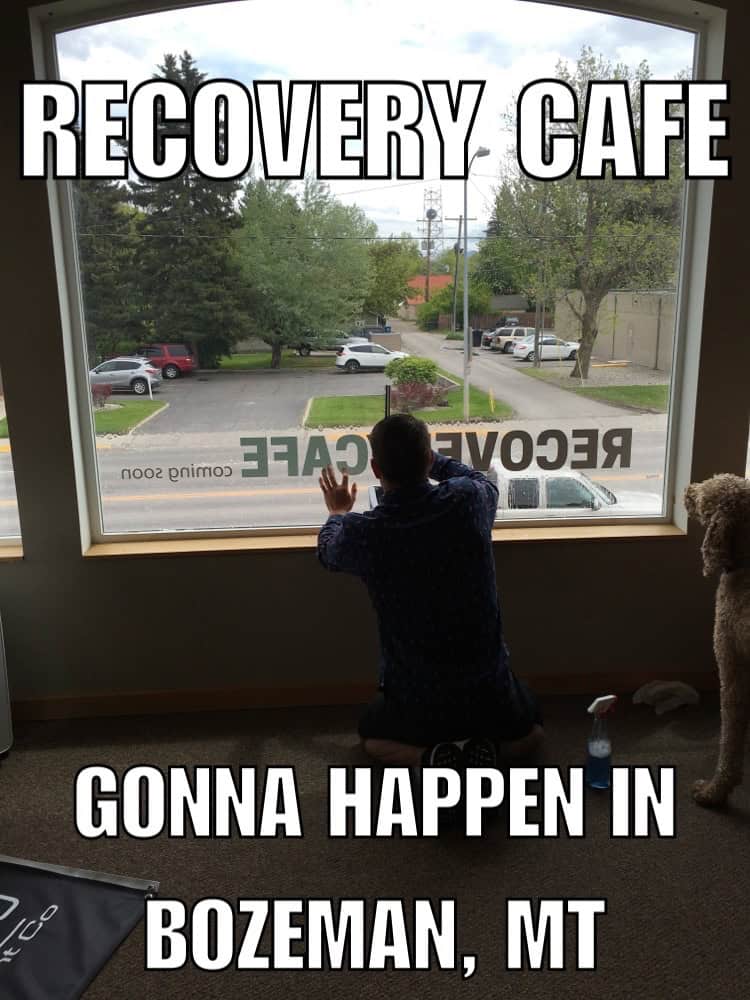
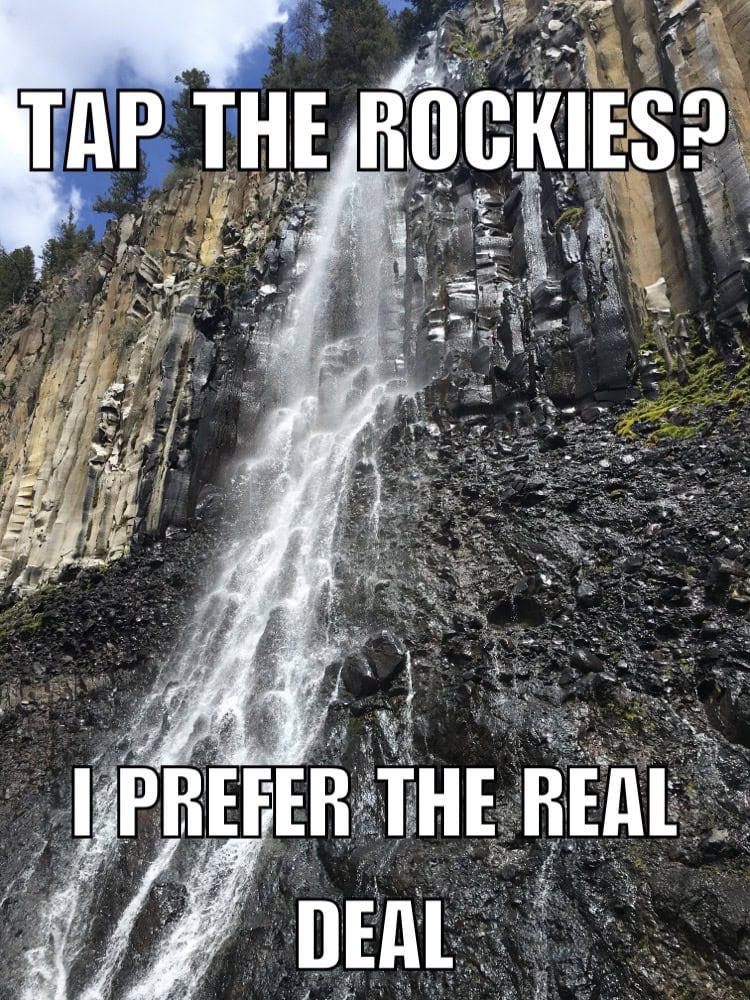
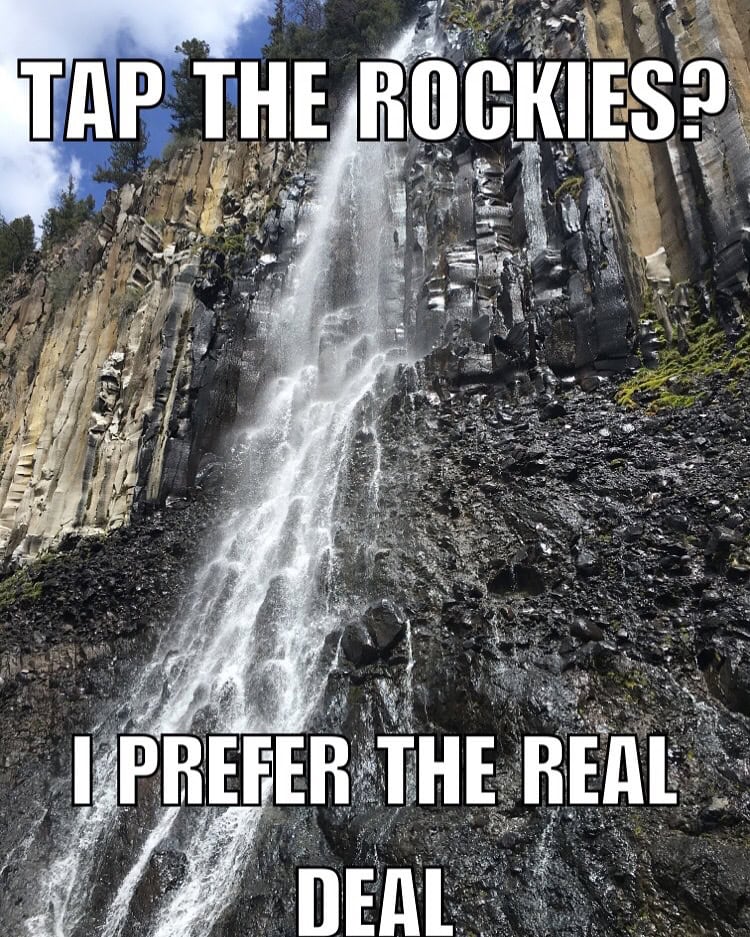
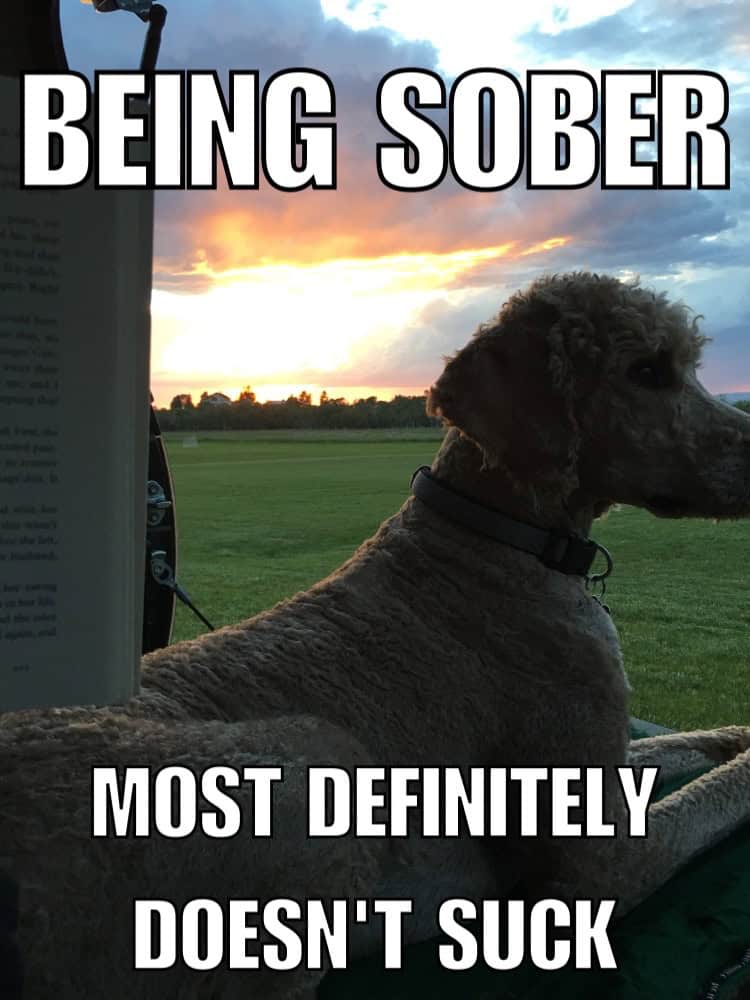
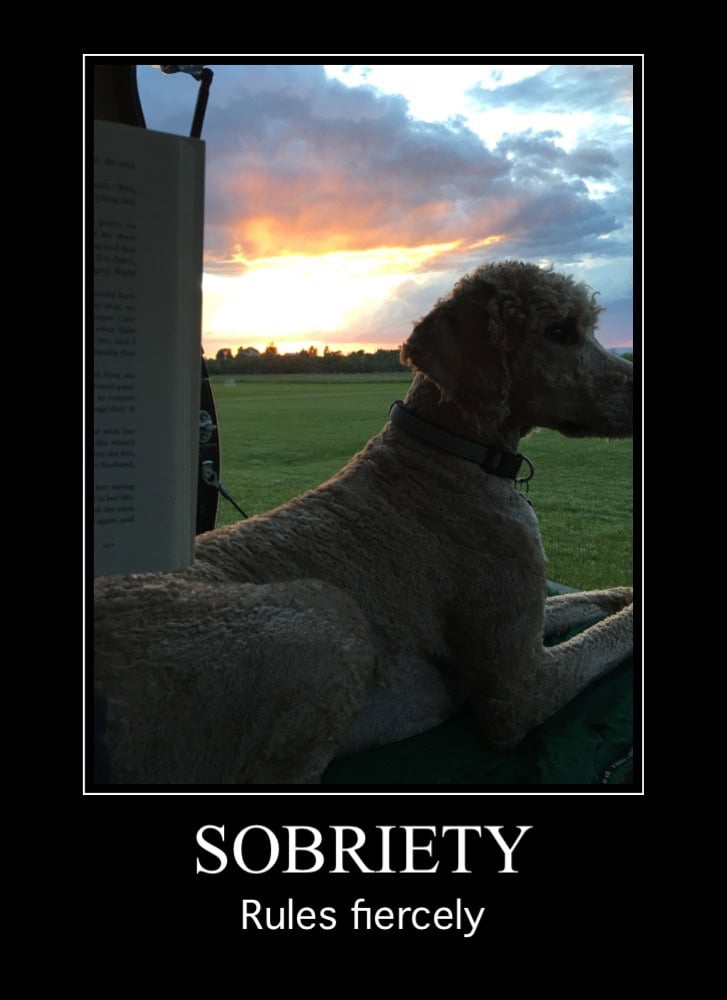
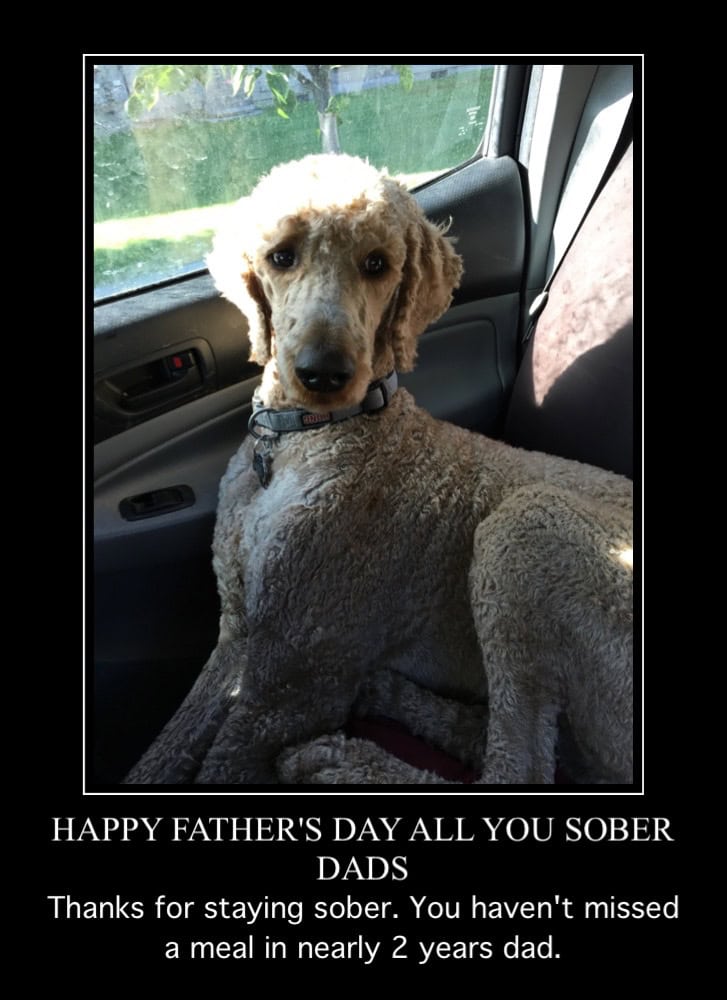
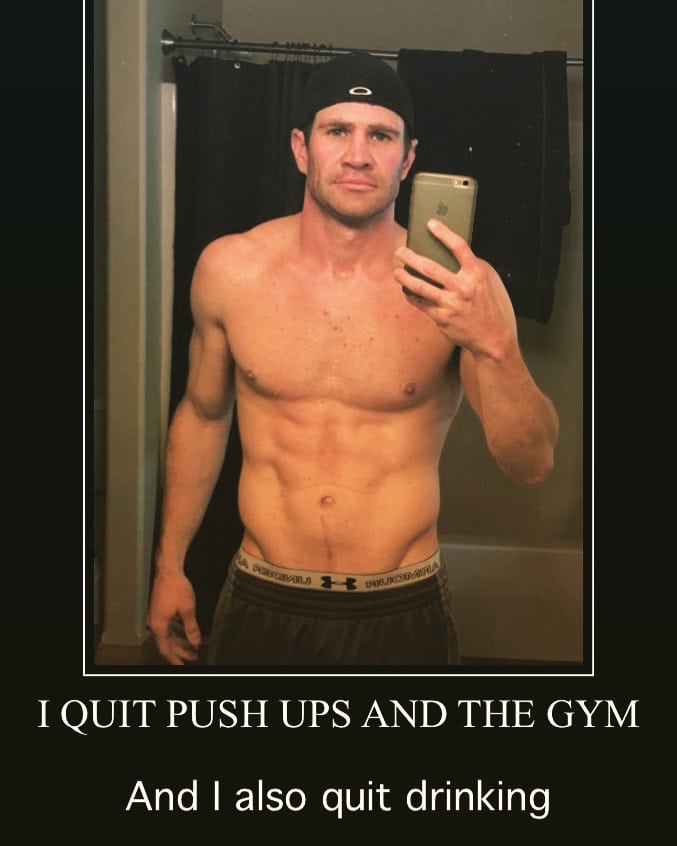
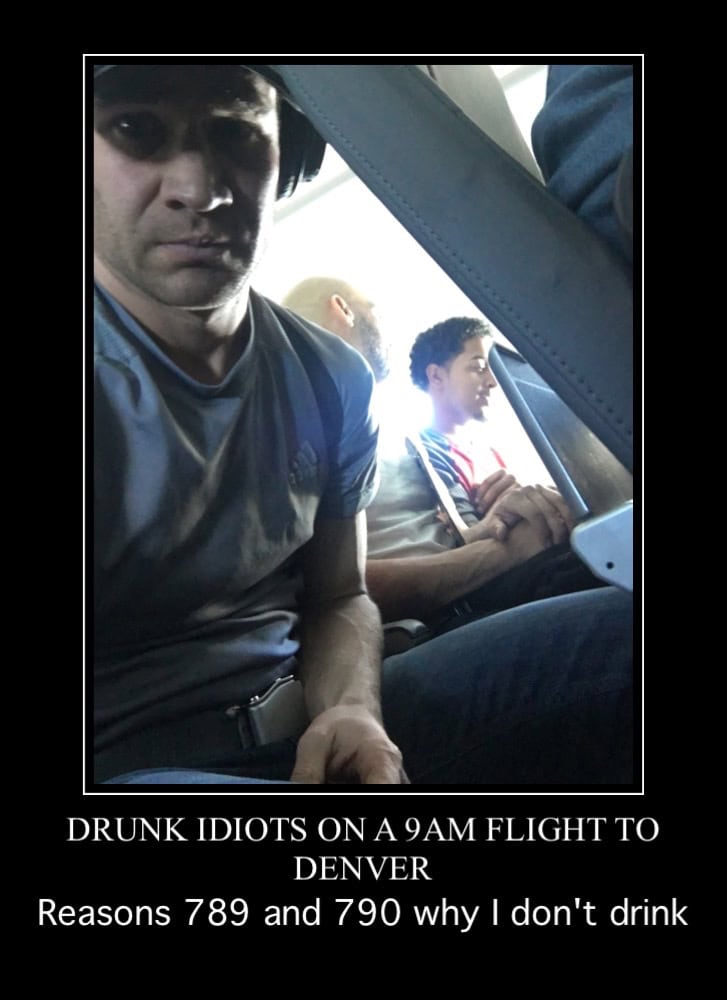
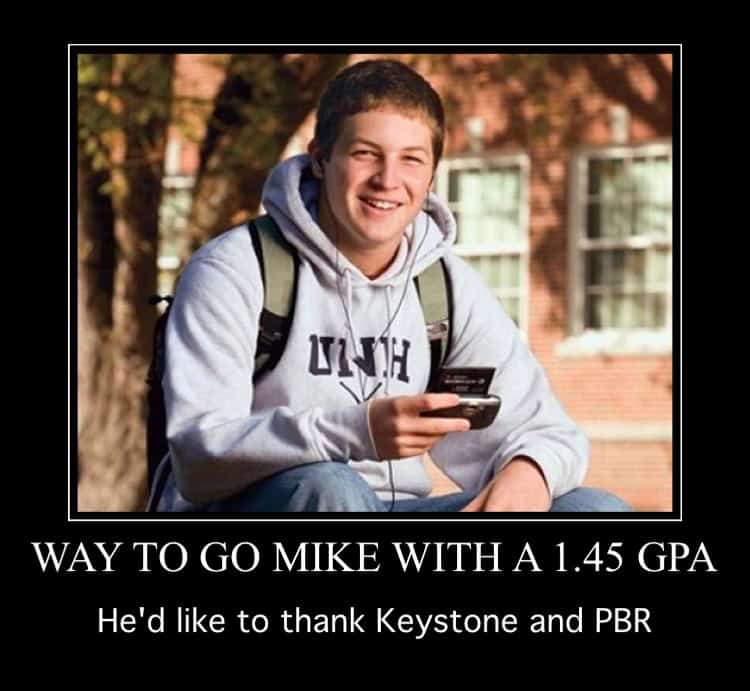
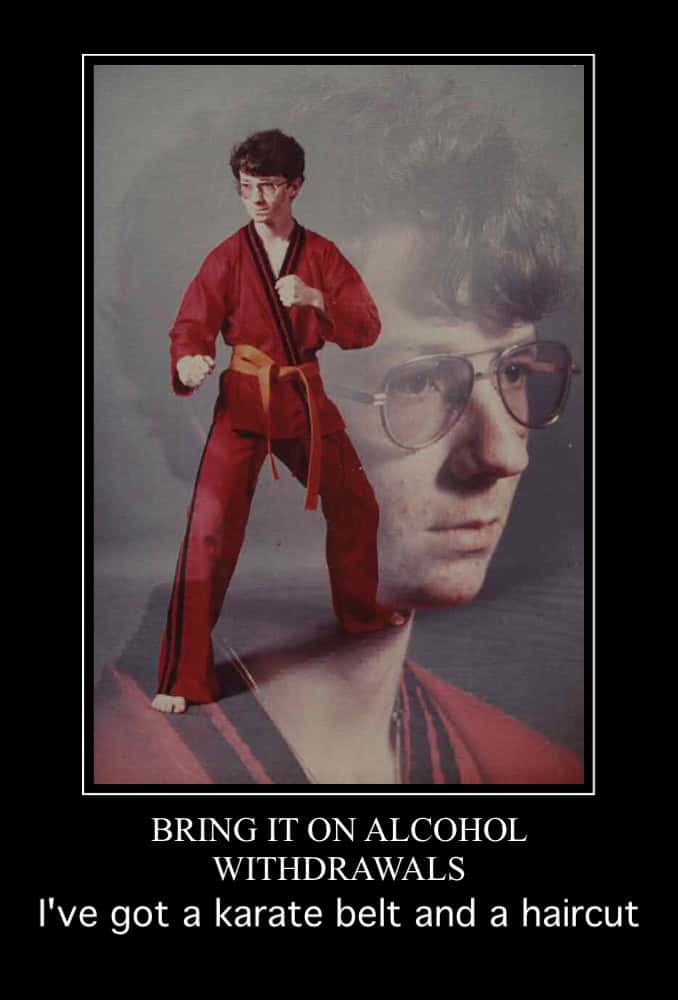

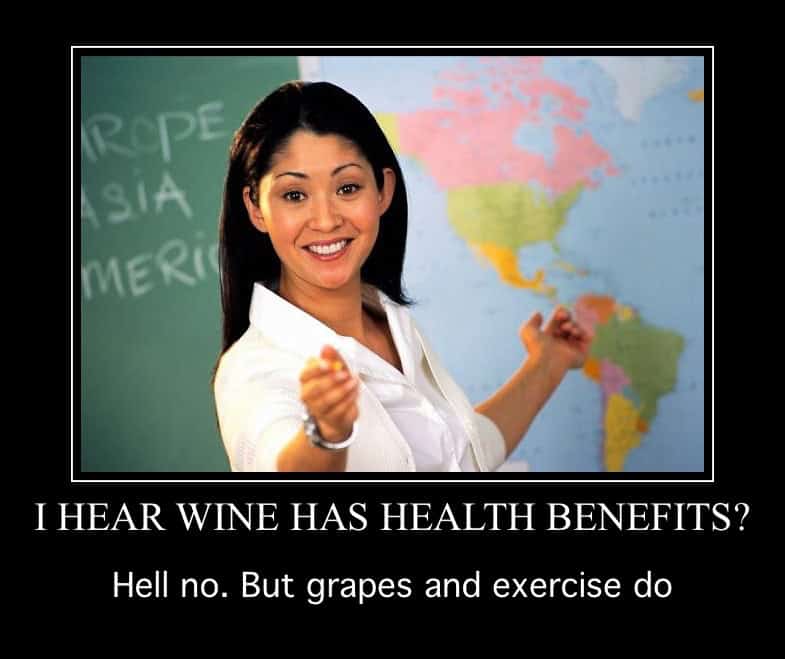
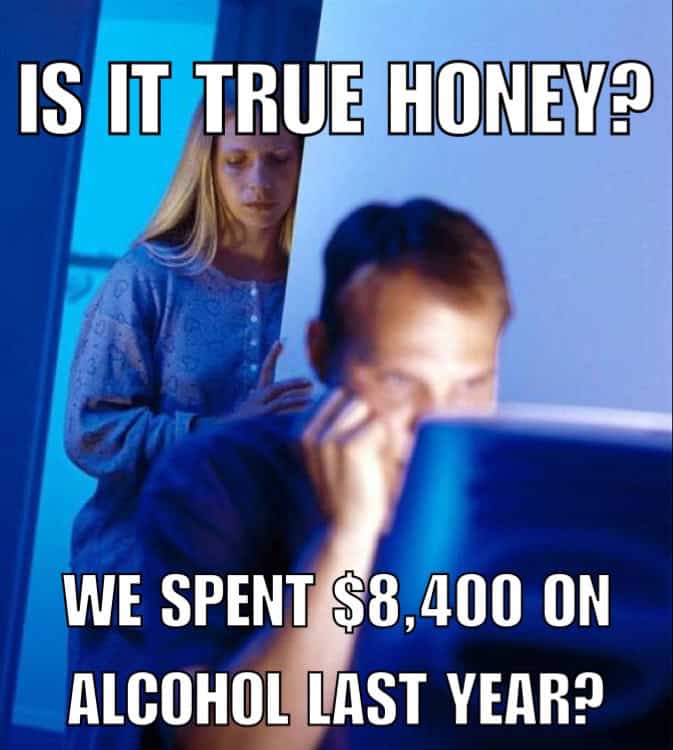
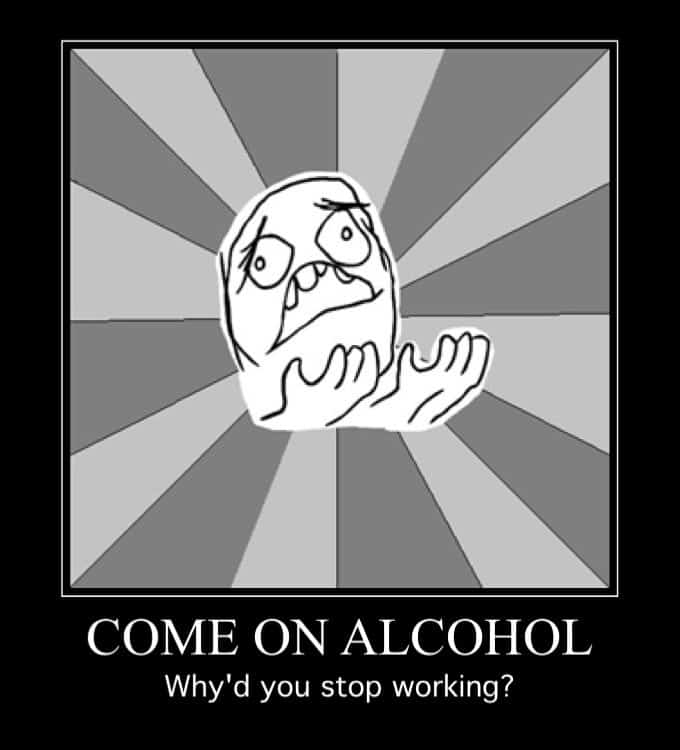
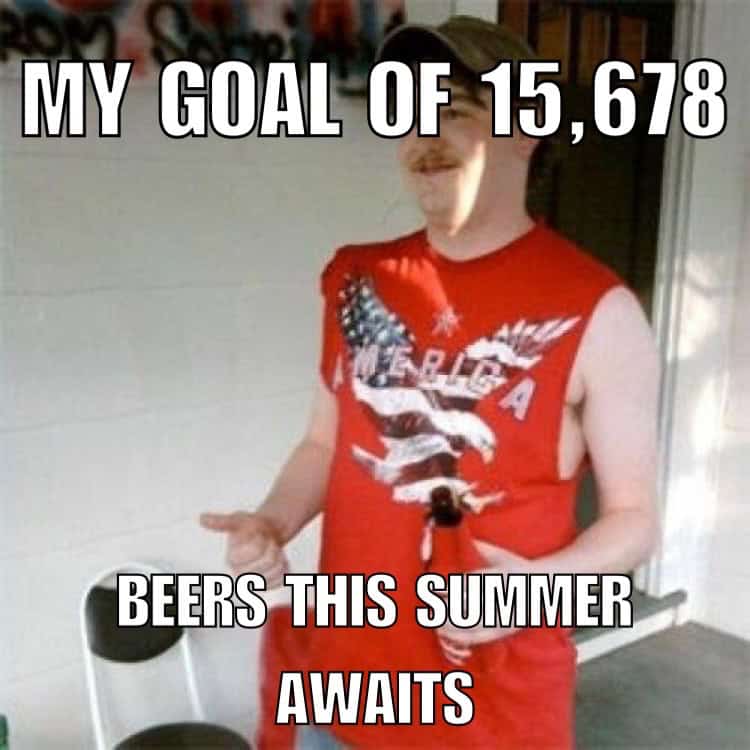
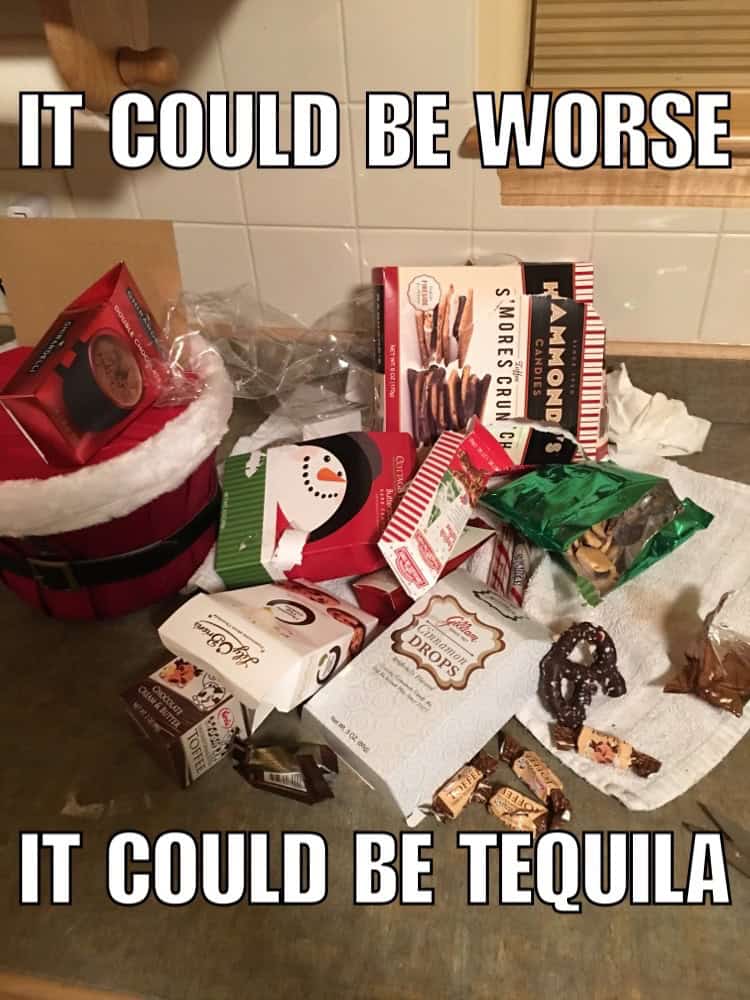
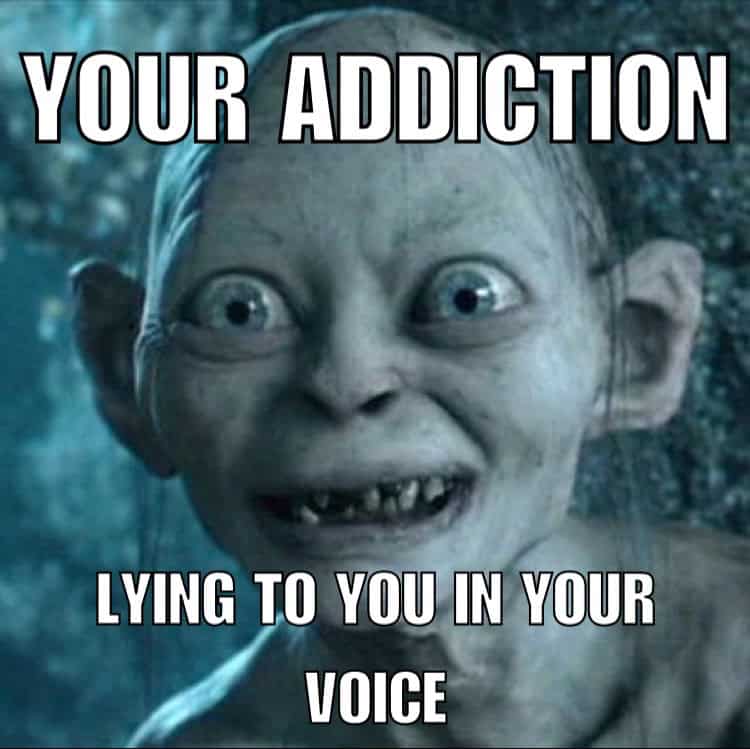
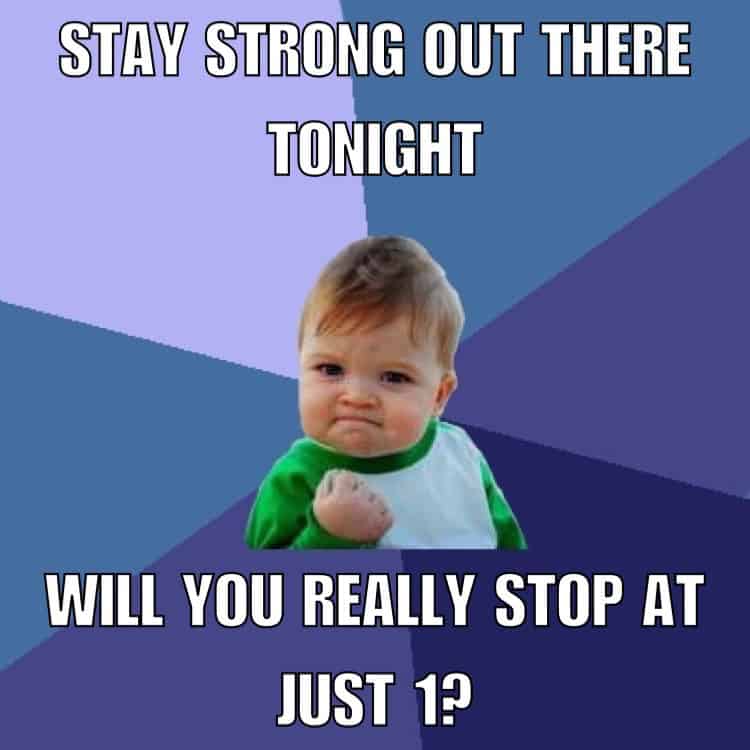
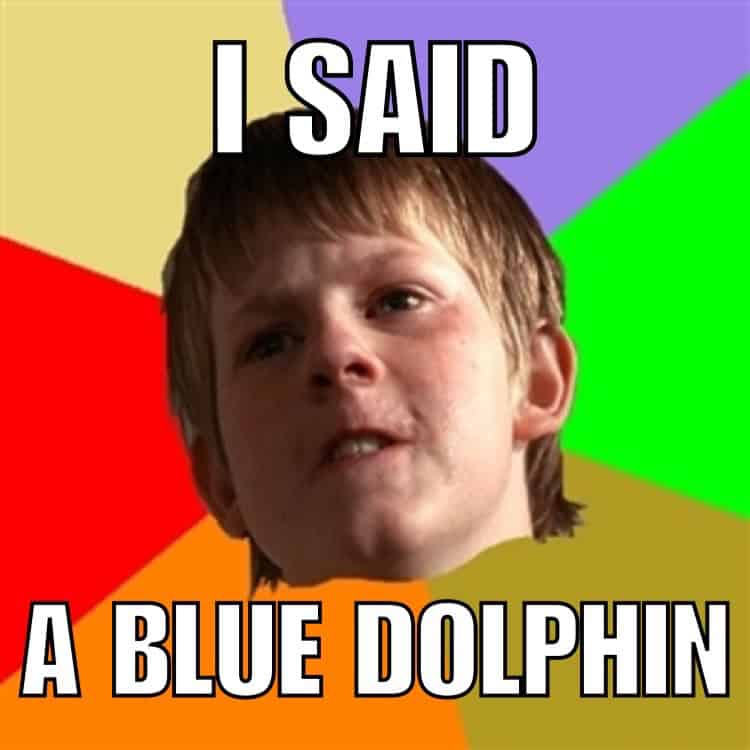
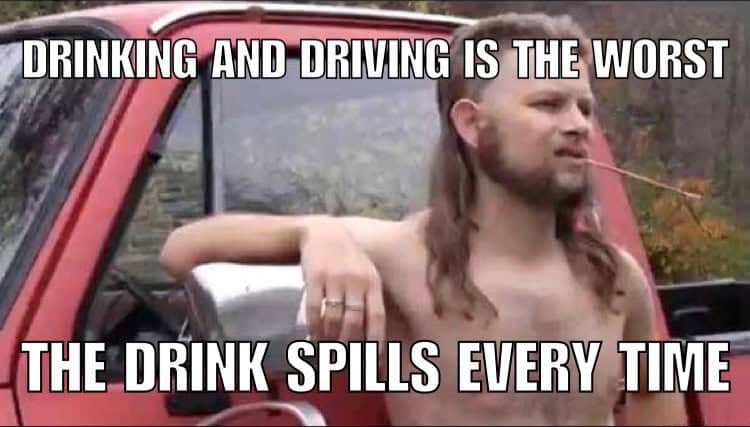
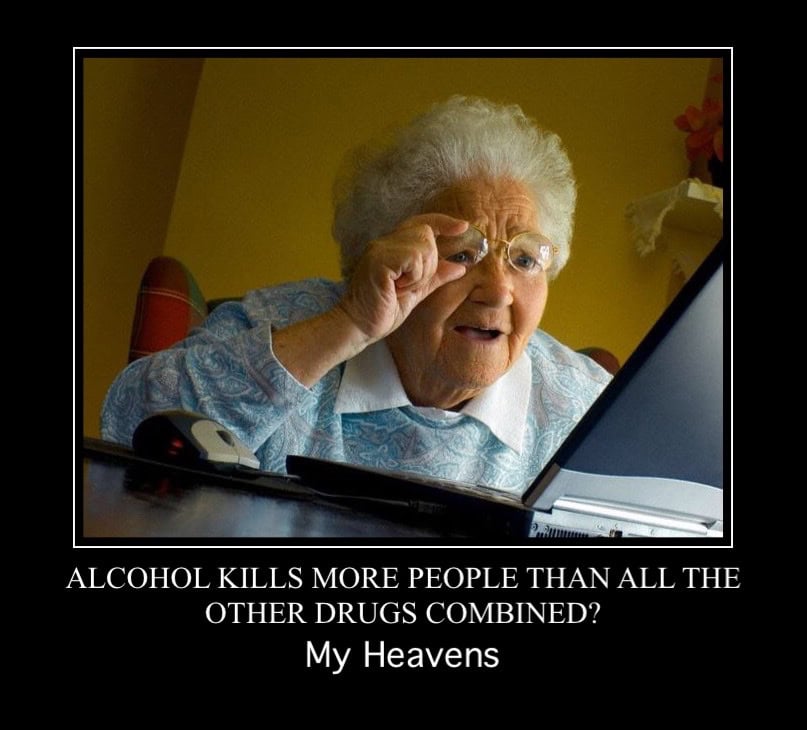
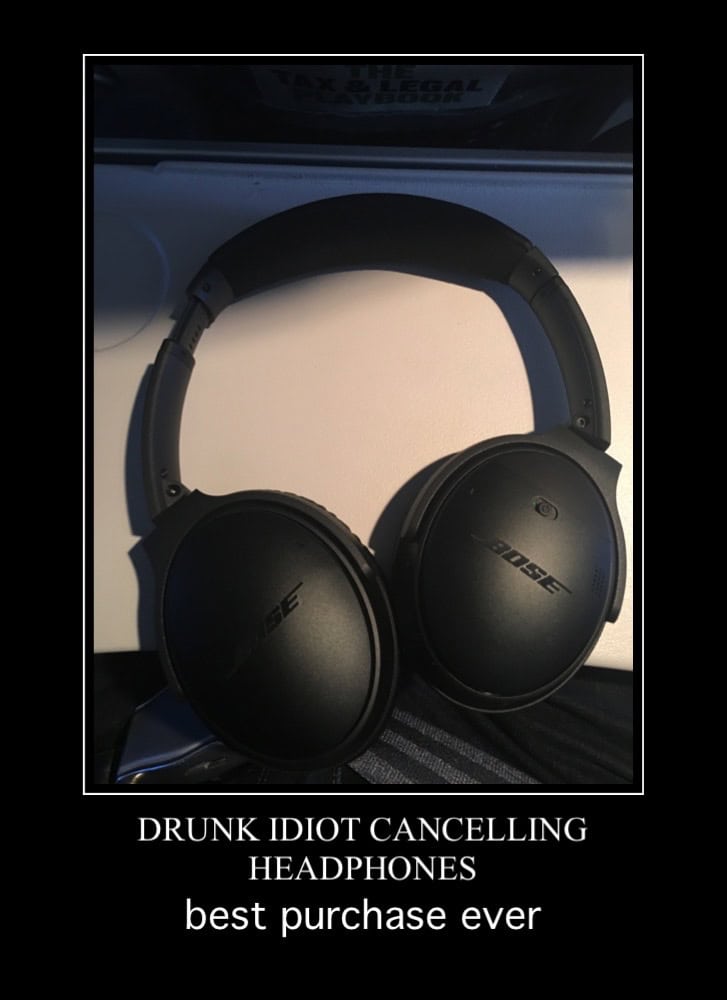
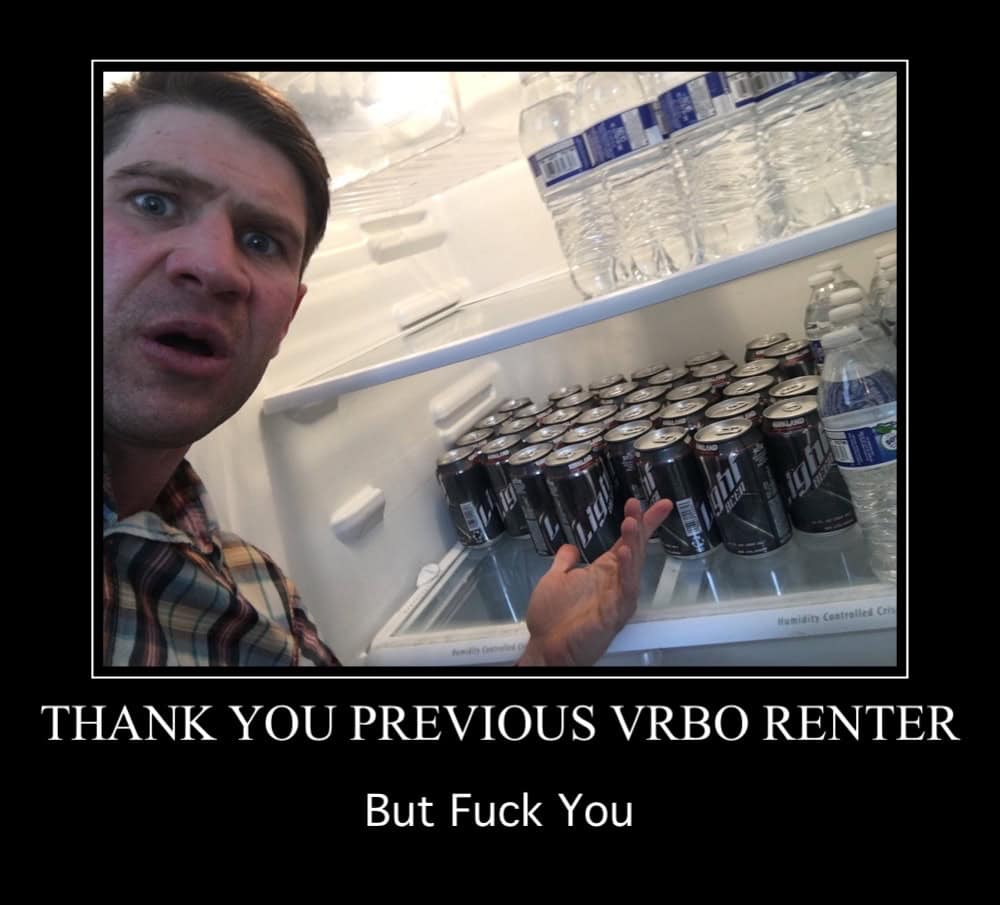
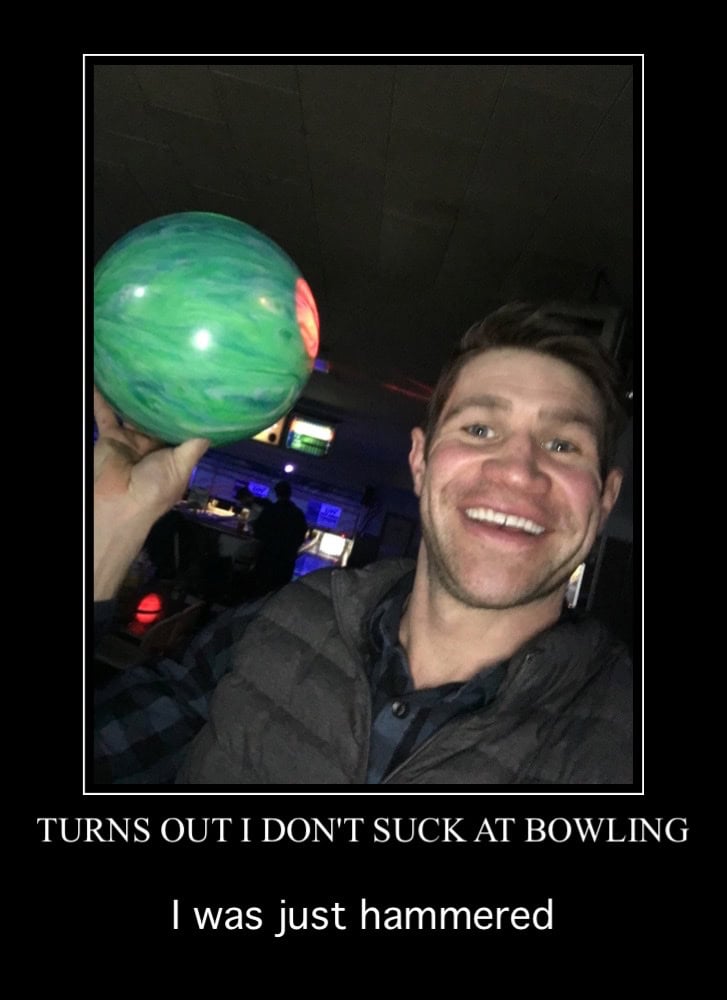
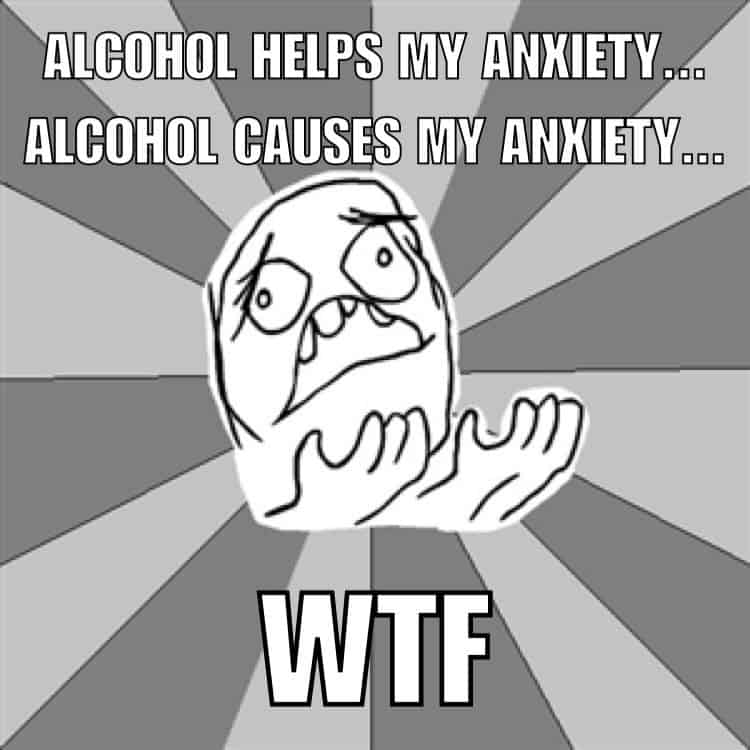
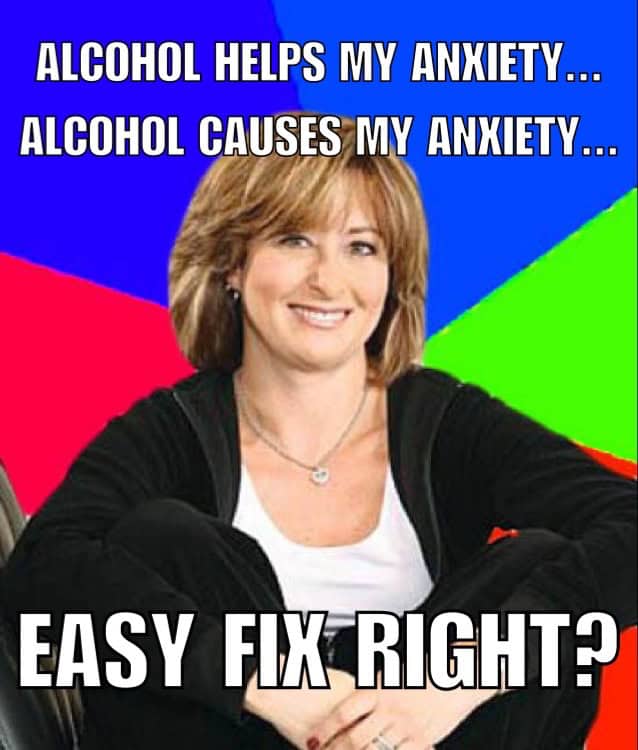
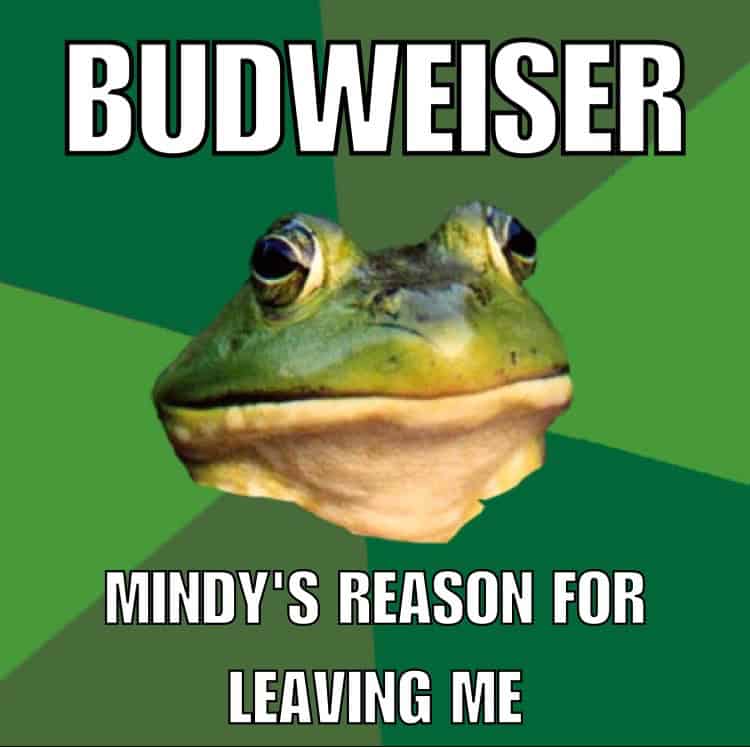
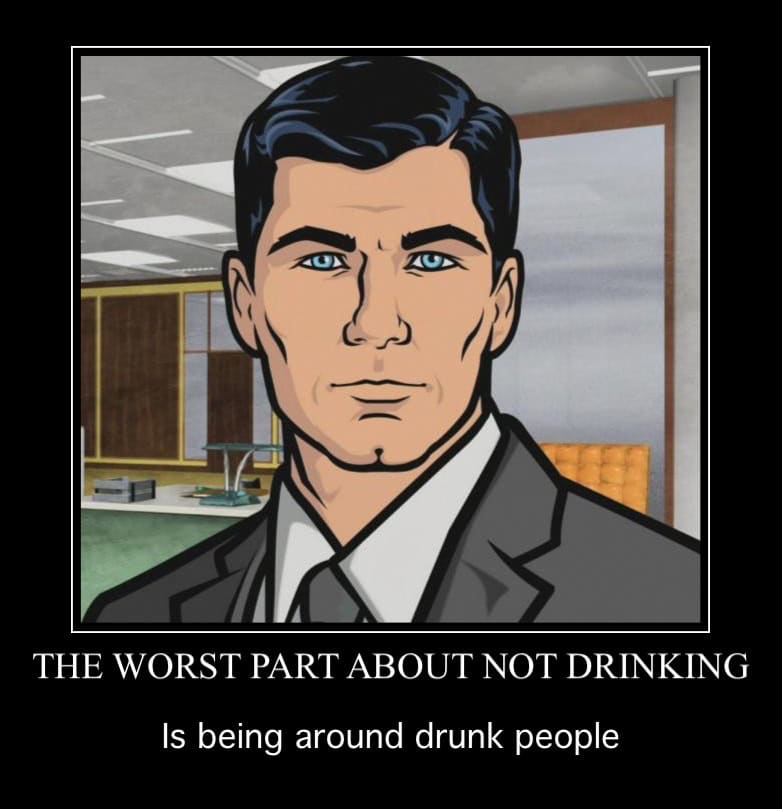
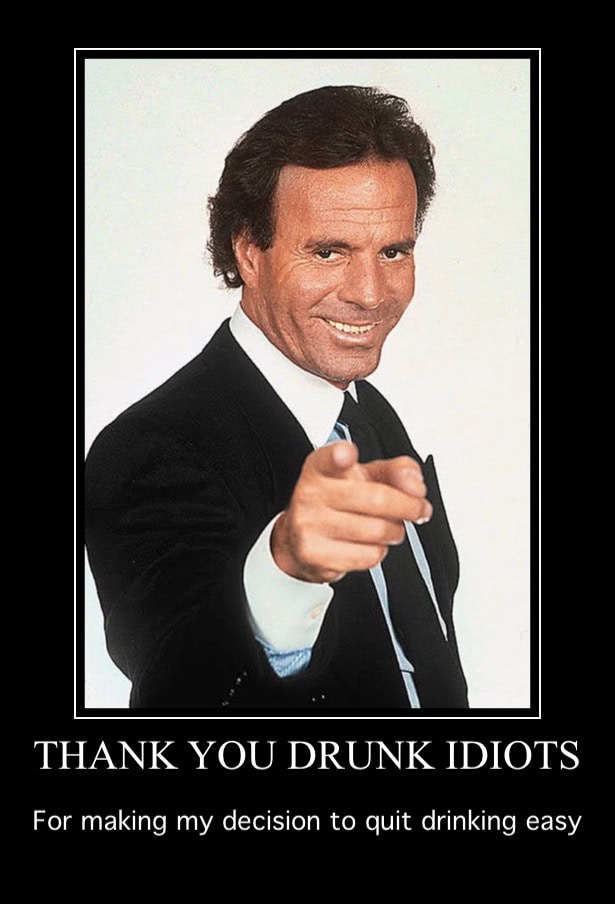
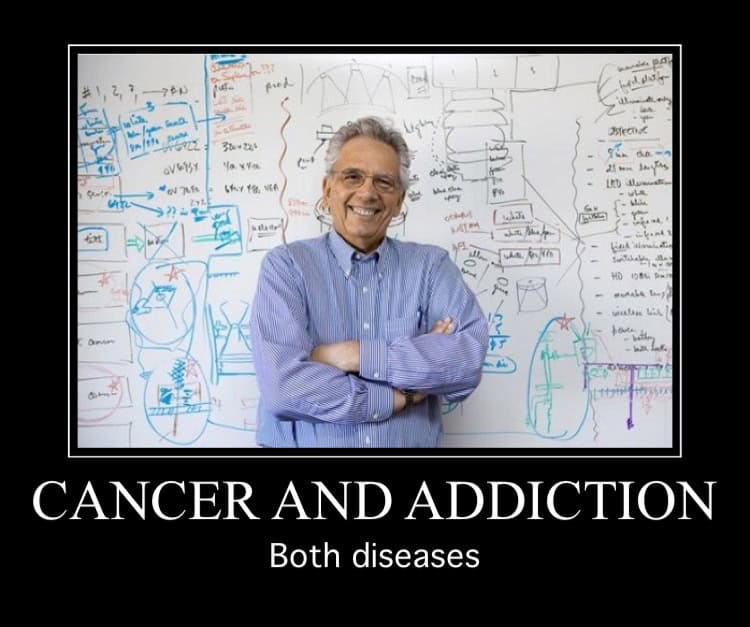
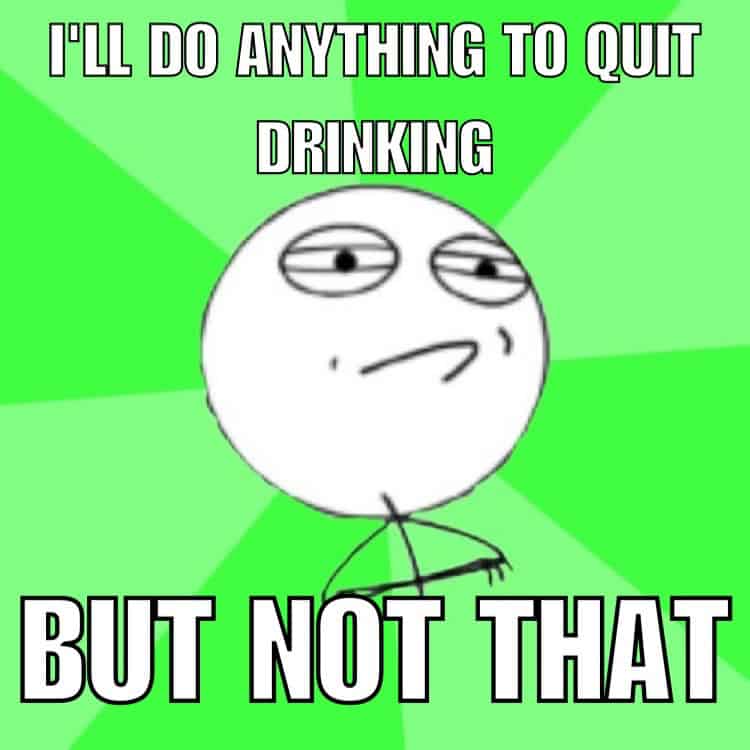
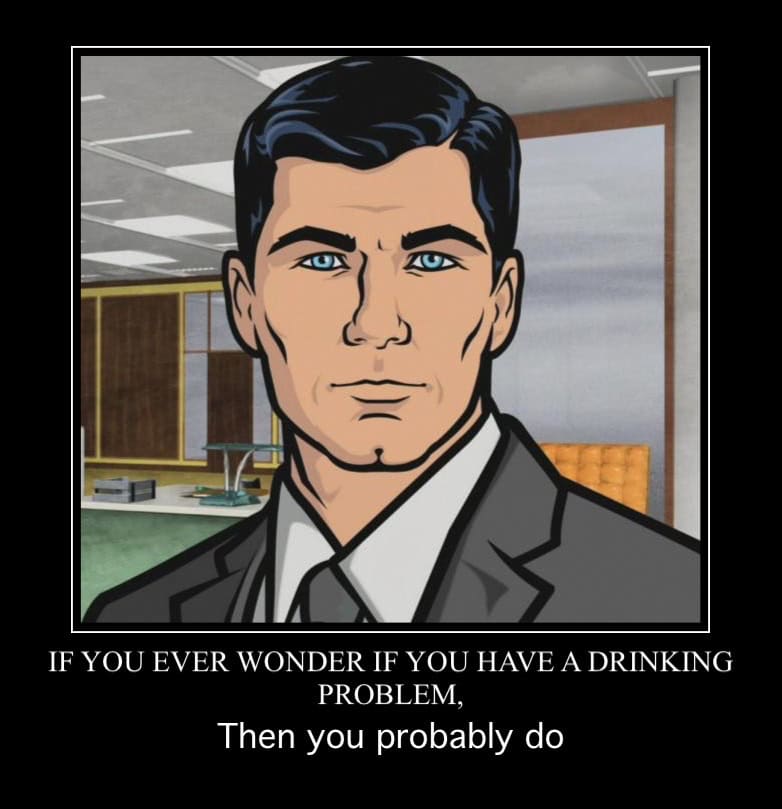
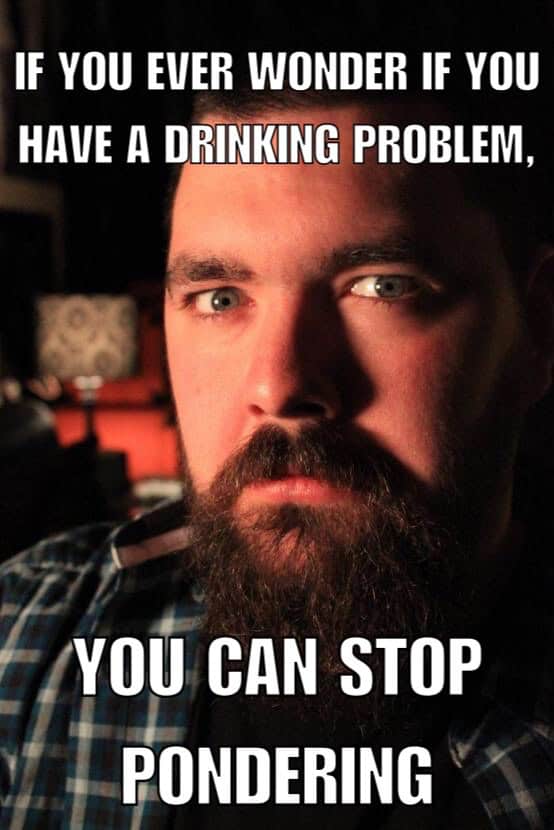
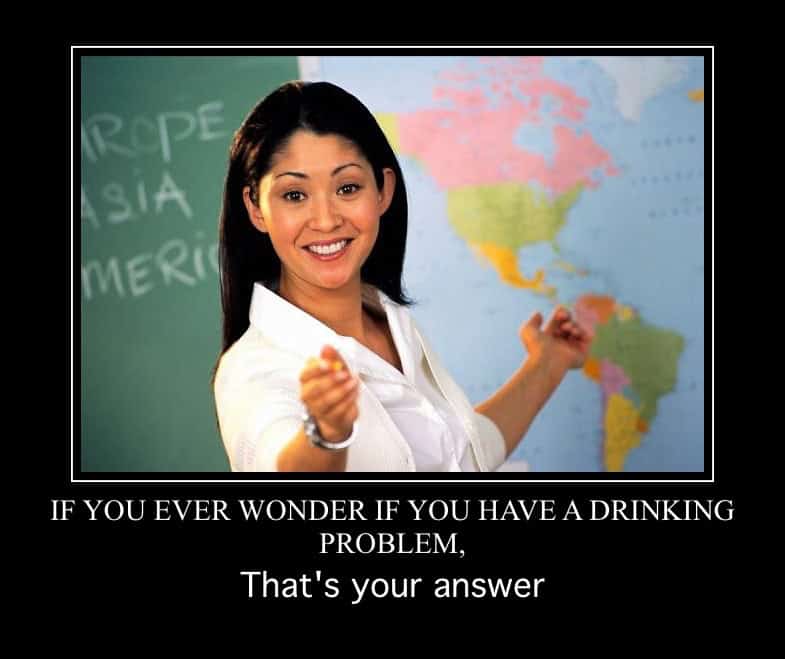
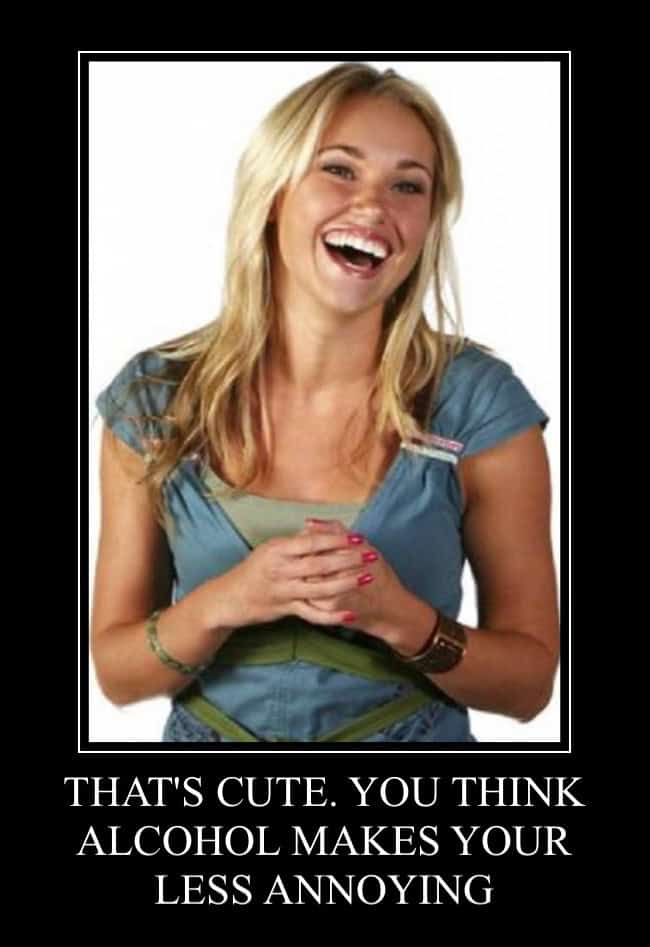
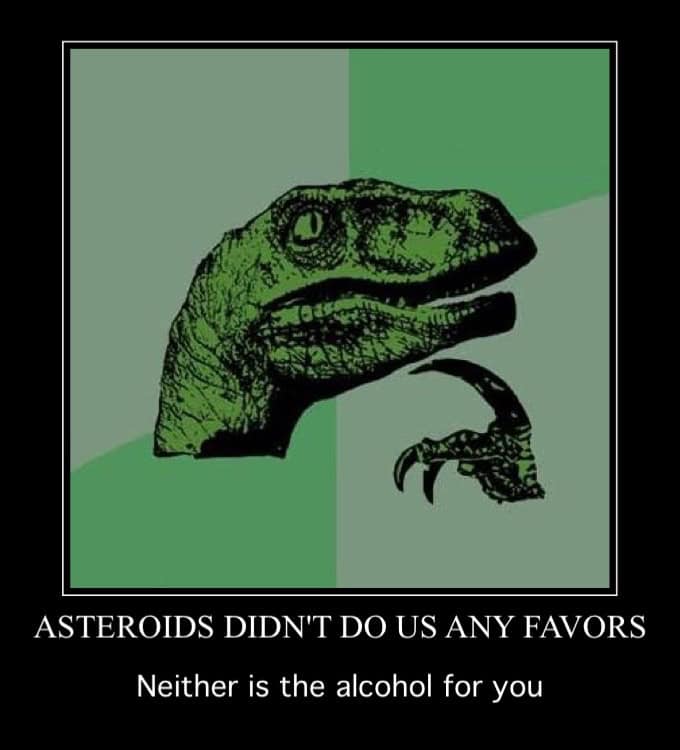
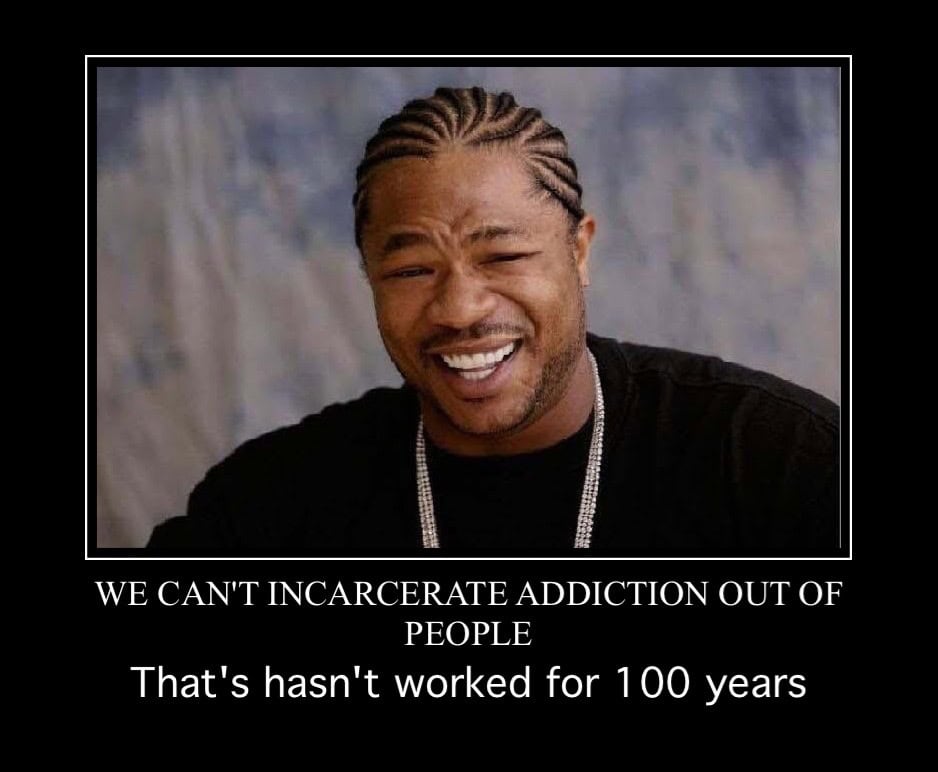
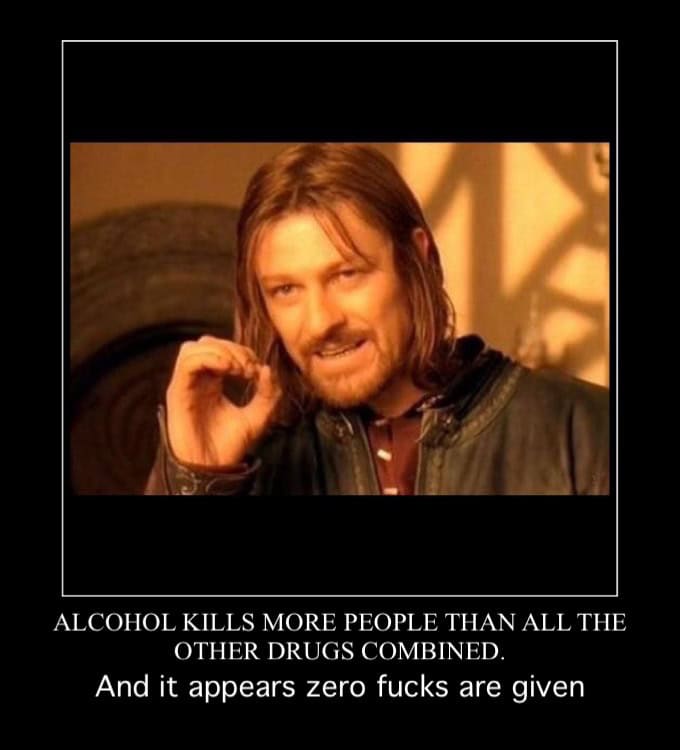
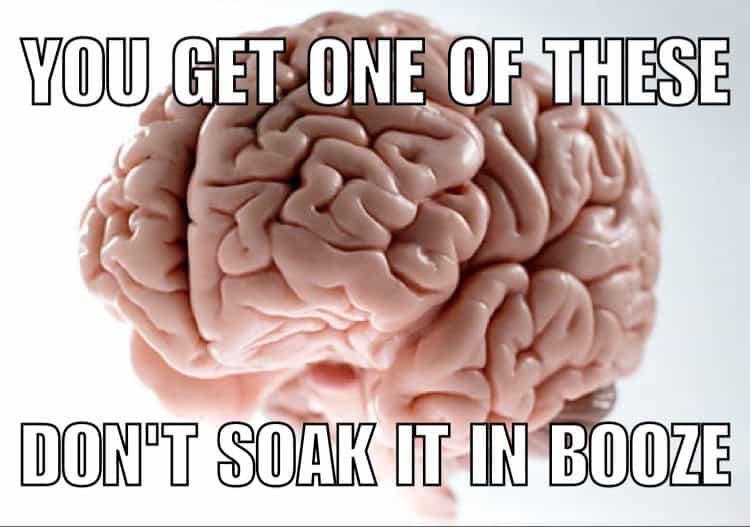
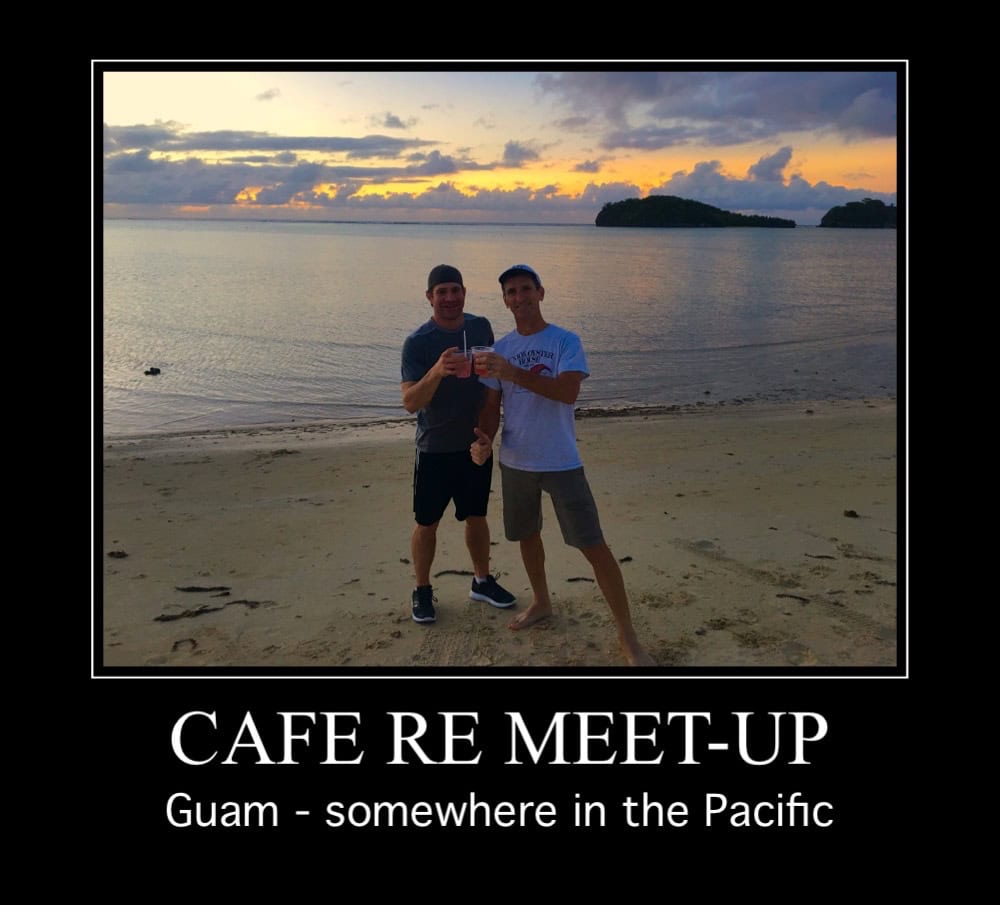
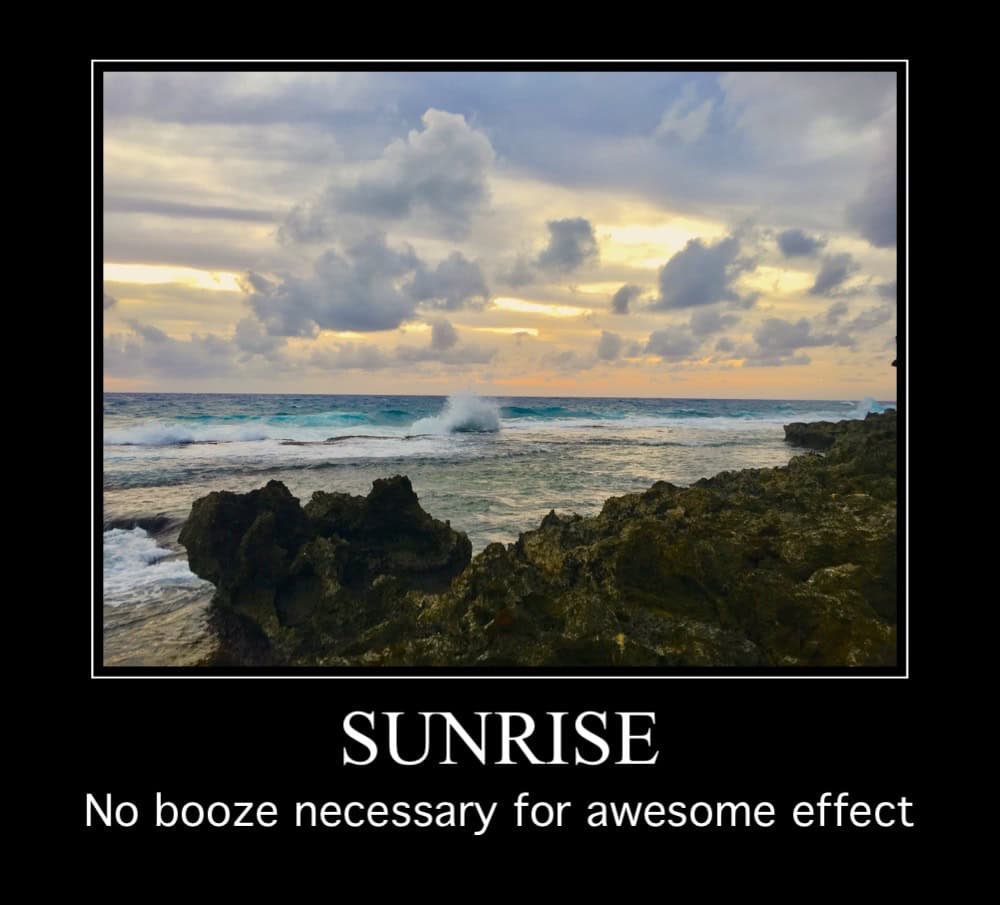
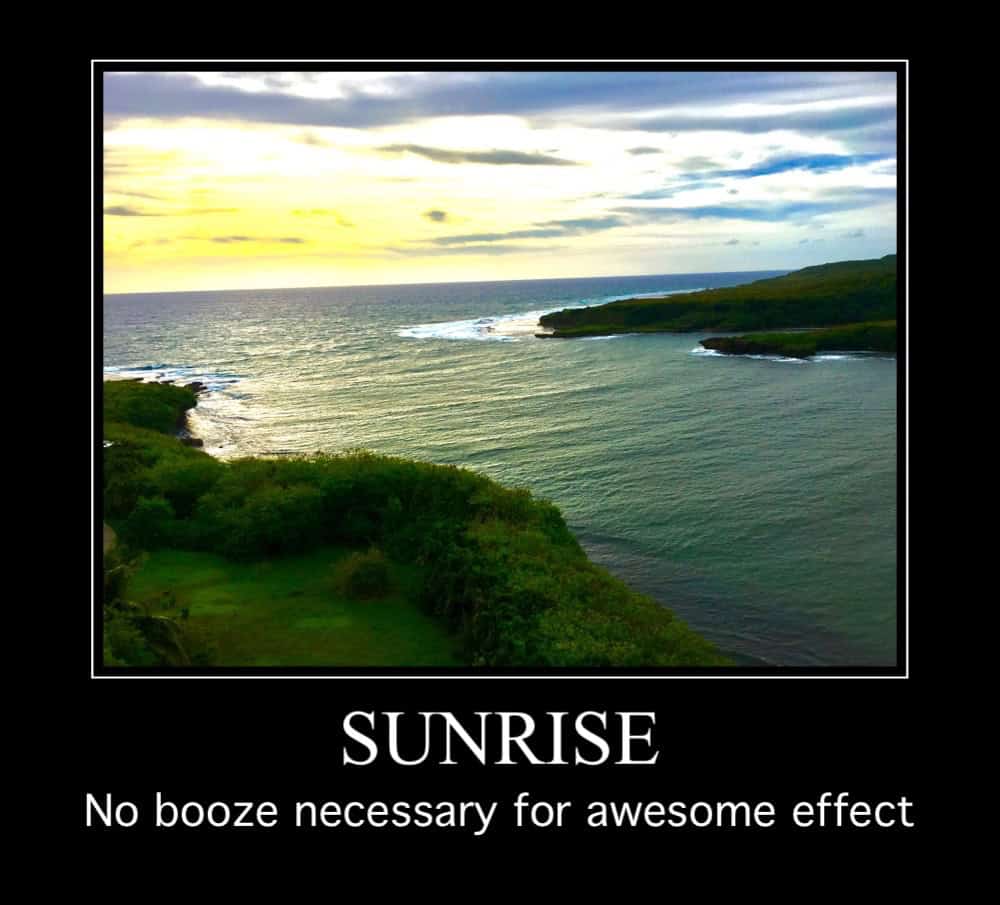
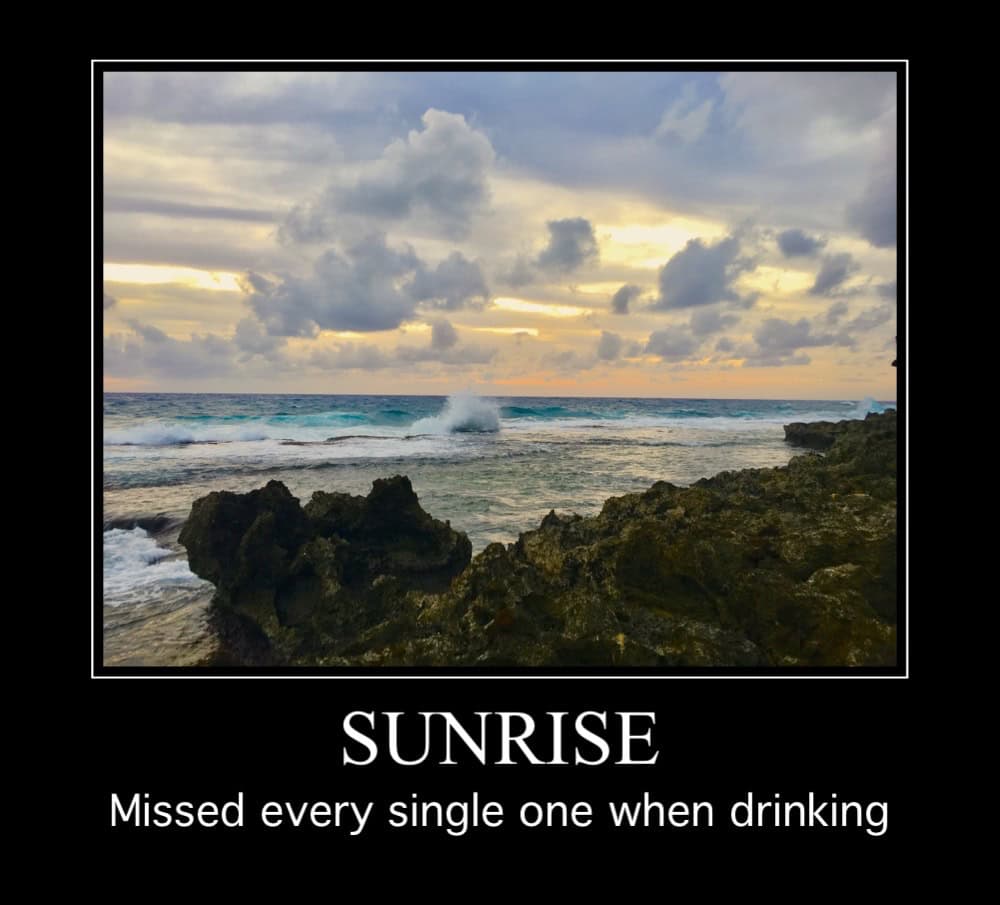
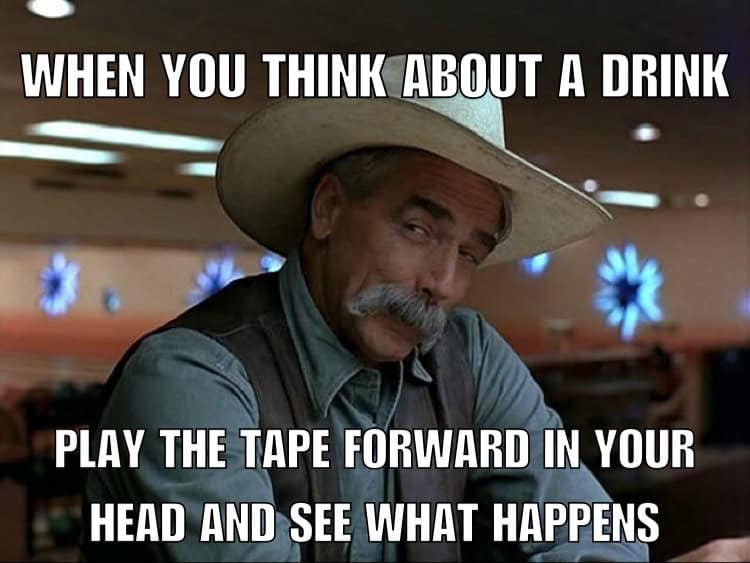
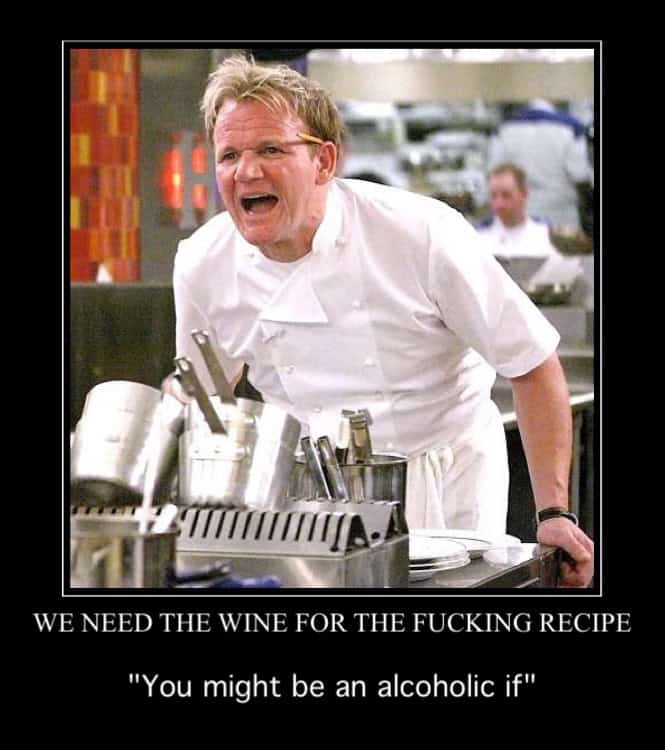
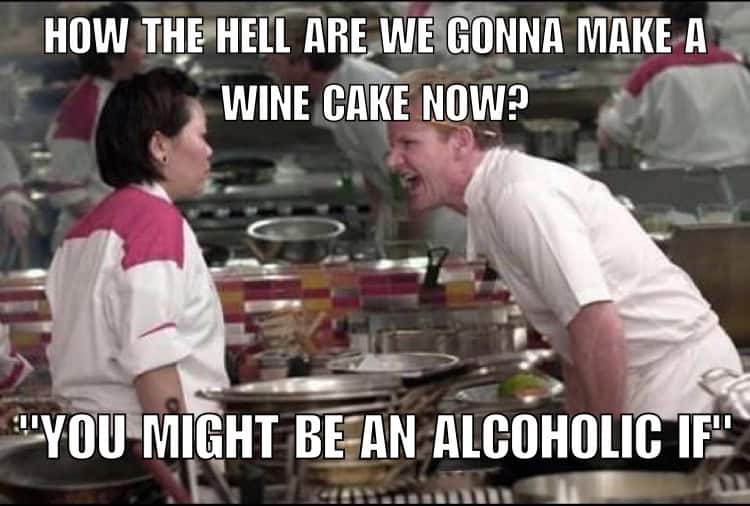
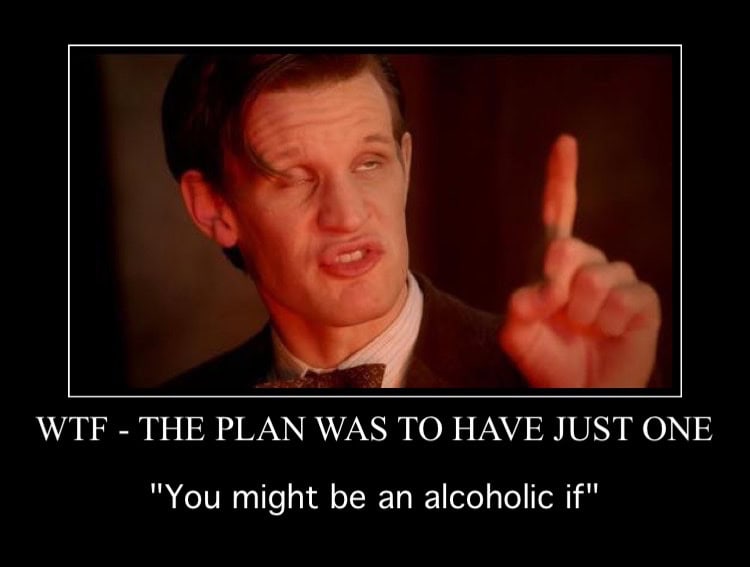
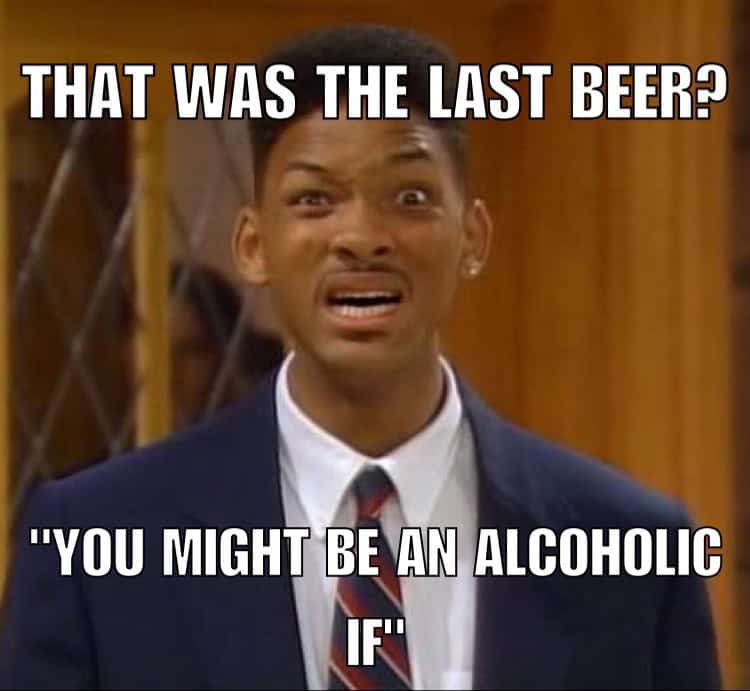
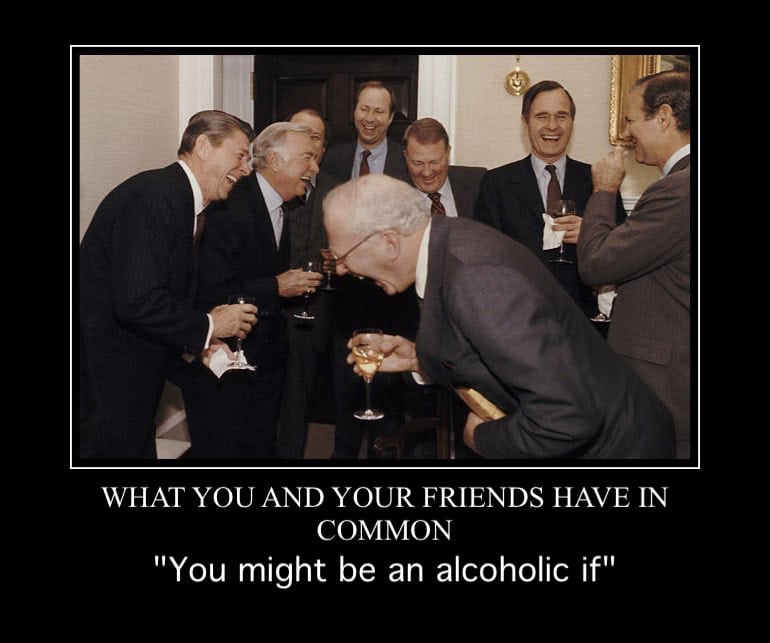
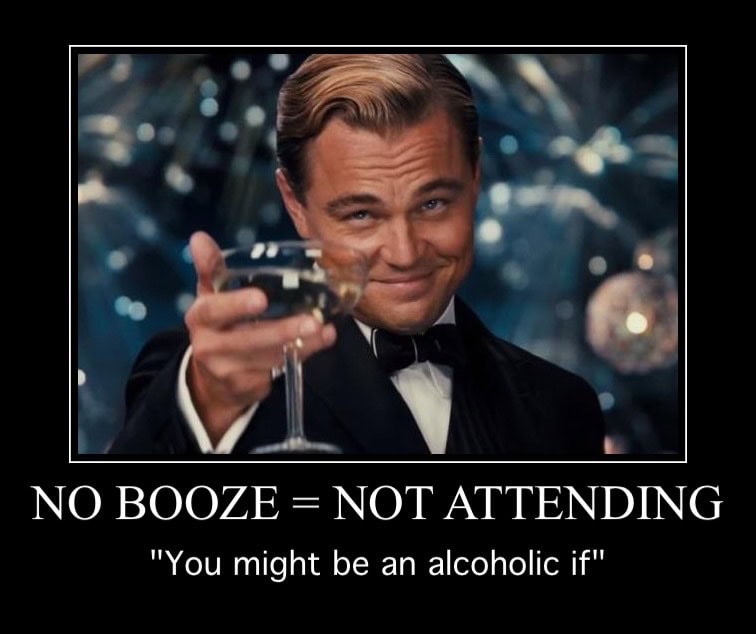
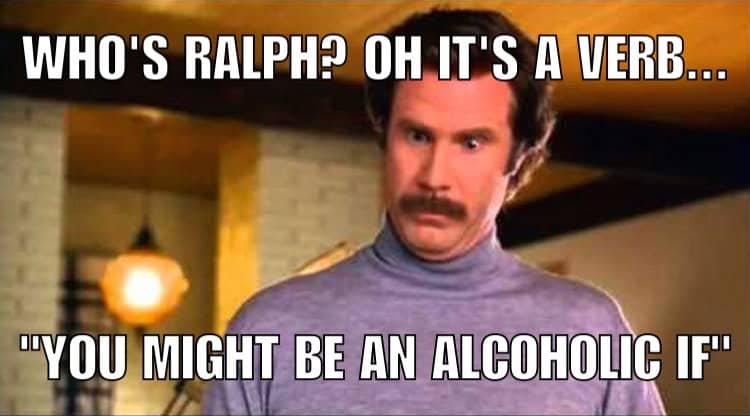
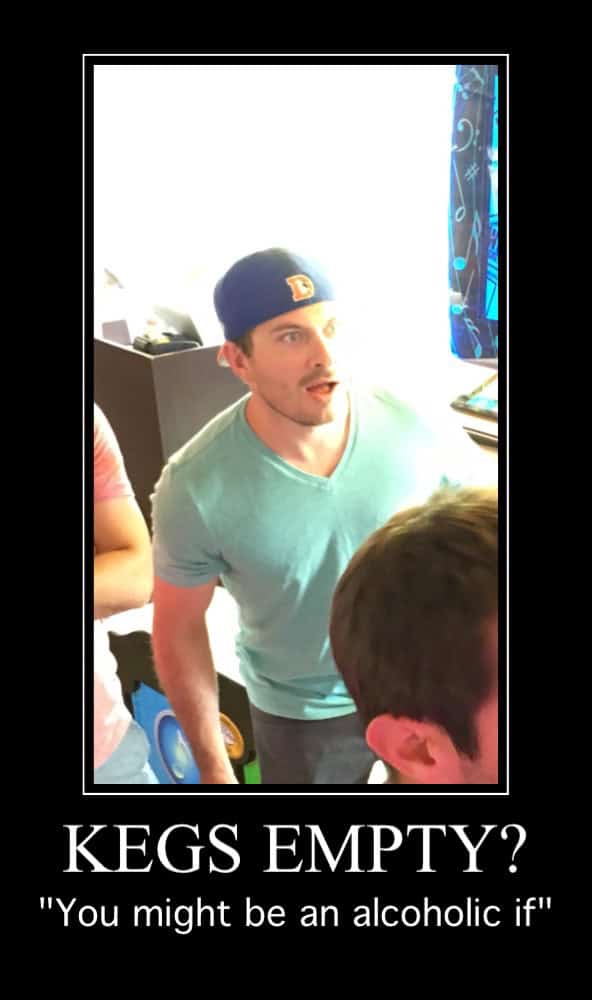
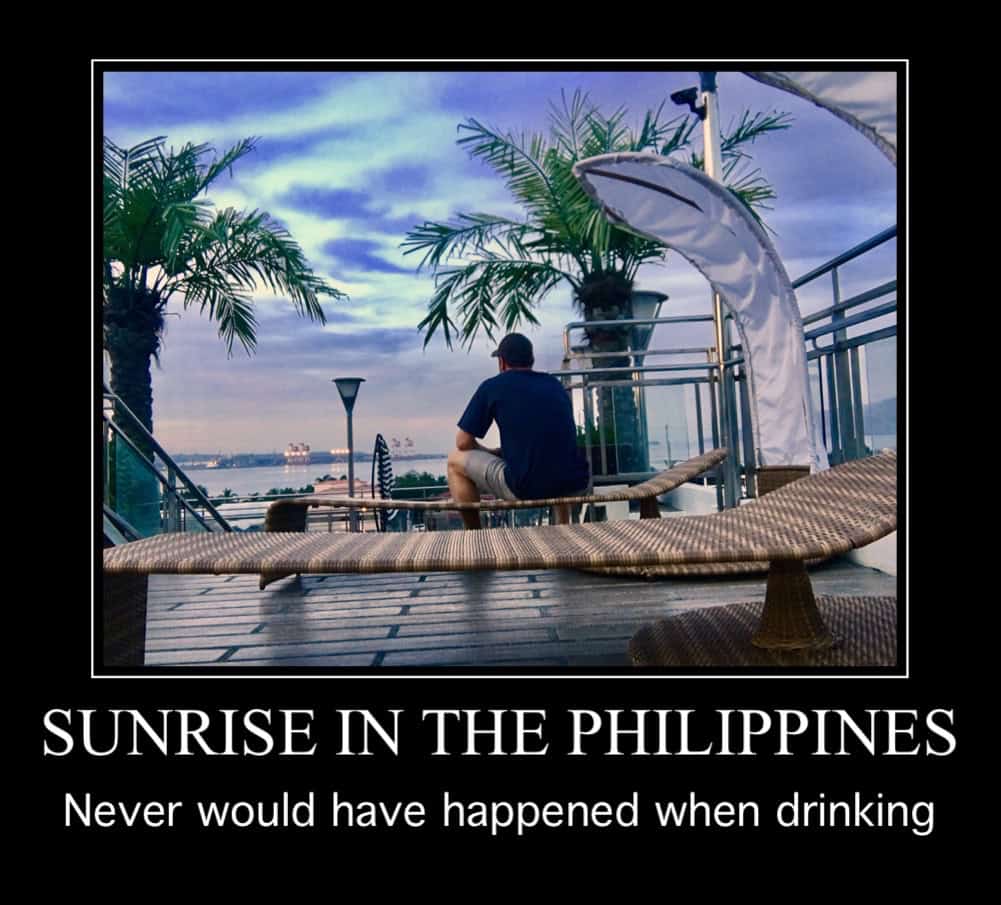
If you have any sober memes you’d like to add, send them to info@recoveryelevator.com. I found a free meme creator on the app store and I started creating memes. At first I thought it would be difficult creating sober recovery memes but once the creative juices starting flowing, I couldn’t keep up with my mind. Memes, although simple in nature, can be a powerful representation of how amazing sobriety can be. If you’re looking to get sober, I recommend downloading a meme app and creating some sober memes. They are a lot of fun to make.
Paul
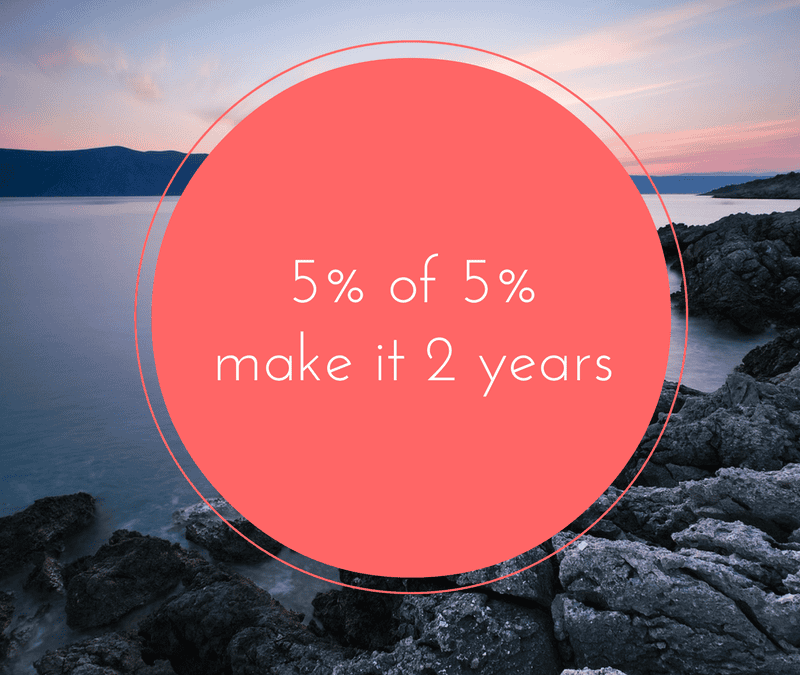
by Paul Churchill | Jan 20, 2017 | Blog, Early Sobriety, Helpful Tips, The first Year
I was in my first 72 hours of sobriety when Paul threw out the stat that only 5 percent of those who want to get sober will make it to 90 days. Of those 5 percent, only 5 percent will make it to 2 years without drinking alcohol. Let’s see… Okay, for every 1000 people who desire to get sober, 2.5 of them will be sober in two years. I’m not shaking anymore, but the acute effects of withdrawal have not left. My mind is in a fog, my skin has pinpricks running throughout, and I have not strung together more than a few hours of sleep in three days. By the time I hear this depressing stat, I realize that the easy fix to my discomfort would be to have a few drinks… and apparently, 1,997.5 people wouldn’t blame me. I’m not getting to sleep anytime soon. Maybe I’ll just keep listening.
I think we all know that hyper-vigilant friend who attaches themselves to a cause. There is the one who can string together why shopping at Wal-Mart is akin to feeding “The Corporate Antichrist”. They are loaded with information about the 6 Wal-Mart heirs making more money than the lowest 42 percent of the population combined. They’ll make a great case for corporation not paying living wages or providing decent healthcare and in turn, how our taxes subsidize government benefits, the services that could be provided by billionaires. If that didn’t get you, they’ll pepper you with the working conditions of the children in Polynesia so that you know the true cost of your three dollar Duck Dynasty tank top. They are not wrong. They have done their homework. In fact, you are persuaded to the point that you feel ashamed, stop shopping at Wal-Mart for a few days, and maybe even clumsily repeat the stats to a non-intellectual so as to stroke your newfound sense of self-righteousness. Problem is, within days those facts went fleeting. While appalled, you were not as committed as your friend. Your habits did not include the same degree of rigorous study, and in a moment of consumer relapse, you’re pulling once again to the parking lot ready to make an offering to the “Temple of Social Injustice”. You deny your first impulse to think it through. You certainly do not want to call your friend so he can feed you additional information. Let’s not ruin the day by feeling bad about making the easy choice. Besides, the sun is out and your guns are gonna look sweet in that tank top.
Yes, I am taking a dig at Wal-Mart. Pick any cause though… If we put the effort into learning about factory farming and the mistreatment of animals that are our food source, we would cringe and give pause to the effects of our consumption. Find out a few more facts about the mortality rates of the workers who assemble our smartphones and we are confronted with moral choices. The truth is, when it comes to these issues, we shop, consume, use, and abuse as a means to survive. We use the littlest amount of thought to procure the food, clothing, and technology to communicate. It is the basis for survival and we let the lizard portion of the brain do the thinking. Ease and value compete against taking a more difficult, long term approach that benefits everybody.
Now let’s be honest. How many of those inspirational, uncompromised, hyper-vigilant, cause oriented, intellectually sound, unwavering social renegades do we know? Not that many. Most of us slowly go the way of the buffalo which makes the impassioned moral minority pretty easy to spot. That minority friend, whatever their cause, is the rare bird that continually absorbs information, which in turn, informs their actions.
I was pretty discourage with that statistic that Paul relayed over my headset that night. I had no false sense that I was going to be in that minority of the first 5 percent, let alone in the second 5%. If I was involved in this human experiment called sobriety, there was no indicator from the last 10 years of alcohol abuse that I would succeed. I was all impulse and little intellect when it came to using alcohol.
I am close to 40 days sober. I have just gotten current with Recovery Elevator podcasts at episode 99. I started at Episode 00 and listened throughout the 40 days straight through. I am so thankful for the wealth of information and experiences that have been shared on the podcast. There is such a diverse amount of helpful experience in sobriety on the show. As I reflect on what might be the common source of success in everyone’s personal recovery program, it’s that the sober alcoholic is continually feeding the executive center of their brain. The AA attendant gets information and advice from a group share or a big book. The self-employed travels in a car with a podcast in the background. A mom finds a group to confide in and have a source reminder of a difficult past. Someone struggles with temptation, they get immediate advice from a Facebook Forum. In quiet times the recovering alcoholic finds books, websites and blogs. Information.
I do not have a rigid program for sobriety. My goals are to be 100% honest with my wife and accept her help, insight, and accountability. Second, it is to reprogram my doublemindedness with helpful and encouraging information daily. If the lizard portion of my brain is the quickest to respond and tell me that I need a drink to survive, I want the part of my brain that controls reason, behavior, and executive decision making to be full and ready to Giving Up Alcohol. I think it takes community and positive information.
At my core, I know who I am. I shop at Wal-Mart. I eat fast food. I own an IPhone. I am an alcoholic.
Ultimately, I want to be that annoying, hyper-vigilant friend when it comes to my alcoholism, but I now understand why so few will make it. The same impulse to eat, commune, and provide shelter the easiest way possible is the same impulse that beckons me to take that first drink. The difference today is, I understand that drinking is not a means for survival. It wants to destroy my future.
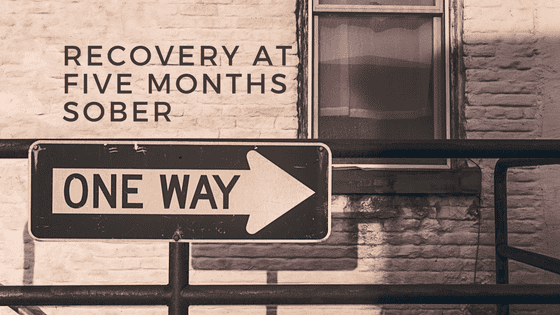
by Paul Churchill | Jun 27, 2016 | Early Sobriety, Expectations, The first Year
I have returned after a long absence! Things are proceeding along for me, and I’m over five months sober–157 days.
My neighborhood is surrounded by a major construction project, one of many throughout our fair city. I have determined this to be more than the usual “construction season” work typical for Minnesota in the warm months, in preparation to host the Superbowl in 2018. This is a huge time of transition for the city, and I only hope its effects are lastingly beneficial to the citizens.
What truly astounds me is that for only being a few blocks away, my home is still calm, peaceful, and amazingly quiet.
It’s easy to draw the connection, here. As I continue to reconstruct my life through this process of recovery, it can get loud. Obnoxious, sometimes. The inner turmoil of being under construction can be exhausting. Sometimes people close to me have to dodge and duck from mishandled rebar and concrete. I’m not a practiced worker, yet. Sometimes I knock out walls that are meant to be load-bearing with a flick of the wrist while helming a wrecking ball, when all I needed was a hammer. Really all I needed was a level (head).
But my head isn’t always level, and that’s where my Higher Power comes in, when I remember to ask for it. My HP is the site supervisor. It’s what props those walls back up, shuts things down when they overheat, and offers the right tools for the tasks at hand.
And when I’m really paying attention, my HP provides peace, tranquility, and serenity in the middle of a million noisy construction projects. My HP is what keeps the grass green and the trees blooming in the Edens at the eyes of the storms.
And my HP allows me to do a little damage sometimes, make mistakes and try things I’m not fully trained to do, because making those choices will ultimately teach me so much more. So I can grow like the gardens and the parks, live free and wild and always changing.
I hope I’m always a little bit under construction: constantly improving but never perfectly complete.
About the Author: Sarje Haynes is a grateful recovering alcoholic from Minneapolis, Minnesota. Learn more about her journey in sobriety at: https://nowbehere.org/about/
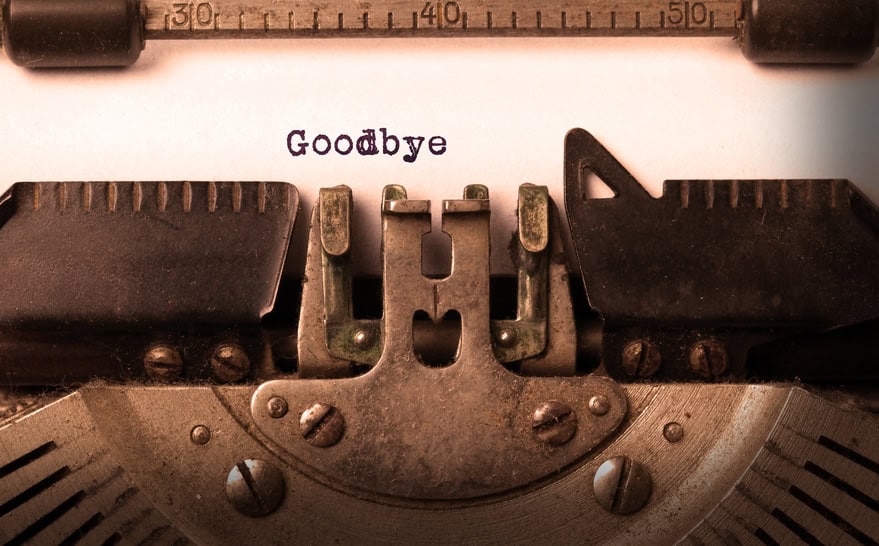
by Paul Churchill | Nov 23, 2015 | Early Sobriety, The Bottom, The first Year
Good-bye alcohol. It’s just time to let you go. You’ve been a loyal friend for all these years, but our relationship is getting way too toxic. You were awesome in the beginning, steady in the middle, and unpredictable towards the end. But damn, in the last 8 months, you’ve been brutal. You’ve turned on me, or maybe I’ve turned on you. Either way, it’s time. Time to move on.
I’m not gonna say good-bye without a thank you. I appreciate all the confidence you gave me, especially during those college years. You took away tons of stress and even gave me some pretty cool dance moves. If I had a shitty day, you were the one thing I looked forward to. You were so loyal to me. Always there…ready to help me relax.
I’m gonna really miss our steak dinners together. Our Mexican restaurant fiestas. You were awesome as a margarita. I’ll never forget our days on the lake…at the reservoir. Our late nights with old friends. I’m gonna really miss you when I fire up the grill. I mean let’s be serious, water on the rocks ain’t the same. Not even close.
I have no idea how I’m ever gonna eat crawfish again. The beach may have lost its luster too. I went without you this year, and it sucked, especially since you were cheating on me with everyone else. You were definitely putting on a show at the beach, and if you can remember, you finally won me over. Yep, you joined me for the drive home. Of course, that was sorta scary. Over 200 miles of you and me on the road together. We seemed to have a lot of those kinda moments, especially towards the end.
This brings me to all those bad times. Too many to count. I mean, damn, I can barely remember all those late night documentaries we watched on Netflix. And you gave me a short fuse at my temper. Yep, you ignited that on way too many occasions. My wife and friends tell me about how intense I got, and the horrible things I said. It’s a disgusting feeling knowing I did those things and not being able to remember. Yep, these are some of those not-good moments we had together. Lots and lots of those.
Did you notice towards the end, how much we cried together. All those sad midnights looking in the mirror. I was totally ashamed of you. Embarrassed. We had become such closet companions towards the end. I became way too dependent on you. I seemed to need you for damn near everything. I take the blame for that. I totally abused our relationship.
To be honest, when it’s all said and done, I’m probably the one at fault here. I took advantage of you. I really think you just wanted to be my buddy in the beginning. My weekend friend with with the fellas. I’m the one that dragged you along into my adult days. You’re a loyal dude, so you had no problem with that.
I will say this though. When I tried to say good-bye a few months ago, you kept teasing me. You showed up every where. So please, don’t make this so damn hard. It’s just time to move on. I deserve a little separation. Let’s move on from this toxic relationship. We both need that.
Not to mention, one of the last memories of you was one of the worst. You were there with me when I pushed my father through a door, as he fell to the floor, while my son begged for me to stop. All this while my wife and mother screamed in the background. The sights and sounds of this will never be forgotten. Never.
So good-bye to you, Alcohol. Thank you for the good memories and I’ll try to forget the bad. It’s time for me to grow up. It’s time for me to focus on my family. It’s time for me to make things right. They deserve all of me. They deserve me without you tagging along. Again, thanks for the fun times. There were tons of those. I’m just sorry I abused our relationship. I’ll take the blame for that. And who knows, if I’m ever old and alone, we may meet again. Until then though, it’s time to move on. So this is it. Good-bye.























































































































